making thursday better
most

BRITAIN’S LEADING MAGAZINE FOR ENTREPRENEURS AND BUSINESS PROFESSIONALS AUGUST/SEPTEMBER 2022 • £6.95 www.businessleader.co.uk Our exclusive interview with the founders of the
talked about app on the internet

We chose BCMS to act for us based on what they told us they would do. They exceeded our expectations in every respect. I have nothing but praise for their organisation and professionalism. Above all they were a fantastic bunch of people to work with. Bill Mayne, MSS Group, sold to RSK, 2022 www.bcms.com YOUR M&A PARTNER Considering your succession planning and exit options? Talk to someone you can trust BCMS – supporting privately owned businesses since 1989 “ SCAN ME
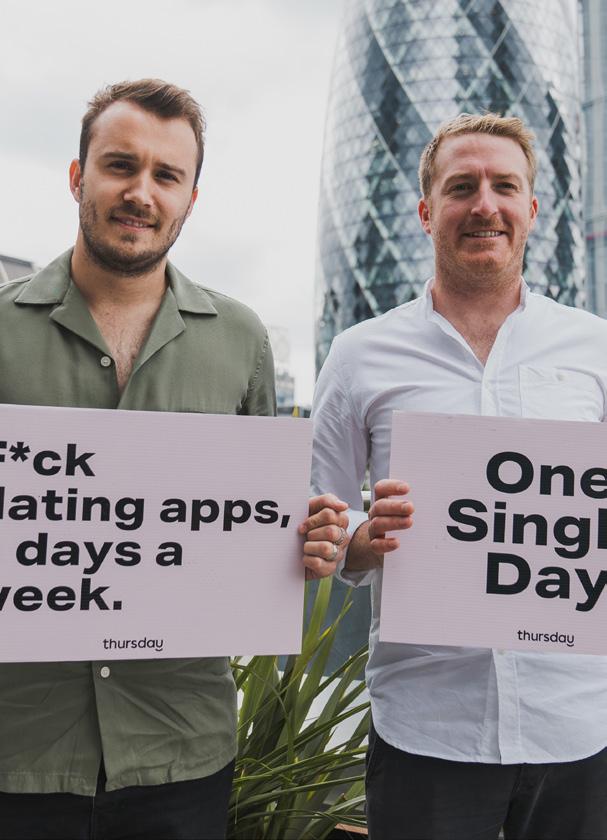
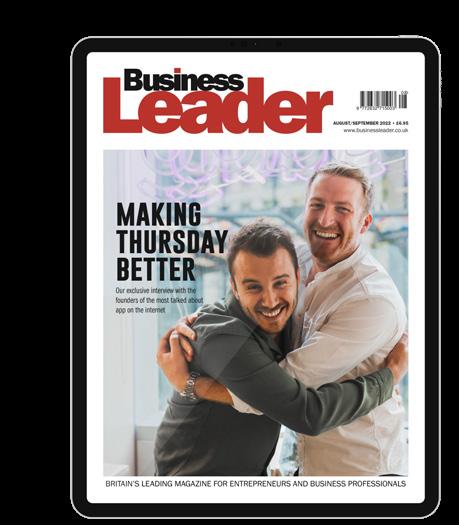
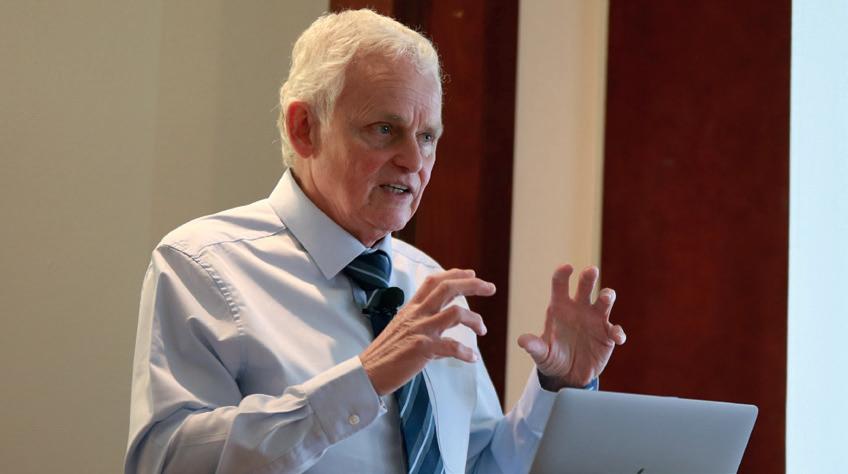





Business Leader - Inspire • Inform • Connect 1 in this edition LATEST NEWS 4 COVER INTERVIEW: THURSDAY 10 Our exclusive conversation with the founders of the most talked about app on the internet DEALS ROUND-UP 14 FEATURE: FUNDING 16 INSPIRATION: BASSIM HAIDAR 18 AGENDA: ECONOMY 22 FAST-TRACK: RED DIAMOND EXECUTIVE HEADHUNTERS 28 DEBATE: FUTURE OF MANCHESTER 32 Senior leaders from multiple sectors to look at the challenges and opportunities facing the city LEADER IN FOCUS – JO SELLICK 36 TOP 32 – METAVERSE 41 Profiling the top companies that create technologies for use in the metaverse DEBATE: ACHIEVING HIGH-GROWTH 52 FEATURE: TALENT & SKILLS 58 INTERVIEW: PROF. STEVE PETERS 62 INTERVIEW: SEVENTY NINE GROUP 68 APPOINTMENTS ROUND-UP 70 IPO ROUND-UP 72 CONTENTS scan to view the latest edition here: companies featured in this edition 10 62 28 32 16 Albert Goodman 51 – 54 Alibaba Group 67 Ashton Gate 65 BCMS Inside Front Being Well Together 70 & Back Cover BLK | Advance 57 Bright Data 57 Chorus 5 Clear Course 57 Crafted by August 57 Descartes 26 – 27 Dragos 31 finnCap Group 16 – 17 Funding London 57 Helm 57 Home Grown 39 Hubble 57 Huboo 57 Mail Handling International (MHI) 57 Monahans 7 & 15 Moore Barlow 25 OFX 3 Optasia 18 – 21 PensionBee 57 Red Diamond Executive Headhunters 28 –30 Rocketmakers 57 ScaleUp Institute 57 Sellick Partnership 36 – 39 Servecorp 57 Seventy Nine Group 68 – 69 Shaw & Co 9 Sounds Commercial Inside Back Sync 32 – 35 The Specialist Works 57 Thomas Westcott 58 – 61 Thursday 10 – 13 Tobacco Dock 56 Vistage 55 & 66 The above list includes companies who are sponsoring, or have won awards, but excludes companies who have supplied comments for editorial features. 41
EDITORIAL
Oli Ballard - Director
E: oli.ballard@businessleader.co.uk
James Cook - Digital Editor
E: james.cook@businessleader.co.uk
Serena Haththotuwa - Digital Editor
E: serena.haththotuwa@businessleader.co.uk
DESIGN/PRODUCTION
Adam Whittaker - Head of Design
E: adam.whittaker@businessleader.co.uk
SALES
Emma Filby - Head of Advertising
E: emma.filby@businessleader.co.uk
Sam Clark - Head of Awards Sponsorship
E: sam.clark@businessleader.co.uk
DIGITAL & WEB
Josh Dornbrack - Head of Multimedia
E: josh.dornbrack@businessleader.co.uk
Gemma Crew - Social Media & Community Manager
E: gemma.crew@businessleader.co.uk
Rosie Coad - Marketing Executive
E: rosie.coad@businessleader.co.uk
Joshua Phillips - Website Development
E: joshua.phillips@businessleader.co.uk
CIRCULATION
Adrian Warburton - Circulation Manager
E: adrian.warburton@businessleader.co.uk
ACCOUNTS
Jo Meredith - Finance Manager
E: joanne.meredith@businessleader.co.uk
MANAGING DIRECTOR
Andrew Scott - Managing Director
E: andrew@businessleader.co.uk
OUR COMMITMENT
Business Leader Magazine is committed to a zero carbon future and supports the World Land Trust by using recyclable paper wrap rather than plastic polywrapping. Carbon-balanced PEFC® certified paper, which is sourced from responsible forestry, is produced in an environmentally-friendly way to offset our CO2 emissions.
ENTRIES FOR THE 2023 GO:TECH AWARDS NOW OPEN

Entries to the 2023 Go:Tech Awards, which are brought to you by Business Leader, are now open.



The Go:Tech Awards is the UK’s leading event celebrating tech and innovation, purposefully designed to recognise the businesses and entrepreneurs who are leading the way when it comes to technology and innovation.




There are 14 award categories and an independent panel of judges that have been carefully selected to showcase and evaluate a cross-section of the nation’s greatest innovators – from daring start-ups to established thought leaders.
The 2022 Go:Tech Awards saw a record number of entries, and the awards were presented by Gadget Show presenter, Ortis Deley at a lavish
awards ceremony that took place at Ashton Gate in Bristol. There were various high-profile sponsors of the event too, including US tech giant Snapchat.
Andrew Scott, the Founder of the Go:Tech Awards, comments: “It’s that time of year again when entries to the UK’s leading tech awards are now open. The Go:Tech Awards are a fantastic opportunity for the UK’s leading figures in tech to be recognised for their achievements, and with the event getting bigger and better each year, I’m excited to see who this year’s entries will be.”
For more information on sponsoring the Go:Tech Awards, contact us at sponsorship@businessleader.co.uk or call 020 3096 0020.
KEEP UP TO DATE WITH BUSINESS LEADER MAGAZINE
FOLLOW ON TWITTER
August/September 20222
CBP006462 PEFC/16-33-254 PEFC Certified This product is from sustainably managed orests and controlled sources www.pefc.org NEWS
REGISTER FOR EVENTS TALK TO THE TEAM ABOUT CAMPAIGNS AND PR
FOLLOW ON FACEBOOK
FOLLOW ON LINKEDIN RECEIVE BUSINESS LEADER
MAGAZINE AT HOME
Talk currency for business with an OFXpert
Our team specialise in helping SMEs send and receive money overseas with ease and confidence.
Navigate rate swings in turbulent times with OFX
OFX gives your business a better, fairer way to move money globally. We don’t just offer bank-beating rates – we believe real help from real people counts. That’s why our clients get the best of both worlds: a seamless digital platform combined with 24/7 phone access to our currency experts (we call them OFXperts).

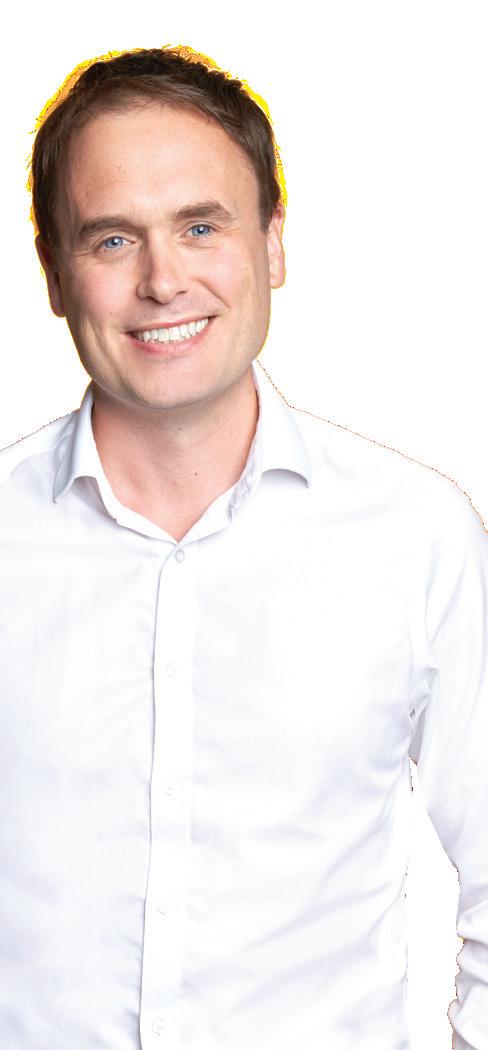

With 20 years of foreign exchange experience, over 1 million customers have trusted OFX with transfers across 50 currencies in 170 countries.
So, whether you’re paying overseas invoices, repatriating revenue, or paying a global workforce, OFX can get your money where it needs to go.
Why care about moving exchange rates?
Increasing costs are at the top of everyone’s mind. The highest inflation jump in 40 years, soaring energy prices, and supply chain issues continue to amp up the pressure on businesses. Add to that fluctuating exchange rates and you’ll have a tricky task of balancing budgets.
In the first half of the year we saw the pound reach a 2-year low against
the US dollar. These highs and lows were driven by factors such as the Russia-Ukraine war, COVID-19 lockdowns in China and central bank interest rate decisions.
As geopolitical events cause a riskier trading environment, investors tend to move towards safe-haven assets such as the US dollar. And countries with higher interest rates offer higher yield. The increase in demand sees the currency gain in value and others weaken.
So you can see how an invoice in dollars or euros may cost more or less in pounds tomorrow than it did today. And overseas revenue can change in value between this week and next.
Is there a way to manage currency volatility?
Some businesses search different money transfer providers to find a good rate on the day they need to send or receive money. But having an ongoing currency risk management plan can be a more effective way for your business to see real benefits.
Our OFXperts help businesses get more certainty over their FX costs and even maximise upsides using the right combination of simple FX tools. And they’re here to help 24/7.


In volatile markets, it’s vital to stay in the loop on currency movements.
Big news can create big moves
Upcoming events that could trigger volatility for major currencies:
Sept 08 EUR
European Central Bank Interest Rate Decision
Sept 13 USD
US CPI (measure of inflation)
Sept 14 GBP
UK CPI (measure of inflation)
Sept 15 GBP
Bank of England Interest Rate Decision
Sept 21 USD
US Federal Reserve Interest Rate Decision
Visit OFX.com or talk to an OFXpert on 0207 614 4195
OFX is authorised by the Financial Conduct Authority as an Electronic Money Institution (Firm Ref. No. 902028)
Alex and See Wah, OFXperts
MYENERGI RANKED AS ONE OF THE UK’S FASTEST GROWING COMPANIES
Jordan Brompton Co-Founder & CMO myenergi
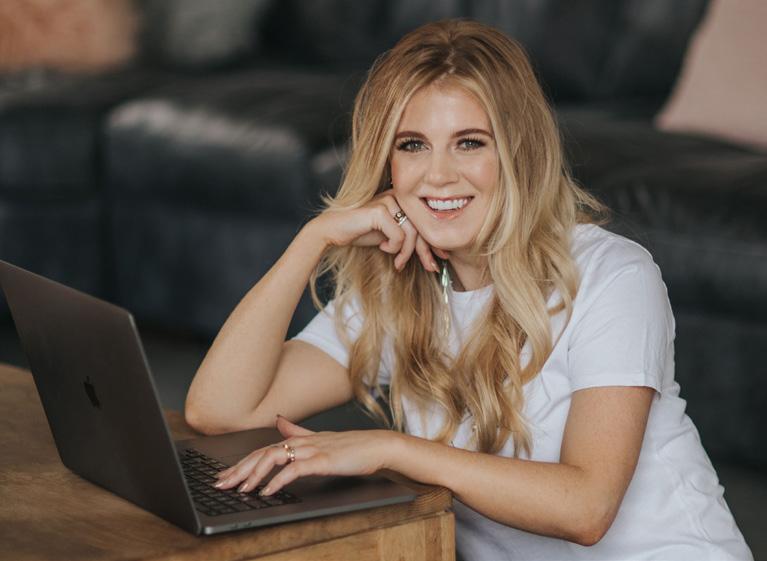
myenergi, pioneer of the world’s first ecosmart electric vehicle charging device, has been listed in The Sunday Times 100, a list of Britain’s fastest-growing private companies.
Supported by Barclays Private Bank and DHL Express, the league table takes on the baton from The Sunday Times Fast Track 100 series, which celebrated the country’s leading entrepreneurs for 24 years. myenergi came in at #9, having experienced revenue growth of more than 617% since 2019 alone.
Jordan Brompton, Co-founder and CMO of myenergi, comments: “When we founded myenergi, the dream was simple – create a positive impact, push the boundaries of possibility and change the world through pioneering green technologies. We started with nothing, apart from a few good ideas and a serious passion for change – today, we’re widely considered one of the sector’s fastestgrowing companies.”
INAUGURAL GROWTH INDEX RANKS THE UK’S 100 FASTEST GROWING COMPANIES WITH THE RALPH TOPPING THE LIST
Growth Index, a new ranking of the 100 fastest-growing British companies in the UK, was recently published.

The inaugural ranking reveals the sectors that have flourished throughout the pandemic with arts & media emerging as the fastest-growing sector, closely followed by fintech and health.
Taking a two-year compound annual growth rate in revenue using accounting periods up to the end of 2021, this ranking offers a definitive overview of how the pandemic
impacted UK company growth.
The Ralph Veterinary Referral Centre tops the list, which achieved a compound annual growth rate of 442% following an impressive pivot during the pandemic.
Innovative insurance provider Zego comes in second, followed by healthtech company Babylon Health and British Arts success story, SeeSaw Films, the production company behind Oscar-winning The Power of the Dog.
ERNST & YOUNG BRIEF PARTNERS ON £66BN GLOBAL BREAK-UP
In early July, 780 UK partners were invited to a summit to be briefed on the separation of EY’s audit and consulting business.
The UK is EY’s second-largest firm globally and has plans to separate its consulting business from its audit firm, with the audit firm still being owned by partners. In contrast, the consulting business would seek a listing on the international stock exchange.
The summit was held in central London where the firm briefed its 780 UK partners on the separation, which is set to cost £66bn.

August/September 20224 NEWS
USING MICROSOFT?
Be fearless wi
Your leading security partner delivering world class Microsoft Security tools in a new era of cyber threats



Protect your business today.

Protect Everything, Be Fearless
www.chorus.co
CHECK POINT SOFTWARE OPENS NEW LONDON CITY OFFICE
Check Point Software Technologies Ltd, a provider of cyber security solutions, has relocated to new offices in the City of London after the pandemic.
People are no longer required to come in every day but the new 85 London Wall office, close to the recently opened Queen Elizabeth Line, affords easy access and a range of collaborative workspaces where people can engage face-toface with colleagues, partners and customers.

Adam Bradley, Regional Director, UK&I at Check Point, comments: “We needed an office environment that people will actually enjoy coming to. It’s no longer enough to just provide desks for employees, we wanted a vibrant, energising workspace that encourages creativity and collaboration. The new ‘home from home’ style throughout the office helps with this and is also better suited to a modern, hybrid way of working.”
WITH THE US DOLLAR RISING ARE FOREIGN TAKEOVERS OF UK BUSINESSES IMMINENT?
A QUARTER OF BUSINESS LEADERS SAY GENDER MATTERS WHEN ACCESSING FUNDING
UK M&A professionals are optimistic about deal activity and expect it to increase over the next 12 months, according to a new survey from Datasite.
“M&A is still taking place – despite geopolitical uncertainties and overall market volatility” said Merlin Piscitelli, Chief Revenue Officer for EMEA at Datasite. “In fact, new deals in EMEA, especially asset sales, purchases and mergers, on our platform, are up 14% year-over-year through the first five months this year. And because these are deals at their inception, rather than announced, this means there is a robust pipeline of deals in the works.”

Datasite’s Piscitelli comments further: “Corporate and private equity is certainly fueling activity. With a weakening pound, there is still a high level of interest for UK firms from private equity bidders who are looking to put their dry powder to work.”
Research by independent asset manager BOOST&Co has revealed that more than a quarter of SMEs believe that debt funding is more widely available to male-owned businesses.
Of those surveyed for the Geared for Growth report, which surveyed 500 business leaders across the UK, 27.5% agreed with the statement that debt funding is more widely available to businesses owned by men. This view was particularly prevalent in certain regions of the UK, including London, the South East and Scotland.
Research by The Gender Index found that women-led firms in the UK disproportionately attract less investment than those led by men, even though more women are starting more companies than ever before.
Further research found that maleowned businesses receive seven times more funding than those owned by women, which shows that although progress has been made, better support is needed for female business leaders on their funding journey.

August/September 20226 NEWS
Check Point London office
NEW OWNERSHIP STRUCTURE FOR M&A ADVISOR BCMS
BCMS employees offered majority stake in business via Employee Ownership Trust, bringing benefits for staff and clients alike
Thames Valley-based corporate finance advisor BCMS –which specialises in advising privately owned businesses on company sale transactions – has announced a new ownership structure.
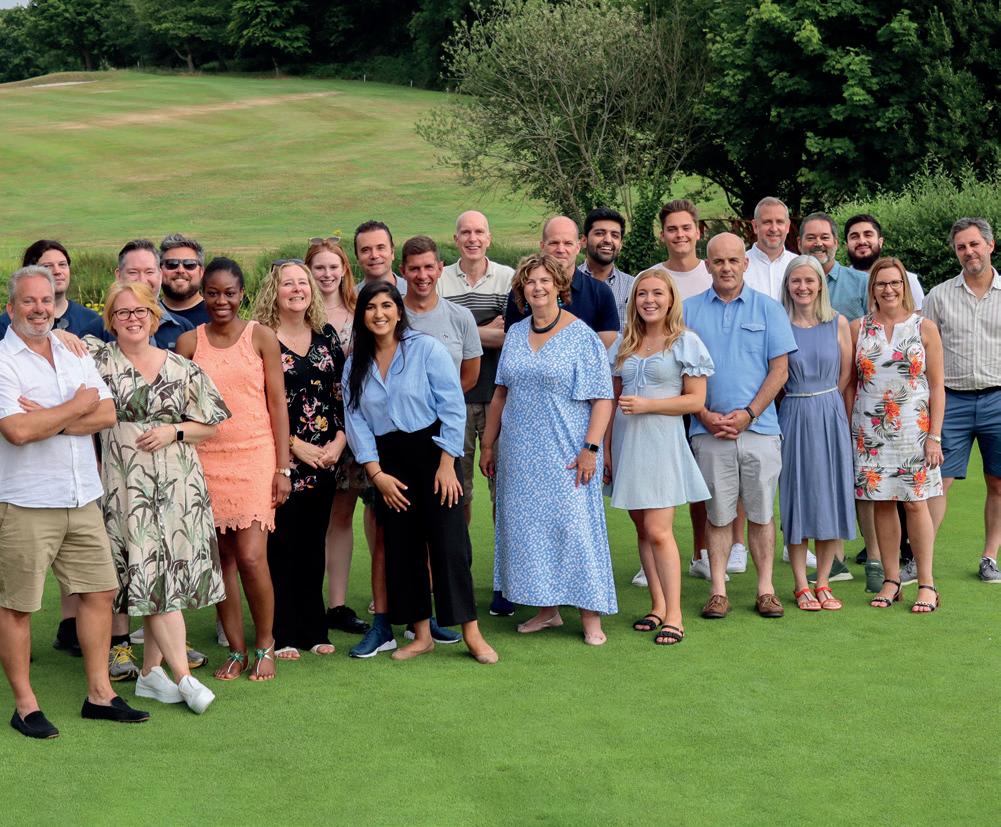
The change in ownership is the latest positive news for BCMS, which has completed a number of sizeable transactions in 2022 and posted its highest end-of-year profits since 2016. BCMS joins high-profile businesses including the John Lewis Partnership, Richer Sounds, Welsh Power and Mott MacDonald in pursuing an employee ownership model. Analysis published by The Employee Ownership Association indicates co-owned companies are typically more successful, competitive, profitable and sustainable.
Pioneering move for a corporate finance advisor Jonathan Dunn, CEO at BCMS, who led the EOT initiative said: “This is fantastic news for BCMS and our clients and allows us – as employees – to really drive and deliver our future success.”

Dunn continued: “We believe this is the first EOT for the Corporate Finance sector, and as the UK’s only employeeowned M&A specialist. We believe this new ownership structure will give us a number of advantages over competitors and allow us to connect even more strongly with our entrepreneurial client base.”
BCMS was advised by Cooper Cavendish on the transaction.
Local business, Global reach
Monahans prides itself on being a local firm with international reach. We stay true to our commitment of being a trusted partner to our clients, helping them achieve their ambitions.
Business Leader - Inspire • Inform • Connect 7 NEWS
Monahans 2022 BL All Ads.indd 1 01/07/2022 14:15
The BCMS Team
95% OF UK ORGANISATIONS HAD ISSUES IMPLEMENTING HYBRID WORKING
M&A IN THE FIRST HALF OF 2022 FOR UK TECH SURPRISES
Despite stronger headwinds, as inflation and interest rates rise, the impact on deals has been modest compared to 2021 - a record year for UK Tech M&A - says Bristol-based ICON Corporate Finance.
In its Mid-Year UK Technology M&A Snapshot 2022, ICON reports:
• There were 501 UK tech deals announced in 1H 2022; 6% lower than last year, but 6% higher than 2019 (pre-Covid)
• Deal volumes in Q2 were actually higher than Q1 (preUkraine invasion), suggesting little evidence of any slowdown
• Valuations remain punchy at just 8% lower than last year
This comes despite the fact that NASDAQ and UK Tech shares are down 30% YTD and loss-making hyper-growth businesses have been hit particularly hard.
The blow has been softened by a combination of the significant weakness in sterling (which attracts foreign buyers) and the fact that PE raised over $1tn last year, so there is still plenty of cash around.
Brian Parker, Head of M&A at ICON, says: “We remain cautiously optimistic about Tech M&A, and that is backed up by the fact that we have a healthy deal pipeline. At ICON, it’s very much business as usual in 2022”
The latest data from XpertHR reveals nearly all UK organisations (95%) have encountered challenges implementing hybrid working, with reluctance to return to the workplace the leading issue currently faced by employers.

Of the 292 organisations XpertHR surveyed, almost all (95%) operate a hybrid model. For most organisations (59%), staff generally spend between two to three days working from home each week. However, over a third (37%) of staff are unhappy with this split and would prefer to spend even less time in the office.
Survey respondents were clear on the benefits of hybrid working for employers and employees alike.
However, respondents also identified some of its pitfalls. Four in ten (40%) UK organisations said they are observing a growing disconnect between staff members who work from home and those who go into the office, and fear a divide is beginning to form.

RESEARCH SHOWS NUMBER OF DISABLED BRITS IN WORK HAS DOUBLED IN THE LAST DECADE
Latest population figures suggest that a fifth of working-age Brits are currently classed as disabled, and data from 2021 showed that the number of disabled people in employment was 53% higher than almost ten years earlier.

Alongside this, there are more Brits reporting long-term health conditions
or disabilities than ever before - a figure that is being driven by an increase in mental health conditions across the nation’s workplaces.
But despite the growing number of the population who live with mental health conditions, the disability employment rate is much lower for these individuals.
August/September 20228 NEWS
GROWING YOUR BUSINESS TOOutrun Inflation
With UK inflation both high and volatile, many SME owner-managers will be thinking hard about how to cope with its impact upon their businesses. Most will try to pass on some or all of their higher costs to customers, but how many would see the current environment as an opportunity to outgrow both inflation and their competitors?
INVEST FOR GROWTH
While it may seem counter-intuitive, now could be a perfect time to grow your business. This could be as simple as having more working capital for stock, so you are in a position to make sales whilst supply chain interruptions are causing shortages for your competitors. Organic business expansion opportunities could also be plentiful while others in your sector are thinking defensively.
Some of your competitors, suppliers or distributors may even present attractive acquisition targets. These and other growth initiatives can significantly expand your revenues, which are linked to inflation, whilst you can still fund them with fixed-rate debt, the value of which is eroded by inflation.
BUSINESS FUNDING ADVISORY SERVICE


If you’re looking to fund growth – whether organically or through an acquisition – our business funding advisory services focus on articulating your strategy to generate funder interest and confidence.
Our business funding expertise spans debt, equity and everything in between. Put simply, we present your growth plan to the right funders, in the right way and negotiate the best terms for you. This not only gives you the best chance of unlocking your growth potential, but positions you to win in the current inflationary market.
REQUIREMENTS
• Minimum funding need £2m+;
• Turnover of £1m-£100m and total assets of over £1m;
• Achieved or near-term* earnings of £0.5m+
* Within 12 months or next reporting period.
£4.5M GROWTH FUNDING FOR CATSCI LTD.
We helped secure £4.5m for CatSci Ltd, an awardwinning innovation partner for medicines development.
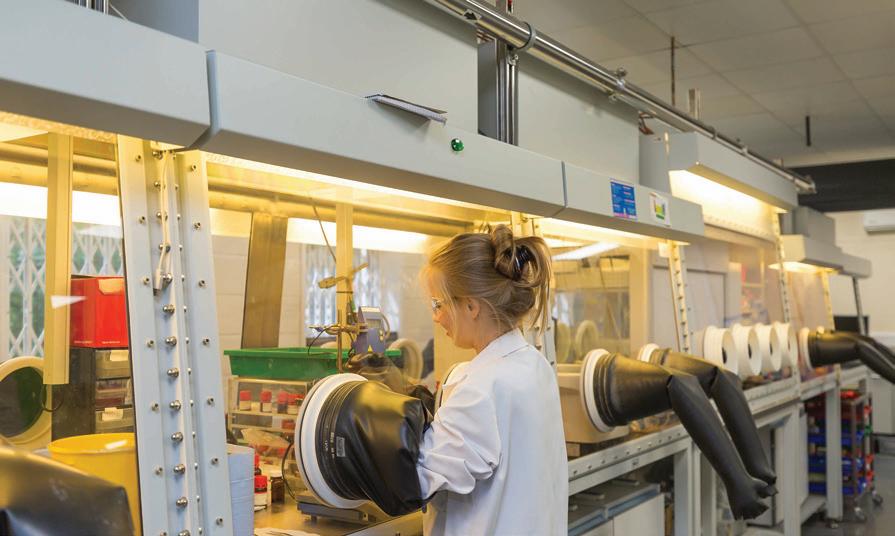
YOUR BUSINESS FUNDING SPECIALISTS
Shaw & Co is a leading independent corporate finance specialist. Our business funding experts help clients with their growth funding opportunities including acquisition financing, growth projects, MBO/MBI funding or bridging finance gaps.
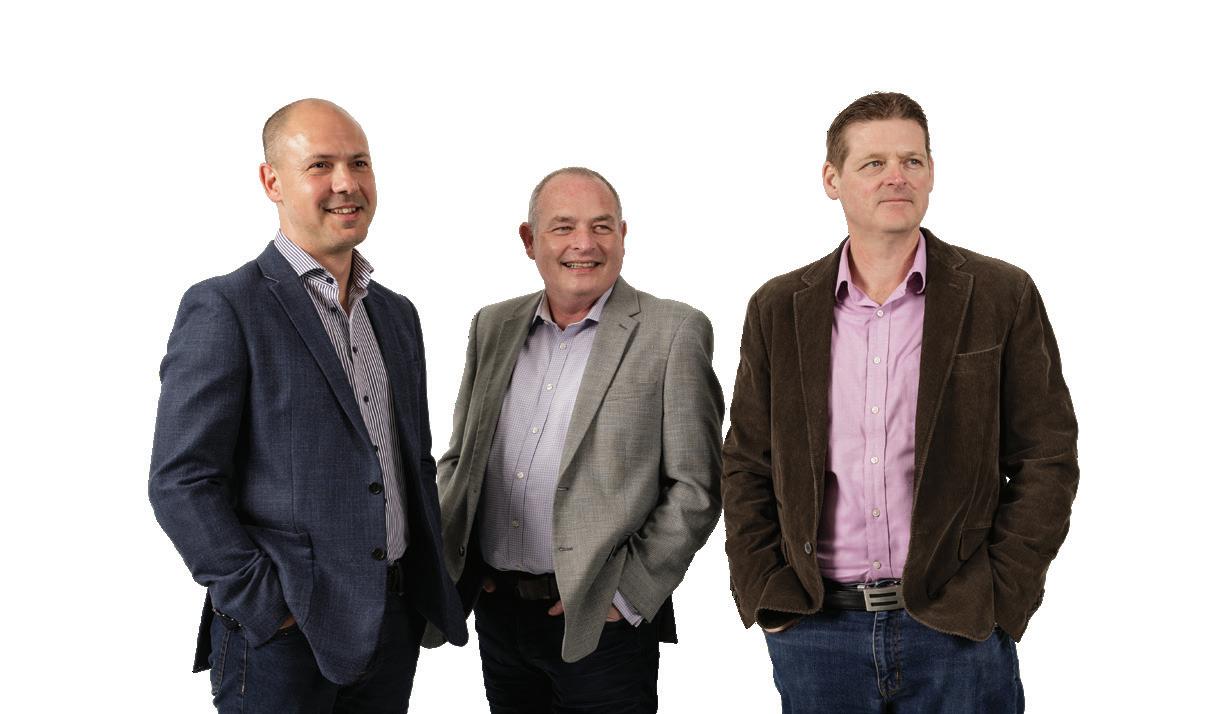
If you require a funding solution, we can take you through the whole range of options provided by all the high street banks and alternative lending providers.
Our entire approach is focused on helping you achieve your greatest ambitions. We succeed only when you do – whether raising finance, buying a business or selling one you have grown.
Business Leader - Inspire • Inform • Connect 9
VISIT: SHAWCORPORATEFINANCE.COM BOOK A MEETING: 0330 127 0100
CORPORATE FINANCE EXPERTS BIRMINGHAM | BRISTOL | LONDON | MANCHESTER | GLASGOW FOLLOW US Shaw & Co @ShawCorpFin
this interview was meant to be published on a thursday...
We met Thursday Founders Matt McNeill Love and George Rawlings at their office in London to discuss their fast-growing brand, the funding landscape, their approach to marketing and much more.

Can you tell me about your backstory?
Matt McNeill Love: I studied at Oxford Brookes, and it was at university that I started my first business, which was an events company, but I didn’t have the drive or passion to grow it into something huge.
Following university, I then went to Sandhurst and was commissioned to the Welsh Guards and spent seven years in the Army. Much of the time was spent abroad, with lots of time in Africa. I was actually serving in Afghanistan when we were crowdfunding for Thursday.
George Rawlings: I studied at Birmingham University, but after two years I realised that I didn’t want to be a Town Planner. I then dropped out to start my first business, Vox, which was a video communication tool for businesses. It allowed businesses to send video emails to their clients.
Could you tell us the story about how you set up Thursday?

George and Matt: We were two single guys who had completed Tinder and Bumble. We were on holiday together when we came up with the idea for our first dating app called Honeypot.
Our idea was to try to create something where people could find dates in the area they were in as quickly as possible. The concept of Honeypot was to try to match people the same day and to make it more spontaneous and exciting, as we felt the novelty of some dating sites and apps had worn off.
We struggled in the early days of Honeypot to get enough users for the platform to operate with a 24/7 model.
So, this provided the foundation for Thursday?
Honeypot was slowly dying, so we decided to pivot. Looking into the analytics, the most popular day for users was Thursday. We decided to switch to have the app work on one day of the week, as we felt there would be a fear of missing out amongst people.
And so, Thursday was born. If you create scarcity in a world of abundance, you’re on to something cool.
August/September 202210 COVER STORY
“FOR US, IT
IS
ABOUT GETTING PEOPLE TOGETHER IN A SAFE PLACE WHERE THEY CAN MEET OTHER SINGLE PEOPLE.” Left to Right
Matt McNeill Love & George Rawlings
Can you tell us how it works in more detail?
The way the app works is that it is off six days a week, so if you sign-in on a Wednesday, it will tell you to go away.
The journey of the app is that there is a countdown until Thursday, and then once Thursday comes around, the app will come to life and show you people that want to go on a date. You will also be able to see venues or experiences where you can meet people, and we have built a network
of these that are often exclusive to us. For us, it is about getting people together in a safe place where they can meet other single people.
We created the concept because we feel there should be more to life than dating apps. Just because you’re single doesn’t mean your entire life needs to evolve around finding ‘the one’. We encourage people to come off apps and go and live a normal life and see friends.

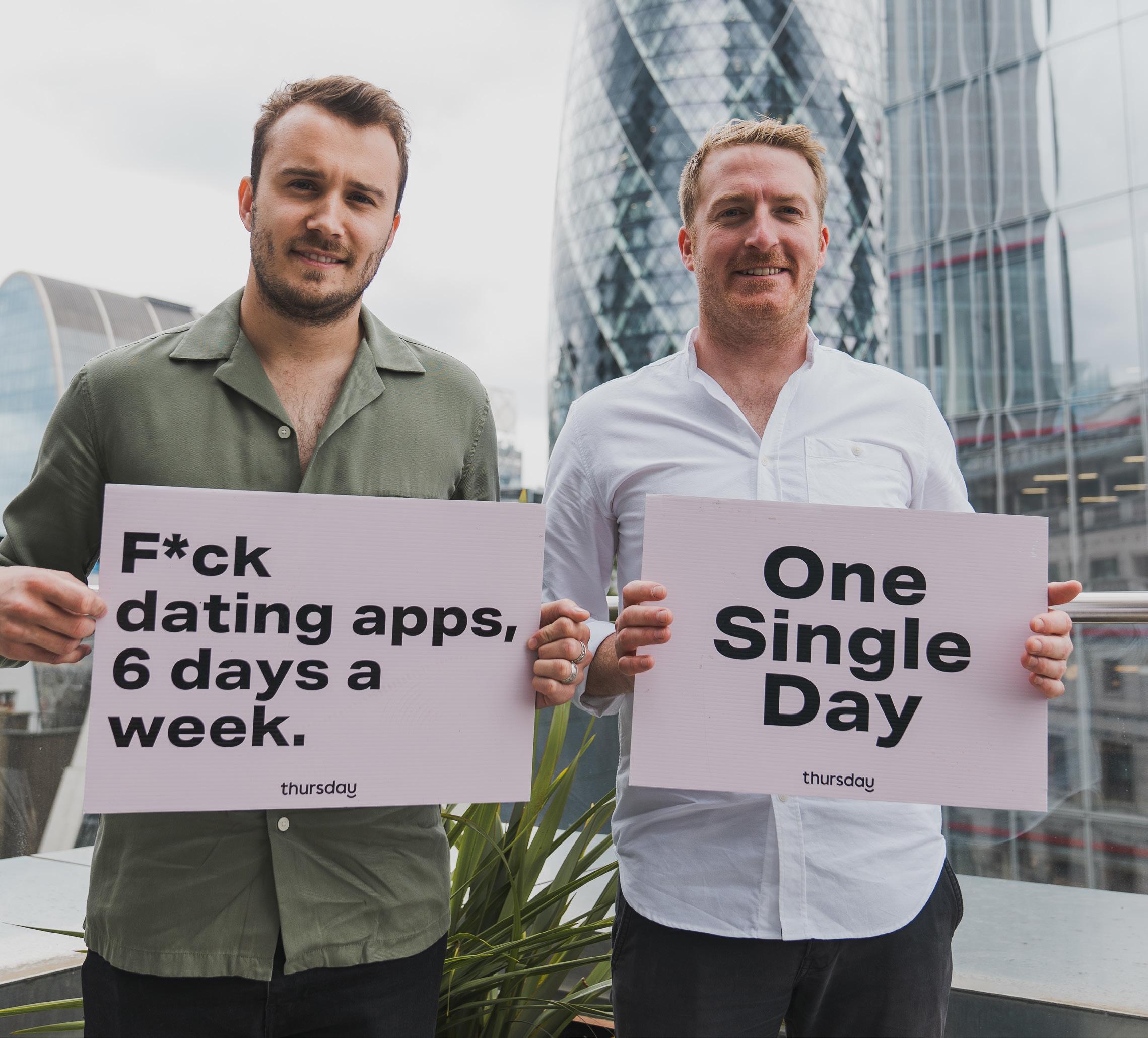
Business Leader - Inspire • Inform • Connect 11 THURSDAY
Cont. Watch the interview here
Do you have any concerns about the longevity of the idea and it remaining interesting for singles?
Since we launched this in October 2021, we’ve hosted 322 events (at the time of writing) and every week, without fail, they sell out. We’re selling out the capacity of every venue pre-nine o’clock.
We’re also seeing user numbers increase rapidly month-on-month and we’re looking at new territories, both in the UK and abroad. So, this is growing fast, and we don’t see any concerns around the concept fading out.
How have you funded the business so far?
Our first round was on Crowdcube in 2018. We launched in October 2018, with a landing page and 200 Instagram followers.
We also raised a round of £100,000 from the three Fs – friends, family and fools. This allowed us to get what was then Honeypot off the ground. Then in lockdown, we raised an additional £350,000 through angel investors and following this, we had our official seed round for £2.5m last summer.
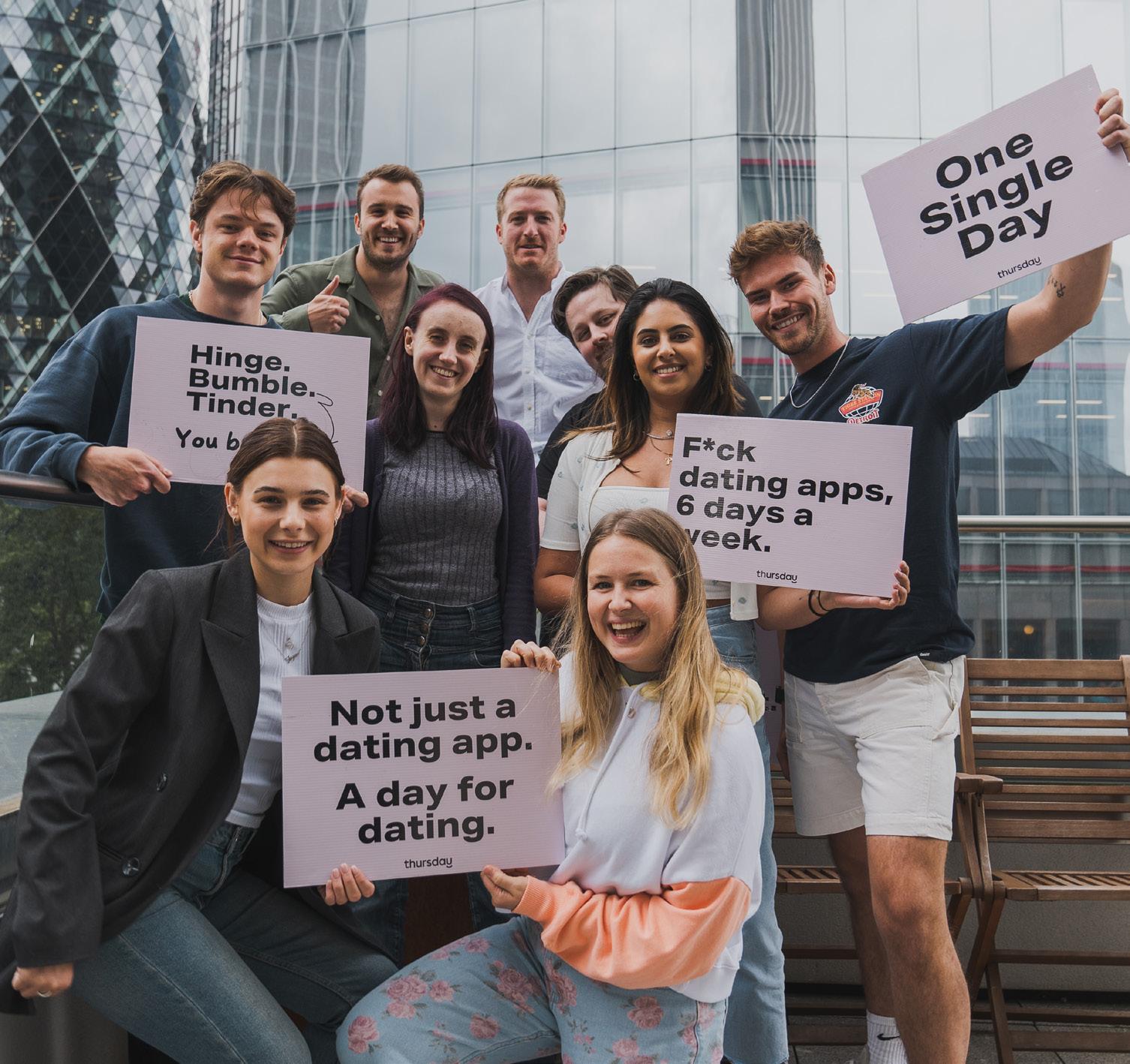
What have you learnt through your fundraising?
I would say raise what you need, rather than raising £1m because you can. You can get an idea up and running for £50,000. I think people need to change their mindset on how they think about funding, rather than looking for the biggest possible funding round.
People seem desperate, especially in the tech world, to raise as much as possible and get a story in TechCrunch. I do think this approach is changing though, and they are moving away from this vanity metric.
You must worry about what you’re giving away too?
Exactly, if I see somebody has just completed a massive raise, all I am thinking is “how much of their company have they just sold to get that money in?”
As first-time founders, we’re still learning, but our attitude towards fundraising has changed.
We won’t just take anybody’s money anymore. And we won’t just take money that we don’t need. If six months ago, we had £10m in the bank, we wouldn’t have been able to deploy it. So, we would have wasted a lot of it.
When you’re raising, what are the expectations from those funding you?
Well, when we did our venture capital round, we were told to hire lots of senior people, as fast as we could. But we didn’t take this advice on board because it would have been expensive, and we would have run out of money.
This did create tension with the investors, but it was the correct decision as we didn’t need to build a boardroom full of ex-Uber directors. What many people might not realise when they start a business is that hiring (and salaries) are expensive.
So, if someone’s telling you from the very beginning, go and hire twenty developers
August/September 202212 COVER STORY
“SINCE WE LAUNCHED THIS IN OCTOBER 2021, WE’VE HOSTED 322 EVENTS AND EVERY WEEK, WITHOUT FAIL, THEY SELL OUT.”
and a product manager, product owner, CTO, and a CFO because that is what Uber has, you’re never going to be able to afford to survive.
Therefore, we’ve been very careful about hiring and taken the process very slowly. You mentioned you have noticed a shift in how people are raising?
Two years ago, making money wasn’t sexy in this game and in the tech space it was about users and hires and raising money. I feel this is changing and there is more focus on creating revenue, profit and achieving product market fit.
What is the most outlandish thing you have done to raise money?
We held up a sign outside of a Lamborghini garage asking if anybody rich wanted to give us some money. We bumped into two people in the area that day and we raised around £20,000, just from holding up the sign.
Tell us more about how you use guerrilla marketing like this across your business?
Necessity made us do it. We didn’t have any money to spend on digital marketing, so we thought ‘how do we get this out there?’ This has shaped how we approach marketing.
For example: we had someone stand in central London with a sign saying, ‘I cheated on my girlfriend and this is the punishment, PS: do not download Honeypot’. It went crazy, and we received 5,000 downloads. However, you can only do this once or twice, so we needed to keep coming up with fresh ideas.
And it’s all about being different for you?
Yes, we have a culture of not doing anything that has been done before. And also looking at situations and ideas differently. It’s easy to say that but we do it. We hire this way too and we’ve recently rolled out our first bus and underground campaign too.
It can get you into some bother though. We were recently attacked in New York whilst carrying out one of our PR stunts.
Who comes up with the ideas and how do you organise your marketing?
We have a team of eleven in total, but we don’t have a marketing department. It is a case of us all getting together and discussing ideas, and no idea is stupid.
If something doesn’t work, then so what?
And we’re not afraid for somebody to have a go at something.
Where do you stand when it comes to building your own personal brands?
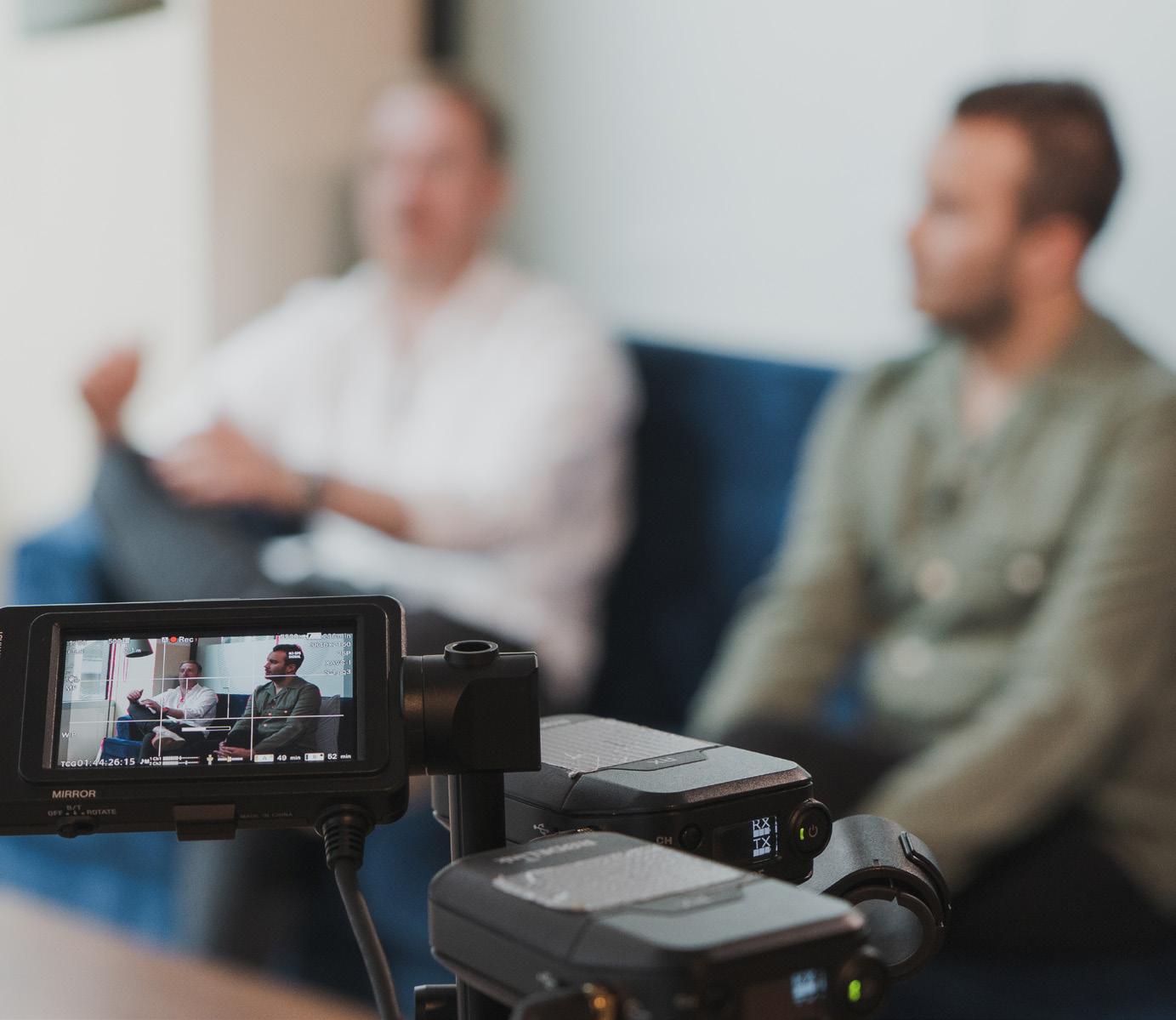
You see it on LinkedIn often and it’s normally from companies that aren’t doing much, but it is really easy to make it about yourself and say, “look at me, I’m the founder.” However, it is much harder to get people talking about your brand and to get engagements and likes for your brand.
That’s tough as people don’t like being marketed to and don’t often engage with a brand, but this is what we want to achieve, more so than it being about us. It’s also about the team and bringing them through to create value for the brand, and we encourage them all to post.
I think it’s important to be authentic and show vulnerability in personal brand building too, rather than posting “I get up at 5 am, have a smoothie, read a book, run a marathon and then close a deal.” It’s just crap and people aren’t buying it in the long-term.
Do you have to change your marketing strategy for the USA?
Yes, you do. And it’s often focused on the differences in wording. For example: we told people that bouncers would be checking IDs at the door, and they didn’t know what we were talking about. It’s a small point, but if there’s twenty or thirty of those misunderstandings in your messaging, suddenly your brand is not relatable to their audience.
Do you ever worry you’ll lose the vibe you have in the business as it grows?
Thursday is reflective of our personality. It is not corporate or serious and the brand will continue to grow and have its own attitude. And yes, there will be more red tape and risk as we scale and the team grows, but it will endure.
Business Leader - Inspire • Inform • Connect 13 THURSDAY
the business leader deal room
Business Leader highlights a selection of significant deals that have taken place in the last few months.
LOW CARBON
Corporate Finance advisor BCMS has advised the shareholders of MSS Group – a specialist provider of facilities and environmental services – on the sale of the business to RSK.

First established in 2005 and headquartered in Cardiff, MSS Group provides a range of services including industrial cleaning, waste management, asbestos management, water treatment, and security services.
Acquisition by RSK is set to expand MSS’ market both nationally and internationally, following a record-breaking year of rising revenue and pre-tax profits.
RECRUITMENT
The Hastings-based Sammons Recruitment Group has acquired IT recruitment experts Brightred and generalist recruitment consultancy On Track Recruitment. Bristol-based corporate finance specialists Shaw & Co advised Sammons on the deal which is part of a wider ‘buy and build’ strategy that will enable Sammons to create a much larger business.
TECHNOLOGY
Privitar, the modern data provisioning platform, has announced that it has acquired Kormoon, a software platform that helps organizations manage the complexities of data privacy regulations by analysing data usage, assessing risk, and automating compliance. Kormoon’s powerful technology will be used to extend the functionality of Privitar’s data privacy and provisioning offerings.
RETAIL
Gift Universe, the parent company of gifts and gadgets retailer Menkind, has officially completed the acquisition of Prezzybox, an established brand in the gifting industry and the creation of Founder, Zak Edwards. The acquisition, which was made for an undisclosed sum, will enable the company to extend its reach into the female gifting market alongside Menkind’s male-focused proposition.
FINANCE
Lumin Wealth has announced that it has acquired Ashridge Financial Management, a financial advice firm based in the South East. The acquisition will add more than £85m of assets under management to the Lumin Group and follows on from the recent purchase of Enhance Wealth Management.

SPORTS
Wasserman has acquired Mullhaupt Management and hired Chris Mullhaupt as Vice President. Mullhaupt brings his full roster of women’s and men’s golfers, which includes world #3 and Olympic Gold medallist Nelly Korda, and former U.S. Amateur champions Curtis Luck and Doc Redman, to Wasserman’s golf division.
August/September 202214
DEALS ROUND-UP
Simon Tombs Managing Partner Monahans

Business advisers for the modern age
With more than 100 years of Accountancy and Business Advisory experience, Monahans has the knowledge and understanding to anticipate your needs, no matter what.
TAKING THE NEXT FINANCIAL STEPS
It would have been ideal to sit here today and say that we all could, once again, thrive in a stable economy, but this may be rather optimistic.
However, what we have now that we didn’t have two years ago is hindsight. This ability to look back will give businesses and individuals greater control during the next phase of the country’s recovery.
Here are three aspects of your finances to consider:
CASH IS KING
The best solution to the current financial squeeze is having a clear understanding of your finances. Having good cashflow will be integral to ensure you don’t run yourself into any unnecessary debt, as well as show you how to tweak your spending to ensure your future projections stay in the green.
BE WARY OF WAGE INFLATION
In the current climate, individuals will be looking to their employers for financial support. However, in such a volatile economy, this must be handled with care. A wage spiral could prolong inflation therefore, alternative routes should be explored, such as one-off bonus schemes.
FOCUS ON STAFF RETENTION
While it may sound obvious, it’s integral that employers work hard at retaining staff. Your people are your best asset and will be the reason your business gets through the next phase. Listen generously to what they need.
We know that the next few months are going to be worrisome. If you ever need support or just a shoulder to lean on, our doors are always open.
Business Leader - Inspire • Inform • Connect 15 ADVERTORIAL
Monahans 2022 BL All Ads.indd 2 01/07/2022 14:15 COMMENT T: 01225 472800 www.monahans.co.uk
why funding doesn’t have to be a founder’s job
The head of a scaling, fast growth company wears many hats. Being the business’s corporate finance adviser doesn’t need to be one of them.
The subject of fundraising comes up frequently at entrepreneur forums. Tips and pitfalls are shared by founders and investors who’ve been there and done that, and as a founder yourself it can feel like navigating the funding process is all on you. It’s a daunting prospect when you’re trying to run a business.
However, the process of finding the right funding is a task that in many circumstances might be better delegated to a professional adviser. Often, founders feel pressured to take on this responsibility themselves, fail, and only at that point do they seek out an adviser.
“The main problem with this scenario is that, once you’ve put your investment story out to the market and not got the result you wanted, it can be difficult to get a second hearing,” says Zuleika Salter, Co-Head of Private Growth Capital, finnCap Group. “Part of the adviser’s role is to pre-empt any potential hurdles and work with management to ensure these are addressed before going to market.”
WHEN IS THE BEST TIME TO FIND AN ADVISER?
A founder looking for seed capital might initially go to friends and family as a first step to help grow their idea. This might also go as far as finding other high net worth individuals or angel investors, typically more willing to take on risk.

“It is often at Series A financing that things start to evolve,” says Zuleika. “This is the first time that institutional
capital is introduced in a structured way – in other words, investors are likely to request a more formal structure to protect their downside risk, which can impact a founder’s rights and control over the business. It’s wise to have an adviser by your side here.”
As a founder you might have impressive connections and have a good network of acquaintances who know a lot of venture capitalists. However, without a broad, agnostic view of the entire market, you may be doing yourself a disservice. Aside from distracting yourself from running the business, without running a proper competitive process and capturing only a small amount of the addressable market, there’s a chance you won’t find the right partner or achieve the best deal for your business.
“Ultimately, maintaining a full, relevant network of investors, speaking to them constantly, finding out where their heads are, and ensuring we’re speaking with all of them, is a full-time job,” adds Zuleika.
FEATURE
The prospect of paying an adviser might seem like a sting in the tail, but not having a complete view of the investor ecosystem can be a false economy and a poor use of time.
“A founder may come to us, having been unsuccessful in their fundraising process, despite talking to lots of investors,” says Zuleika. “We could put them in front of a handful of investors and receive competitive offers, simply because we know who to speak to and what will interest them about the opportunity.”
In pitches, a skilled adviser ensures the founder is coming to the investor fully prepared. They know the questions that different investors will ask. Approaching each investor in the right way will elicit the best response from that meeting, exploring each investor’s individual areas of interest and showcasing that part of that business that is likely to excite them.
HOW DO ADVISERS WORK WITH FOUNDERS?
The adviser and founder firstly work to gather the business story together. A founder will usually come to the table with some prepared showcase material aimed at investors. The adviser will work with this material and assess what stage in the business cycle the company is at currently, and draws up a shortlist on the best investor target audience.
“Once we’ve identified the target audience, we optimise the pitch deck to ensure we’re addressing likely questions an investor will ask,” says Zuleika. “Once we’ve fine-tuned the business plan, we organise for the management team to pitch the business to select target investors, negotiate offers on their behalf and managing the deal execution.”
The big benefit of all of this is to give founders their time back, allowing business operations to continue. It also brings context, transparency and expertise at a critical time. With a few offers on the table, the adviser will go back to the founder and explain what constitutes standard market practise and what doesn’t; they would help the founder visualise the reality, implications and potential impact of the terms of these offers, helping them understand what is the most valuable to their business.
“Shared values and alignment of vision are very important when considering an offer.
Advisers help clarify that for a founder and offer guidance so they can make an informed decision,” says Zuleika.
Another important point to consider is the emotional wear and tear. The entire fundraising process – especially the diligence and legal parts – is a tense time with, certainly for a passionate founder, a lot at stake for their company. Having an adviser acting as a middle person between the investor and founder can help to relieve some of this tension.
Zuleika adds: “At the end of the day this investor will sit on your board and have a say in the running of your business, so you want to maintain a healthy relationship with them that comes from a good starting place.”
WHAT’S NEXT?
Fundraising is usually not a one-off. No sooner have you secured one round of funding, than you’re looking towards the next round.
“Knowing that a company will need more money within a year or so, we would be looking for investors that can follow on with a further funding round, and would likely advise on that,” says Zuleika.

“Moreover, something to generally keep in mind is ensuring that the first round of funding isn’t prohibitive to a second round – this comes back to alignment and control. This does happen, and leaves the founder in a difficult position. Again,
this is something that your adviser can be mindful of.”
On a basic level, coming to an adviser first for fundraising guidance ensures that a founder saves time. You can rest assured that the adviser has an overview of the investment ecosystem and can vet the right target investor list for your business. They can ensure you understand fully the implications of any offer on the table and carry out the often-stressful due diligence and legal proceedings that come with accepting an investment, as well as future proofing the terms for future funding rounds.
Many founders come to an adviser first because they have little experience or knowledge of the funding process and need trusted guidance. However, it’s often the case that founders – especially those with a business background, that perhaps frequent the entrepreneur forums, and that have an established network – will approach an adviser only after exhausting their own fundraising opportunities. Not only has this already taken up valuable time and energy, potentially by fishing in the wrong pool of investors from the off, it can even jeopardise one’s chances of receiving the investment that’s needed further down the line.
Having the right adviser by your side from the beginning ensures you have the best chance of creating maximum value for your business.
Business Leader - Inspire • Inform • Connect 17 FUNDING
“SHARED VALUES AND ALIGNMENT OF VISION ARE VERY IMPORTANT WHEN CONSIDERING AN OFFER. ADVISERS HELP CLARIFY THAT FOR A FOUNDER AND OFFER GUIDANCE SO THEY CAN MAKE AN INFORMED DECISION.”
Bassim Haidar is a Lebanese national, Nigeria-born self-made billionaire. Starting his first business at just 20 years old, Haidar has gone on to establish Optasia, a large telecoms provider which operates in 19 countries and plays a major role in infrastructure in Africa and the Middle East.
With an estimated net worth of $16bn, he now has a stake in a variety of industries including fintech, logistics, energy, engineering, and medicinal cannabis. We spoke to Bassim on the Business Leader Podcast to find out how he built his empire.
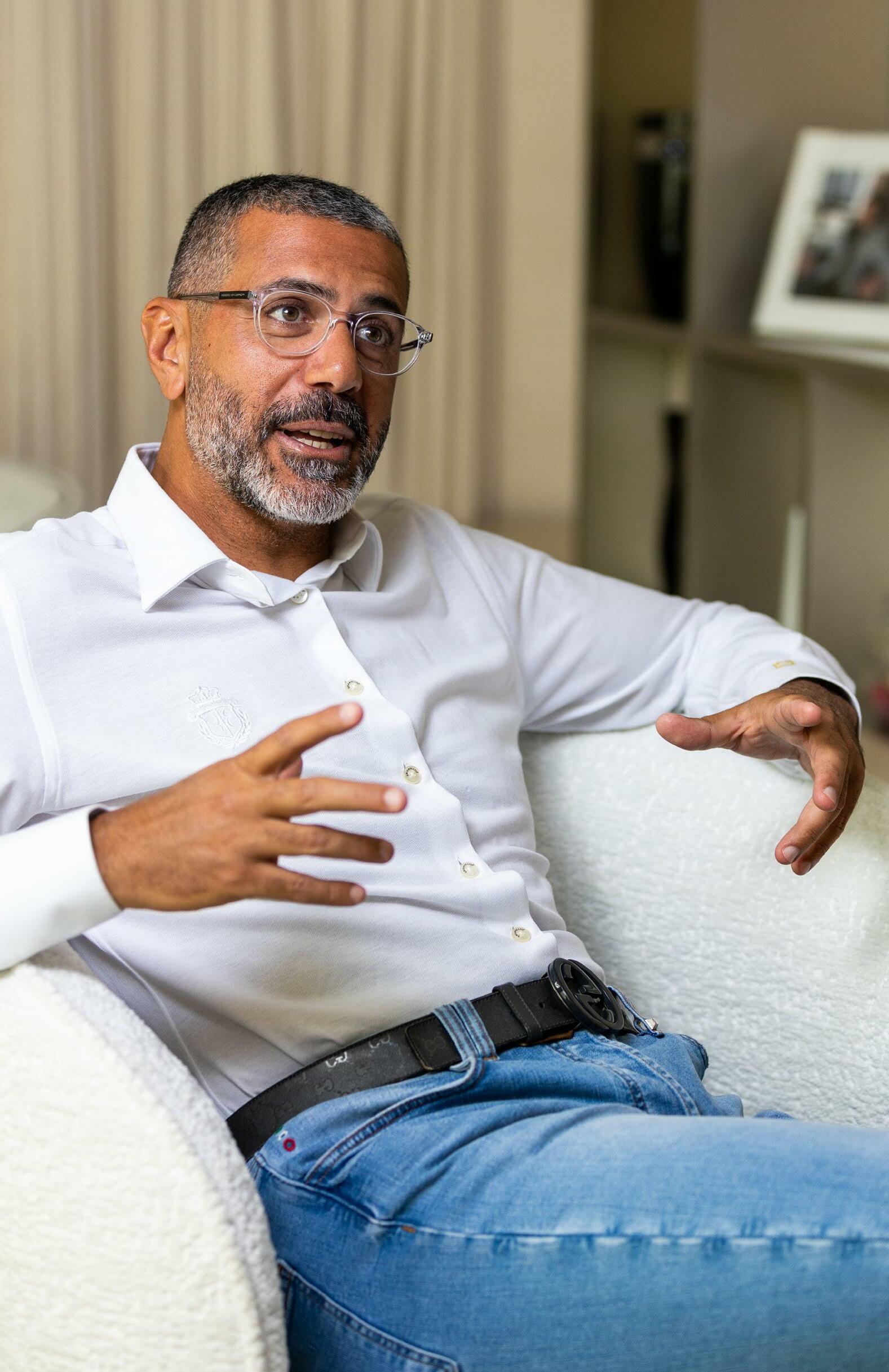
August/September 202218
bassim haidar: how did a selfmade billionaire make his fortune?
INSPIRATION
YOU FOUNDED YOUR FIRST BUSINESS WHEN YOU WERE ONLY 20 YEARS OLD. CAN YOU TELL US A BIT ABOUT YOUR PATH TO SUCCESS?
My path to success was definitely unplanned. After going to university in Lebanon, I came back to Nigeria and found that communication in the country was bad, but no one was doing anything about it. To put it into perspective, Nigeria had a population of seven million people and had 300,000 telephone lines – yet people couldn’t communicate. There were factories 50-60 kilometres outside of Lagos but there wasn’t any communication with them. So, I managed to find a solution to connect these factories to the main commercial hub.
I had very little capital to start the business – only $3,000. But after coming up with the equipment to make this work, it was a success from there. Factories were lining up to have this service – this was a solution I brought to my country.
I tried to create satellite TV on mobile phones and spent a lot of time and money on this, but it didn’t go well, and it failed. I was a bit ahead of the time with this idea and phones weren’t ready to deal with the massive flow of data required to make this work. This failure was a wake-up call and I was a lot more careful with how I approached new ideas after this happened.
In 2012, I had the idea of allowing people to provide credit to people who aren’t credit worthy. In Africa, the Middle East, Latin America, and Asian countries, there weren’t any credit scores and no data on consumers. We used the data collected on people’s phones to create a credit score, which allowed us to lend money to people by pre-approving them as a paying customer. This was a great success.
My most recent venture is a medicinal marijuana business – our idea is that medicinal marijuana is going to be big in the future. So, that’s where I am now.
YOU MENTIONED YOU TRIED TO START A TV SATELLITE BUSINESS BUT THIS FAILED. HOW DID YOU DEAL WITH THIS FAILURE?
The biggest lesson for me was making the mistake of assuming you can think of everything to make a
successful business. There will be one thing staring you in the face that you didn’t pay attention to, and this will ultimately cause your business to fail.
In this case, it was content. When you don’t have enough of the right content and the content providers are charging you a lot of money, this will kill your business. Smartphone penetration also wasn’t as big, and smartphones weren’t as powerful as they are today – we were too ahead of our time with this. Did you know that there’s more technology in an iPhone than there was in Apollo 11 when they launched it?
It cost us good money, but I took it as a lesson because if you win at everything, maybe the bigger failure will be devastating. Luckily, this one wasn’t. So, I used this failure to think of any potential parameters that could make me fail next time. I still use that mantra today.
DO YOU THINK THAT THERE’S A DIFFERENCE BETWEEN THE WAY THE WESTERN WORLD AND DEVELOPING COUNTRIES WELCOME TECHNOLOGY INTO THEIR LIVES OR THEIR SOCIETY?
I think in the West we take technology for granted. Whereas in the developing world, it is a daily need, a daily human right. It’s a daily requirement to survive, so it’s not taken for granted. The mobile phone in the West is your life but in terms of social media and unnecessary stuff.
How many people bank today through their mobile phones? You can do banking through your laptop or you can walk to a branch. In emerging markets, it’s not that easy without a phone, a secure connection, good connectivity, and a bank that is willing to bank you, and because of the small income that you generate, your phone is your livelihood.
Business Leader - Inspire • Inform • Connect 19 BASSIM HAIDAR
Listen to the interview here
Cont.
HOW DO YOU THINK GROWING UP IN NIGERIA AND HAVING THE EXPERIENCES YOU HAD IMPACTED THE WAY YOU LOOK AT THE WORLD?
I think growing up in Nigeria is equivalent to Harvard in a way. You learn first-hand how to deal with being in a very tough environment. Because in the West, when you have infrastructure and regulations supporting you, you can use your education and your skills to build on that regulation, to try and build a business. When you’re in a country where regulations are weak, where the environment does not support you, where the laws are weak, and where there is a high level of corruption, you need to be very careful, and you need to think very differently.
Your mindset is not the same mindset that you’d have in the Western world. And I think this is something that gets embedded in you from childhood – to be super careful and alert, but not to underestimate an opportunity being presented to you.
IS ENTREPRENEURSHIP SOMETHING YOU ARE BORN WITH, OR IS IT SOMETHING THAT CAN BE LEARNED?
The really successful entrepreneurs are the ones that are born entrepreneurs. I’ve got three daughters and I can see the one that is going to be an entrepreneur, I can see the one that’s going to be a lawyer, and I can see the one that is a little bit of each but doesn’t really know where she stands.
Just because I’m an entrepreneur myself, can I make them entrepreneurs? No, I cannot. Can I force them to be in one of my businesses? No, absolutely not. You either have it, or you don’t. I’ve seen many families hand over businesses to their sons because they believe they’re entrepreneurs and I can tell you 80% of the time that doesn’t go well.
That family wealth disappears on the second generation because of a lack of entrepreneurship. Succession planning is critical when it comes to well-developed businesses. It doesn’t have to be a family member, it has to be people that can continue the mission of the business.
“YOUR MINDSET IS NOT THE SAME MINDSET THAT YOU’D HAVE IN THE WESTERN WORLD. AND I THINK THIS IS SOMETHING THAT GETS EMBEDDED IN YOU FROM CHILDHOOD – TO BE SUPER CAREFUL AND ALERT, BUT NOT TO UNDERESTIMATE AN OPPORTUNITY BEING PRESENTED TO YOU.”
ENTREPRENEURS ARE TOLD TO NOT BE AFRAID OF FAILURE
BECAUSE IT’S NATURAL ON THE PATH TO SUCCESS. BUT WOULD YOU SAY A FEAR OF FAILURE IS A UNIVERSAL CHARACTERISTIC IN ENTREPRENEURS?
I believe that fear of failure is the single biggest driver for an entrepreneur. When you’re afraid to fail, you are going to put your absolute best into being successful. If you are thinking: “What

August/September 202220 INSPIRATION
if I fail? I’ll try again,” you’ve already set yourself up for failure because you allowed that 10% chance for failure to happen.
The fear of failure is going to drive you to deliver because you’ve not created another choice. In response, people say to me: “Oh, you must have been very confident.” But I say absolutely not. I was terrified to fail, and this is what drove me more than anything else. I was not prepared to fail.
DO YOU THINK IMPOSTER SYNDROME EXISTS IN THE WEST AS PART OF THE PRIVILEGE THAT EXISTS HERE, OR IS THIS SOMETHING SPOKEN ABOUT IN THE DEVELOPING WORLD TOO?
Mental health, stress, impostor syndrome, depression – people don’t have time for this in emerging markets. People want to live, people want to move on, people want to build things in these countries. I think in the West, we’re spending too much time thinking about issues that we create. We start to believe in these trends so much that we stop moving forward.
We operate different businesses in more than 40 emerging markets and it’s not something we come across because I think people have bigger problems that they need to deal with. People need to think about their food daily, people need to think about their kid’s health and kid’s education, so they don’t have time to self- diagnose.
I think in the West, we live with great standards. But as humans, we should start believing more in ourselves. Life is not easy; it’s going to throw bad things at us all the time. It doesn’t mean you’re just going to give up, you should learn from that and try and move forward.
A lot of entrepreneurs would consider your story to be an exemplar story of success. Do you feel like you’ve ‘made it’? How do you maintain your motivation even though, by a certain standard, you would be considered to have ‘made it’?

The truth is, I don’t feel I’ve achieved anything. I feel that I’ve achieved something, but there’s still a long way for me to go. A lot of people say: “Oh, it’s not about the money”. Honestly, right now, for me, it’s not about the money like it used to be.
It’s more about creating things that are impactful, things that maybe someone hasn’t done before –and that’s what excites me. I’m super excited about my medicinal cannabis business, and that’s because I’m learning all the time and because I believe this is going to be huge in the next five years.
DO YOU FEEL LIKE THERE ARE MOMENTS WHEN YOU LOSE YOUR CONFIDENCE OR YOUR SENSE OF PURPOSE?
We all lose our sense of purpose. Sometimes we question ourselves, but I think that’s just human nature. You need to question yourself all the time – whether you’re doing the right thing, whether you really need to start something new.
I think the most important thing for me was the challenge of removing myself from the operational day-to-day aspects of my businesses and trusting people to run my businesses – I think this is one of the biggest challenges that I had. Thankfully, I’ve got some of the most amazing people working for me, which allows me time to think about other things, to think about personal things that I want to do. I think the next stage in an entrepreneur’s life is to be able to achieve that.
WHAT MAKES A GREAT BUSINESS LEADER?
I don’t think there’s one thing that makes a great business leader, I think it’s many things combined. One of the things that I feel is very important is people trusting me. You need to create trust and people need to believe in you. Everyone wants to look to a leader, and when people believe in you, they believe in your mission and in your vision.
You should be a fair person and willing to take the people on the journey along with you. You shouldn’t be shy to get your hands dirty and be part of the teams you’re working with.
Do not sit up in the castle and let everyone do your work. You need to be down at the same level with them. But always let your people challenge you. The day you stop letting your people challenge you is the day you’re going to lose them.
I also think it’s critical that you listen. You’re the leader, you make the final call, but at the least you must give the opportunity for people to present their ideas and challenge you in a strong way before you make that final call.
CATCH UP WITH ALL EPISODES OF THE BUSINESS LEADER PODCAST NOW
Business Leader - Inspire • Inform • Connect 21 BASSIM HAIDAR
an economy on the brink
business leader reviews the uk and global economic outlook
Last year, economists were celebrating. However, just as the global economy returned to its pre-pandemic health, new shocks hit. A crippling cost-of-living crisis, the Ukraine war and signs of a recession are causing ripples worldwide.
Globally, economies are in recession 1012% of the time. We have not outsmarted the business cycle to experience permanent growth, so recessions always arrive. The question is not whether we are headed toward one, but rather, when will it hit? What will cause it? How bad will it be? And what can businesses do to survive?
UK ECONOMIC FORECAST
The British Chambers of Commerce has downgraded its expectations for UK GDP growth for 2022 to 3.5% (from 3.6%) against a deteriorating economic outlook. The heightened uncertainty and rising costs are also expected to significantly weaken business investment, with 1.8% growth predicted in 2022, down sharply from 3.5% in the previous forecast.
The Bank of England (BoE) expects inflation in the UK to rise to around 11% this year and to start slowing next year, predicting it to be close to 2% in two years. Allan Monks, UK Economist at J.P. Morgan tells us that even as inflation falls next year, it is likely to remain high as strong wage gains are passed on to prices by employers. He comments: “We expect the BoE to raise interest rates to a peak of 3%, but with risks of a move higher still.”
Furthermore, energy prices are exacerbating an already weak economy. While soaring prices are a global issue, the UK’s just-in-time approach to energy stores means its gas storage capacity is 9.3 terawatthours—a few days’ worth— compared to 151twh in Germany and 168twh in Italy, contributing further to a combination of persistently high inflation and faltering growth. The International Monetary Fund forecast is equally grim. Next year, the UK will face slower economic growth and more incessant inflation than any other major economy around the
world, reducing its competitiveness and demand in the global market.
UK consumer confidence is also dragging at an all-time low. GfK’s consumer confidence index fell from –40 in May to –41 in June, the lowest since the company began tracking the data in January 1974. The UK is exposed to potential recessions in the US and Eurozone, as weaker growth in both regions will be felt in the UK.
The BoE latest Financial Stability Report sums up the gloomy reality. “The economic outlook for the UK and globally has deteriorated materially. Prices of essential goods such as food and energy have risen sharply in the UK and globally, and the outlook for growth has worsened.”
“THE BANK RAISED INTEREST RATES FOR THE FIFTH CONSECUTIVE MEETING ON 16TH JUNE, FROM 1.00% TO 1.25%, AND WE THINK THE BANK WILL HAVE TO HIKE RATES TO A PEAK OF 3.00%.”
Nicholas Farr
cap, the upward strain on commodity prices, shifts in consumer purchasing and a lack of borrowing power. The uncertainty caused by high inflation can deter investment, causing a knock-on effect on productivity and a country’s overall productive potential. CPI inflation has already surged from less than 1.0% in early 2021 to a 40-year high of 9.0% in April 2022, and there are no signs of improvement.
With regard to inflation, experts do not paint a pretty picture. Capital Economics economists predict CPI inflation will rise to around 10.5% in October and fall back slowly thereafter.
IMPACT ON BUSINESS
Among currently trading businesses, 30% expect to increase the price of goods or services they sell in July 2022, according to the ONS latest release. Businesses face unprecedented inflationary pressures flowing from rising raw material costs, the increase in the energy price
August/September 202222 AGENDA
Nicholas Farr, Assistant Economist at Capital Economics explains that the BoE has a lot more work to do: “The Bank raised interest rates for the fifth consecutive meeting on 16th June, from 1.00% to 1.25%, and we think the Bank will have to hike rates to a peak of 3.00%. That’s a little lower than the peak of 3.50% now priced into the financial markets, but higher than the peak of 2.00% expected by most other analysts.”
Nick Andrews, Europe Analyst at Gavekal outlines the risks. “UK inflation is likely to reach 11% in Q4 after the energy price cap resets in October. Russia cut gas supplies to Germany by 60% through Nord Stream 1 pipeline following cuts to several
other EU countries, risking soaring energy prices through the next autumn and winter period. Food prices are another concern. Together these factors mean inflation could peak above 11%. The last time inflation was this high was in 1982.”
The Bank fears the economy is already heading for recession in 2023. “However, it’s quite likely the Bank will be forced to raise rates more rapidly. The market prices rate hikes to 3% by the end of the year and to 3.5% by May next year. This prices in a 50bp rate hike in August followed by another 50bp hike in September. This is aggressive but if inflation stays high, as looks likely, and the labour does not weaken substantially over the next few months then the BoE is likely to shift to a more aggressive stance similar to what the market is pricing.” The BoE is cautiously raising interest rates
given how high inflation already is. A more aggressive BoE makes recession more likely, according to Andrews.
WHAT CAUSED THE HIGH INFLATION?
First, shutting down the global economy in 2020 caused supply to contract as global producers of goods adjusted output to shrinking orders. Since incomes were protected by government policies and loose monetary policies, as soon as restrictions were eased, demand rebounded sharply but producers couldn’t cope. Rising grocery costs are also a major driver. Energy and transportation costs play a significant role, with motor fuel costs increasing by a third year-on-year, marking the highest increase since January 1989. The price for fossil fuels, having hit decades long highs, climate degradation and geopolitical tensions all look set to compound the crisis.
RECESSION OR NO RECESSION?
Brexit reduced the capacity of the economy through loss of workers, subdued investment since 2016, and downsizing the markets to which British companies can send their exports. Alongside the current market issues, a recession looks likely.
Business Leader - Inspire • Inform • Connect 23 ECONOMY
Cont.
“FOOD PRICES ARE ANOTHER CONCERN. TOGETHER THESE FACTORS MEAN INFLATION COULD PEAK ABOVE 11%. THE LAST TIME INFLATION WAS THIS HIGH WAS IN 1982.”
Nick Andrews
Illustrations courtesy of Mel Shephard
Andrews believes that the combination of supply chain disruptions caused by pandemic lockdowns and Russia’s weaponisation of global energy prices means that demand in the economy must slow to bring down inflation. Real incomes will contract, squeezing profit margins.
“Rishi Sunak’s fiscal support package announced in May is substantial and will offset much of these rising costs but ultimately, to avoid an even more prolonged period of high inflation, the labour market must weaken. This means unemployment will need to rise to the extent that wage pressures ease and that means recession,” according to Andrews. Allan Monks agrees. “In the near term, a strong labour market and healthy balance sheets are likely to help the consumer to navigate through the current real income shock. Labour market tightness and strong wage growth looks set to persist however, which is likely to require the BoE to raise rates further. This is a common theme globally, and there does appear a high probability that tighter monetary policy will eventually cause a recession over the next year or two.”
Other experts offer a slightly more optimistic outlook. While recognising the “very real risk” of a recession, Nicholas Farr is forecasting that GDP growth returns to positive territory in Q3 and Q4. “That’s partly because we expect households to cut their saving rate in order to support their spending, as the squeeze on their real incomes from higher inflation bites harder. Sunak’s fiscal support of
£10.3bn (0.5% of GDP) announced on 26th May should also provide some further support to GDP. That said, the big picture is that the risks to our GDP forecasts are skewed to the downside, and we think a recession is certainly possible”, he says.

He continues that demand outpaced supply causing prices to accelerate. This has been made worse by Russia’s weaponisation of energy prices and Western sanctions imposed on the country.
Weak policies, labour supply issues and Brexit are the main culprits according to Monks. “While it is easy to say that central banks and governments maintained their loose pandemic policies for too long, contributing to the rise in inflation, the issue also relates to problems with labour supply. Less people are looking for work and less are coming to the UK, as a result of structural changes since the pandemic and Brexit,” he adds.
HOW HAVE WE REACHED THIS POINT?
On the supply side, supply chain bottlenecks constrained business’s ability to produce goods and services. Nick Andrews anticipates a combination of factors that caused demand to outpace supply, causing prices to accelerate.
“First shutting down the global economy in 2020 caused supply to contract, as global producers of goods adjusted output to shrinking orders. Since incomes were protected by government policies and a super loose monetary policy, as soon as restrictions were eased, demand rebounded sharply but producers couldn’t cope.”
Farr explains that the pandemic and the war in Ukraine created the perfect storm. “The pandemic restricted the supply capacity of economies and, as they have re-opened after lockdowns, that supply capacity has failed to keep pace with demand. The war in Ukraine has functioned as a further catalyst for inflation, by putting upwards pressure on global energy and food prices. In the UK, a fall in the supply of labour since the pandemic means domestic price pressures are particularly strong. The hit to households’ real incomes from higher inflation will weigh on consumer spending over the coming quarters and helps explain the weak outlook for GDP growth.”
THE UPSIDE OF A RECESSION Recessions impact all kinds of businesses, due to tightening credit conditions, slower demand, fear and uncertainty. However, with knowledge comes power, and recessions can also benefit businesses. Certain industries are naturally more recession-proof than others, such as
August/September 202224 AGENDA
“IN THE NEAR TERM, A STRONG LABOUR MARKET AND HEALTHY BALANCE SHEETS ARE LIKELY TO HELP THE CONSUMER TO NAVIGATE THROUGH THE CURRENT REAL INCOME SHOCK.”
Allan Monks
healthcare, food and beverage, and utilities, due to their essential nature.
With support coming from robust financial systems and strategies, recessions can present opportunities for well-positioned companies. The challenges caused by a recession may drive creative thinking, strengthening companies, making them more efficient, innovative and financially diligent when the economy rebounds. Economic dips remind companies to dispose of excess stock and cut their costs. It teaches them to streamline processes while meeting the needs of their customers.
Inefficient companies get outed. These companies simply find it too difficult to stay afloat when sales fall. This allows more efficient firms to grow faster, hire workers laid off by disorganised rivals, or buy up the plant and property others are forced to sell. Recessions can clear the ground for future growth.
In booms, companies focus on meeting demand. Temporary disruptions like introducing innovative technology or changing working practices might make them lose business. In recessions however – there is time to pause and reflect – the costs of such disruptions are lower; firms can afford to risk teething problems with new software. Also, businesses can take advantage of quieter times to upskill employees and send them on training courses.
Businesses must navigate this inflationary period with resilience, flexibility and staying power, to successfully manage the price increases that haven’t been seen in a generation. Choose to act now and make any adjustments to leverage the opportunities to come. Increasing prices, a tight labour market and a decreasing pound – the economy is ticking every warning box – and a recession seems all but certain. The force of that recession is yet to be decided.

MAN V MACHINE: PROTECTING YOUR BUSINESS IN AN AI WORLD
Dorothy Agnew, commercial partner at law firm Moore Barlow offers advice to businesses amid the rising use of AI systems.
The rapid development of artificial intelligence (AI) and machine learning applications is seeing exciting new technologies being introduced to improve productivity across a wide variety of sectors.
For example, it is used effectively in cybersecurity to detect malicious activity and helps doctors and healthcare professionals with image analysis systems in cancer screening programmes.
Dorothy Agnew Commercial Partner

However, its introduction to modern day life is also bringing with it some worrying problems. If the AI software acts unlawfully, for example if it breaches data protection, discrimination or advertising laws, the organisation using the system could find itself facing legal proceedings from individuals and investigation or fines from regulatory authorities.
In May 2022 the Information Commissioner fined New York based facial recognition software company Clearview AI Inc £7.5m for collecting images of people from the web and social media to add to its database. The ICO ordered the company to delete any data that it held about UK citizens.
How can a smaller business protect itself from these risks while still taking advantage of the benefits offered by AI business processes?
CAREFULLY REVIEW THE SOFTWARE SPECIFICATION. Understanding the limitations of the AI system and where its knowledge and ability to learn begins and ends is vital.
DUE DILIGENCE. Conduct due diligence on the system itself and the underlying data used to teach the systems; find out whether the AI system’s learning has been supervised or unsupervised.
OPERATING UNLAWFULLY. Having contingency plans in place to take the system down if it publishes untrue statements that cause or are likely to cause serious harm to the reputation of an individual or breaches antidiscrimination or data protection laws.
INSURANCE PLANS. Will your supplier accept liability if the system operates unlawfully and does its insurance cover this? Ensure that you or your provider of the AI system has appropriate insurance to protect your business from some of the legal risks associated with AI systems.
A robust legal framework will help build trust in the use of AI systems and businesses should take proactive steps to reduce any legal risks.
Scan here to contact Dorothy today
Business Leader - Inspire • Inform • Connect 25 ECONOMY
COMMENT
“WHEN YOU LOOK AT THE ECONOMY, YOU SEE THAT NOT ALL TRADITIONAL FACTORS APPLY”
Chris Jones is Executive Vice President, Marketing and Services with Descartes, and we met with him recently to talk about the economy, consumer expectations around delivery and labour shortages.

HOW WOULD YOU ASSESS THE CURRENT GLOBAL ECONOMIC FORECAST?

Most economies are doing better than expected, but of course there are challenges such as the invasion of Ukraine. Russia only accounts for a relatively low percentage of global trade but there is an impact on grain and fertilizers coming from that area.
Fuel costs are very high – a large factor in the high interest rates we are experiencing globally, and not going away for a while, and this is where Russia is having a major impact. Here in the US, we are one of the world’s largest exporters but we are also one of the largest importers. We were taking in Russian oil because certain grades were cheaper and the refineries set up on the East Coast were cut off when the invasion happened, so there has been significant disruption.
BUT DO YOU FEEL THAT WE MAY BE ABLE TO AVOID A FULL-BLOWN RECESSION?
Recessions are often driven by the mortgage market, people are currently managing to pay their mortgages and stay in their homes, but this could change going forward.
Mortgage rates are more than double now in the US, and these are big percentages we’re talking about as you’re adding hundreds or thousands of dollars.
The question is – could a slowdown in the mortgage market have an impact on other areas? I follow the consumable durable goods index, and this looks more favourable than what was predicted earlier in the year by many economists. However, we do need to pay attention to interest rates in general. The degree that central banks treat it as a threat and raise lending rates could have a great economic influence.
The numbers for June show that US imports of containers is higher than June last year and comes off the back of the best May ever. So, this tells you that there is still a fair amount of activity and consumer spending hasn’t slowed that much yet.
When you look at the economy, you see that not all traditional factors apply because of how crazy things are. We have not seen as dire set of results as were predicted and now the market is talking about more of a soft landing.
CAN YOU TELL US MORE ABOUT CONSUMER SPENDING ONLINE AND HOW THIS IS HOLDING UP?
The statistics show us that 46% of Europeans, Canadians and Americans engaged in online purchasing with home deliveries earlier in the year, and this was up from pre-pandemic 37%.
When we look at our recent consumer sentiment surveys, they show that people also intend to buy more and we expect this to increase online purchases with home deliveries by two per cent.
Fundamentally, most economies are still very strong, and hiring is strong too. The counter balance of inflation is putting pressure on consumers, but they are still turning online for purchases.
CAN YOU TELL US MORE ABOUT THE RECENT CONSUMER SENTIMENT SURVEY THAT DESCARTES CARRIED OUT?
As I mentioned earlier many interesting trends have recently come from the survey such as seeing online purchase with delivery going up by two percent. The number one reason for this is the convenience of buying online and interestingly, we’re seeing that the largest growth is coming from people aged 55 and upwards.
However, consumers are not happy with home delivery performance, with only 36% saying they were and had seen improved performance, suggesting two thirds aren’t experiencing a positive delivery experience.
Three quarters of those polled, also said they had experience delivery failure earlier this year. The demand is out there but retailers are struggling with delivery performance, and this is being exacerbated by a combination of driver shortages, capacity and continued high demand.
YOU MENTIONED THE DRIVER SHORTAGE ISSUE – HOW BIG OF A PROBLEM IS THIS STILL?
It is still a very large issue. One issue is that there are more jobs than there are drivers taking them. Home delivery driving is a tough job and drivers are leaving the market is a big issue because they can find work relatively easily in other areas of the economy. Most countries are going through a decline in population too. The replacement birth rate in the USA is 2.1 babies per woman
August/September 202226 AGENDA
and it hasn’t been at this rate for fifty years. The UK and much of Western Europe is lower still.
South Korea’s rate is 0.6 and Japan is 1.1 too. If the problem is bad today, it is not likely to get better in the future.
ARE THERE ANY OTHER NOTABLE LABOUR MARKET TRENDS IN THE UK?
Half a million people aged between 50 and 65 have left work since the pandemic and they are not signing on to receive welfare and they haven’t gone into another job. They just stopped working but the cost of living is increasing, so this group may come back into the workforce and help to alleviate the issue.
To solve this issue, we need to go into untapped areas like this and to tackle the subject at schools as people don’t grow up thinking about driving a truck, so there is lots of work to be done across many different demographics in society.
You also can’t ignore the impact that curtailing immigration has had too because sixty thousand active drivers have been lost due to Brexit and the pandemic.
FROM THE FINDINGS IN THE CONSUMER SENTIMENT SURVEY, HOW IMPORTANT IS SUSTAINABILITY TO CONSUMERS?
It is very important to consumers. The survey covered Europe and North America and the majority of respondents said that retailers aren’t doing a good job around sustainability. Consumers are willing to make delivery choices that have a positive impact on carbon footprint.
Being more sustainable can make you more productive too. Look at initiatives like Amazon Prime Day, where you can have everything delivered on a certain day of the week. So, if your Prime day is Thursday, you’ll get everything on that day and as it is a bulk order, it is better for the environment.

If brands are telling consumers that they will be in their area on a certain day, that would help the environment too. Retailers need to wake up to how being more sustainable will make their businesses more productive. You can keep treating it is a monolithic service whereby everybody gets the same thing, but you need to create
delivery personas that differentiate between those that are interested in cost, those that want precision and an exact time that may be in a month or two, or those that want speed and next day or straight away. You can even add a new dimension around these buying personas that is factors in sustainability.
HOW CAN DESCARTES’ TECHNOLOGY HELP RETAILERS TACKLE RISING COSTS AND INFLATION?
We offer something called dynamic delivery appointment scheduling, where you can score delivery options. As a consumer you can go to an e-commerce retailer’s website, and you will be presented with certain delivery options. We provide retailers with delivery options that are economically scored and they can determine which delivery options they want to offer consumers at the point of sale based upon cost to deliver and even environmental impact.
For example, the retailer will know that they have a delivery at a certain time in that area so they can present the consumer with options to have a slot adjacent to this time because these options have the highest economic scores and lowest environmental impact. Equally, times where there are no deliveries in the same area will be scored much lower and not presented to the consumer.
HOW WILL TECHNOLOGY KEEP IMPROVING THIS PROCESS?
Where this is going is the combination of real-time booking and GPS tracking so you can book deliveries on a live fleet, and the system will know not only which vans could make the deliveries, but also select the ones that are most productive and profitable. Conversely, you will be able to see if a delivery driver is behind schedule and therefore it wouldn’t be feasible to engage them.
You will also see machine learning used to improve the delivery productivity and precision, to predict when deliveries might be at risk. Estimated-time-of-arrival (ETA) will be based on actual traffic conditions and historical data. It will also consider factors like weather.
Business Leader - Inspire • Inform • Connect 27 ECONOMY
hunting for fast growth
with red diamond executive headhunters
In each edition of Business Leader Magazine, we profile a UK business that is experiencing fast growth in a feature called Fast Track. This time, we spoke to the Huddersfield-headquartered executive search firm, Red Diamond Executive Headhunters.
Founded in 2011 by Emma and Simon Robinson, the global search firm utilises more than 25 years of industry experience to help businesses from the United Arab Emirates and the US to Singapore and
Australia find professionals that others cannot. Currently on track to reach £1.2m in turnover by the end of this year, a 112% increase from 2021, the company is also predicting that its revenue will grow by a further 50% to £1.8m in 2023.

A DIFFERENT WAY TO GROW
Attracting external investment can be difficult, but for the companies that successfully acquire funding, it can be an excellent way to accelerate growth. However, Red Diamond have gone about growing their firm differently.
August/September 202228 BUSINESSFASTLEADER TRACK FAST TRACK
Co-founder Emma Robinson comments:
“Aside from a £20,000 start-up loan from a family member, Red Diamond has been self-funded. We have no loans or debts at all. For the first ten years, our business was a lifestyle one. We earned a good take-home salary up until then, but we were risk averse, almost to our detriment. In 2018, we decided to go for growth and we’re on track to hit £1.2m in turnover this
“That steady growth has stood us in good stead because it means we’re an
We also have a brilliant culture; we treat people properly and we have a laugh together - it’s so important.”
However, it’s not just their staff that the company keeps satisfied.
“We are very good at retaining people. Our strapline is ‘Recruit for tomorrow’ because we bring in good people who can stay for the long haul. This is as true for us as it is for the clients we work with,” continues Robinson.
“We win new work, and we keep our clients happy, so that they never leave us. Everything we do, from the job profiles we write to the invoices we send and everything in between, is professional and robust. We are only as good as the last person we dealt with believes we are, so we never let standards slip.”
In an industry as competitive as executive search, you also need to be able to capitalise on opportunities as they’re presented. However, Red Diamond has positioned itself to take advantage of opportunities, should they arise.
“Our business is sales. Our whole model is focussed around business development, so it’s an environment with high energy. We bring people together, we’re not afraid to put our head above the parapet to win business from people who lose it,” says Robinson.
STANDING OUT FROM THE CROWD
Despite employing some excellent measures to ensure their success, the biggest challenge the executive search specialist has had to overcome is one that many businesses are faced with: standing out from the crowd.
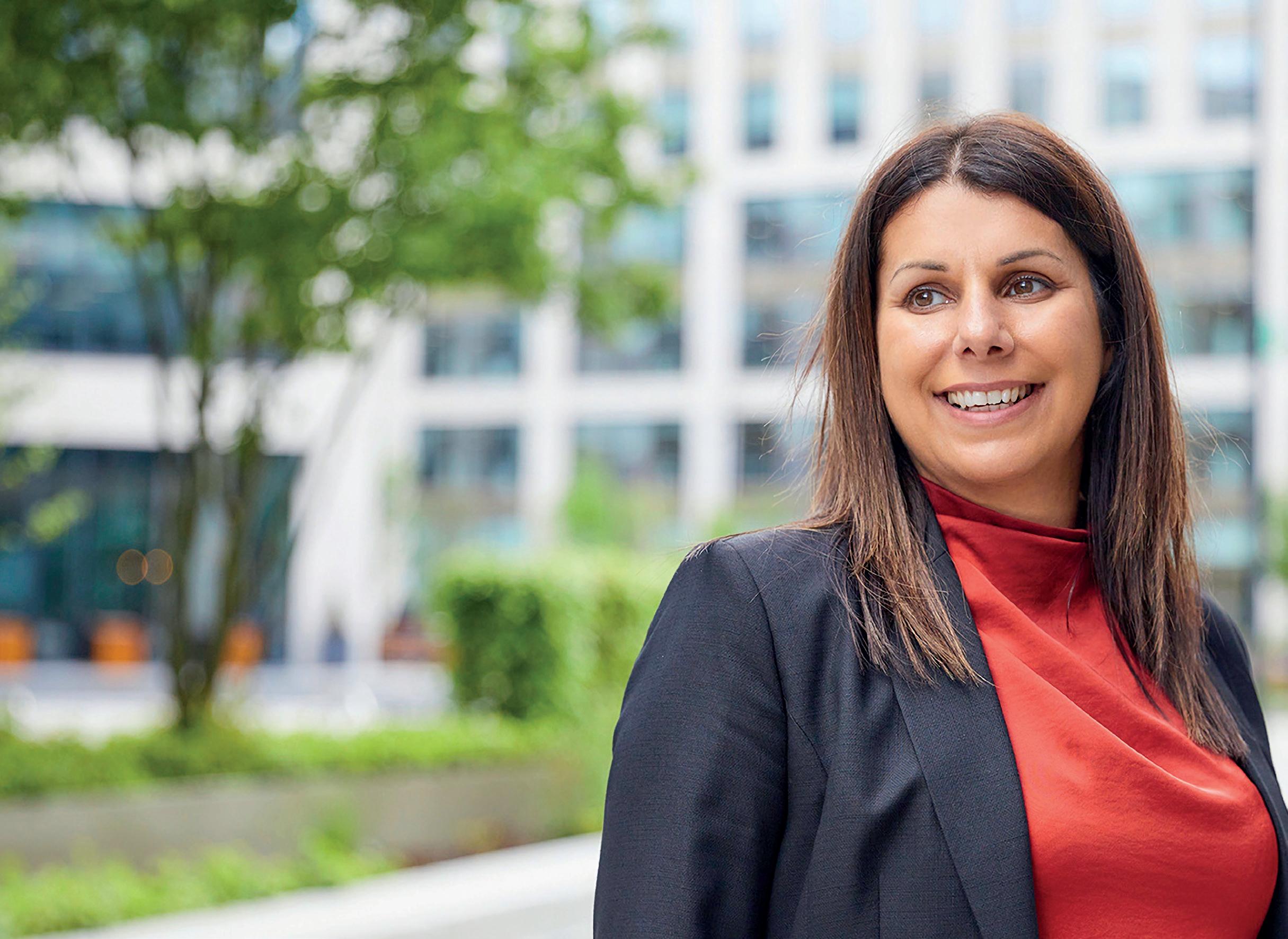
Cont.

RED DIAMOND EXECUTIVE HEADHUNTERS
“FOR THE FIRST TEN YEARS, OUR BUSINESS WAS A LIFESTYLE ONE. WE EARNED A GOOD TAKE-HOME SALARY UP UNTIL THEN, BUT WE WERE RISK AVERSE, ALMOST TO OUR DETRIMENT.”
Emma Robinson
Emma Robinson Co-Founder Red Diamond Executive Headhunters
“The most difficult thing has been proving our worth in a market where you can easily be deemed ‘like everybody else’,” continues Robinson.
However, the issue of finding talent that has plagued so many businesses in the era of the Great Resignation has also provided a barrier for the company to overcome.


Robison says: “Ironically, it is also tough to find the right people, especially when you have grown a company from nothing and reinvested your hard-earned profits - it’s our baby. I have found it hard to let things go, but I trust my team implicitly. I would hand them my house keys with no problem.”
“NEXT YEAR, WE’LL HIRE AN ADDITIONAL THREE PEOPLE. THE NEXT COUPLE OF YEARS ARE ABOUT TAKING ADVANTAGE OF THE REPUTATION WE HAVE GROWN IN SPECIFIC SECTORS.”

FUTURE PLANS
One of the most remarkable aspects regarding Red Diamond’s exponential growth is that they have achieved it with just four fee earners. So, to continue growing, expanding this part of their team is central to the company’s future plans.

Robinson comments: “We are going for sustained growth, year-on-year, and we have a strong plan behind us. This year, we’ll increase the number of fee earners to six. Next year, we’ll hire an additional three people. The next couple of years are about taking advantage of the reputation we have grown in specific sectors. This will be a
building block which will lead to future acquisitions.”
But that’s not all. The executive search specialist also has exciting expansion plans lined up.
“Our business was founded in the Middle East, and we still have a presence there, but this will grow over the next 12 months. We also have plans to open locations in the Asia-Pacific region and the USA - which has a strong aviation presence (one of our key sectors). At home, we’ll open a London office to grow our financial services client base,” concludes Robinson.
August/September 202230 FAST TRACK RED DIAMOND EXECUTIVE HEADHUNTERS
the uk's voice for business HOW CAN YOU COMMUNICATE WITH THE BUSINESS LEADER AUDIENCE? • Bi-monthly national print magazines • Industry-leading live, online events • Sector-focused roundtable events • Digital packages built around you • Daily/weekly news emails Receive your copy of Business Leader Magazine at home Sign up to our weekly newsletter View our Digital edition To find out more about our audience and how you can connect with it, call 020 3096 0020 or email editor@businessleader.co.uk to talk to our team or request a media pack. www.businessleader.co.uk
Emma Robinson
THE
OF INDUSTRIAL INCIDENT RESPONSE
BY ANTHONY ATKINS – SALES DIRECTOR, UK & AFRICA
It was recently reported in the media that a cybercrime gang going by the name of Predatory Sparrow caused a physical fire at a steel manufacturer in Iran after launching a cyberattack on its network.
The group claimed to have merged the digital and physical worlds, putting people’s lives at risk and showcasing what the security industry had been fearing for years – cyberattacks have become physical.
While any cyber attack is damaging, attacks that target industrial organisations and cause physical disruptions are widely regarded as the most severe. These critical organisations manage the supply of gas, electricity and fuel into society. When they are hit with attacks, society often comes directly into the firing line in the way of food, gas and energy shortages.
Furthermore, as was demonstrated in the attack orchestrated by Predatory Sparrow, people working in industrial plants are put in inherent danger when production machinery fails or operates in a way it was not intended to.
As countries across the world are turning their attention towards digital offences and defences, attacks on industrial organisations are becoming the new norm. In fact, over the few last years, the world has witnessed a series of damaging ransomware attacks hitting Colonial Pipelines, JBS Foods and Norsk Hydro.
As a result of this increased threat, it is vital that industrial organisations stay ahead of the curve and prioritise their digital defences. However, in environments which were traditionally engineered to be insecure-by-design, this is often easier said than done.
Digital transformation strategies are aggravating security because internet connectivity is being introduced into
industrial environments which were traditionally air gapped. Operational Technology (OT) is now being routinely connected to the industrial IT network to improve efficiency, and cut cost, but this also means critical machinery can now be accessible via the internet.

When it comes to securing this newly connected OT, this presents many challenges as it is often partly or wholly too old or too fragile to be taken offline to have security updates and patches applied.
When it comes to tackling these challenges, industrial organisations need to focus on visibility, network segmentation and patching. These organisations need to gain visibility of all their connected assets on both the OT and IT networks, then patch the systems that can be patched and segment systems that can’t be patched or protected with modern security.
However, another core aspect of industrial cybersecurity is preparedness in the form of incident response planning. This initiative allows industrial organisations to run cyber fire drills, where they practice their response to different threats to determine where they come out strongest and weakest.
Cyber incident response planning is critical for all industrial organisations today as it enables them to respond to threats quickly, minimising damage, disruptions and losses. It teaches employees their roles and responsibilities in advance of attacks taking place, so they can jump straight into action when real situations occur.
Best practices for industrial cyber incident response include:
• Plan for attacks and regularly rehearse your response to minimise losses.
• Ensure everyone has clearly defined roles and responsibilities so team members can step into action as soon as an incident occurs.
• Implement a security tool that enables you to determine the root cause of the intrusions quickly.
• Develop a recommended course of action for the OT operations team to contain, mitigate, and eradicate attacks.
• Work with a reliable and trusted security partner to respond to and investigate attacks.
• Document incidents so you can learn about what went right and, most importantly, what went wrong. If organisations do not properly document incidents and findings, they cannot learn from these events and will continue to make the same mistakes over and over again.
Incident response allows industrial organisations to harden their networks against potential attacks and rehearse their response ahead of real incidents taking place. It is rarely an expensive endeavour and when it is done properly and regularly it can mean the difference between success and failure.
As a result, it must be a priority for all industrial organisations that are wanting to stay ahead of the increased cyber threats they are facing today.
IMPORTANCE
CYBERSECURITY Business Leader - Inspire • Inform • Connect 31 www.dragos.com
Manchester represents the largest UK city region economy outside London, with an economy worth £62.8bn (GVA). In recent years there has also been a shift in emphasis from leaders in the region from creating an economy that measures success on how many jobs it is creating to one that is focusing not just on volume but also on the quality of jobs, with the average wage for a role in the city now exceeding the national average.

The city still lags London and Bristol in what it creates per head for the national coffers, but its progress has been startling; its public and private collaborations admirable and its future bright.
Business Leader took a day out in Manchester and hosted a debate with senior leaders from multiple sectors to look at the challenges and opportunities facing the city.
WHAT ARE THE CHALLENGES BUSINESSES FACE IN MANCHESTER?
Neil Douglas is Senior Business Development Manager at Sync, a £100m plus turnover IT solutions Company and Apple Authorised Reseller. It’s been in the city for thirty years and, akin to one of the key national challenges, he says that businesses around UK are struggling to find and attract top talent in a highly competitive market.
He comments: “One of the key challenges
future of manchester
Manchester businesses face is being able to recruit the talent that needed for various roles. It’s a candidate driven climate and we are working with more organisations to offer staff their choice of device to incentivise and attract the best candidates.”
“MANCHESTER’S TECH INDUSTRY IS GROWING AT SIX TIMES THE RATE OF THE UK ECONOMY, WHICH IS MASSIVE, AND IT EMPLOYS 100,000 PEOPLE IN THE TECH SECTOR, WHICH IS A FIFTH OF MANCHESTER’S POPULATION.”
Christina Melling
Jo Sellick is the Managing Director of Sellick Partnership, a recruitment business that was born in the city.
Elaborating on Neil’s point about recruitment challenges, he said: “In the last six to nine months, I have described the current recruitment process as being like the Wild West. The process doesn’t really start until your prospective candidate who you want to hire has resigned.
“You might go through three interviews with the person you want to hire and then,
when they resign their employer thinks, ‘oh I don’t want to lose this person’ and they come back with a counteroffer with more money or additional perks and then you’re into the process of the candidate being pulled from left to right. This is creating wage inflation and adding time to the recruitment process.”
Jo says that he expects this to continue for another six months but for the market to calm down in the fourth quarter of the year and for the market to become more employer driven.
He’s also uncertain that working from home will retain its glow: “If I’m working in sales and I’m in my twenties, I am not sure I would want to work from home five days a week. I would want to be working in the office at least two or three days each week, making connections and learning.”
Christina Melling is the founder of Stipendium, a prop-tech start-up. On the challenges she is facing as a business in the city, she says: “I think it’s hard for tech start-ups to really stand out now. I think Manchester is incredible for turning startups into challengers and challengers into industry leaders. It has been reported that we have a £5bn technology ecosystem here with 10,000 digital and tech businesses. Manchester’s tech industry is growing at six times the rate of the UK economy, which is massive, and it employs
August/September 202232 DEBATE
100,000 people in the tech sector, which is a fifth of Manchester’s population.

“My concern however is that within the context of all this growth: is this driving too much competition in terms of the investment and the loan opportunities that are exclusive to Manchester now? I am currently self-funded, but we’ll be looking for funding opportunities very soon to expand, grow and scale. As much as Manchester is the place to start a tech business, there also seems to be huge competition for funding.”
There has never been so much funding available but….
FUTURE OF MANCHESTER
“IF I’M WORKING IN SALES AND I’M IN MY TWENTIES, I AM NOT SURE I WOULD WANT TO WORK FROM HOME FIVE DAYS A WEEK. I WOULD WANT TO BE WORKING IN THE OFFICE AT LEAST TWO OR THREE DAYS EACH WEEK.”
Jo Sellick
Cont.
Ben Davies, who is a Director at Praetura – a funder that only invests in Manchester companies – says that the city is seriously evolving when it comes to its funding ecosystem.
He says: “From a global tech standpoint, Manchester has only just started because it wasn’t on the radar ten years ago. The number of equity deals being closed is doubling each year. In 2012, it was 155 and in the last year it was 320. The ecosystem is also evolving in the sense that the idea of the founder flywheel is happening where exited founders are going around again and starting their next business in the city.”
On the competitiveness of attracting funding, Ben also says: “Yes, it is competitive but if you go and talk to somebody in Liverpool or Leeds, they’ll say the same thing. A challenge for us is that you can work remotely in the city for a London company but in the long-run London is more scared of us than we are of them. Manchester has a cheaper cost of living and I suspect London businesses will start to want those remote staff to come into the office more.”
only receives seven pence of every pound invested in the UK, so there is a funding gap and Praetura is trying to bridge this, but we can’t do it on our own.”
PRODUCTIVITY CHALLENGES
Carla Yearsley, who is Regional Development Director at Lloyds Bank, says that one of the challenges her customers and businesses face is finding opportunities to connect with other companies.
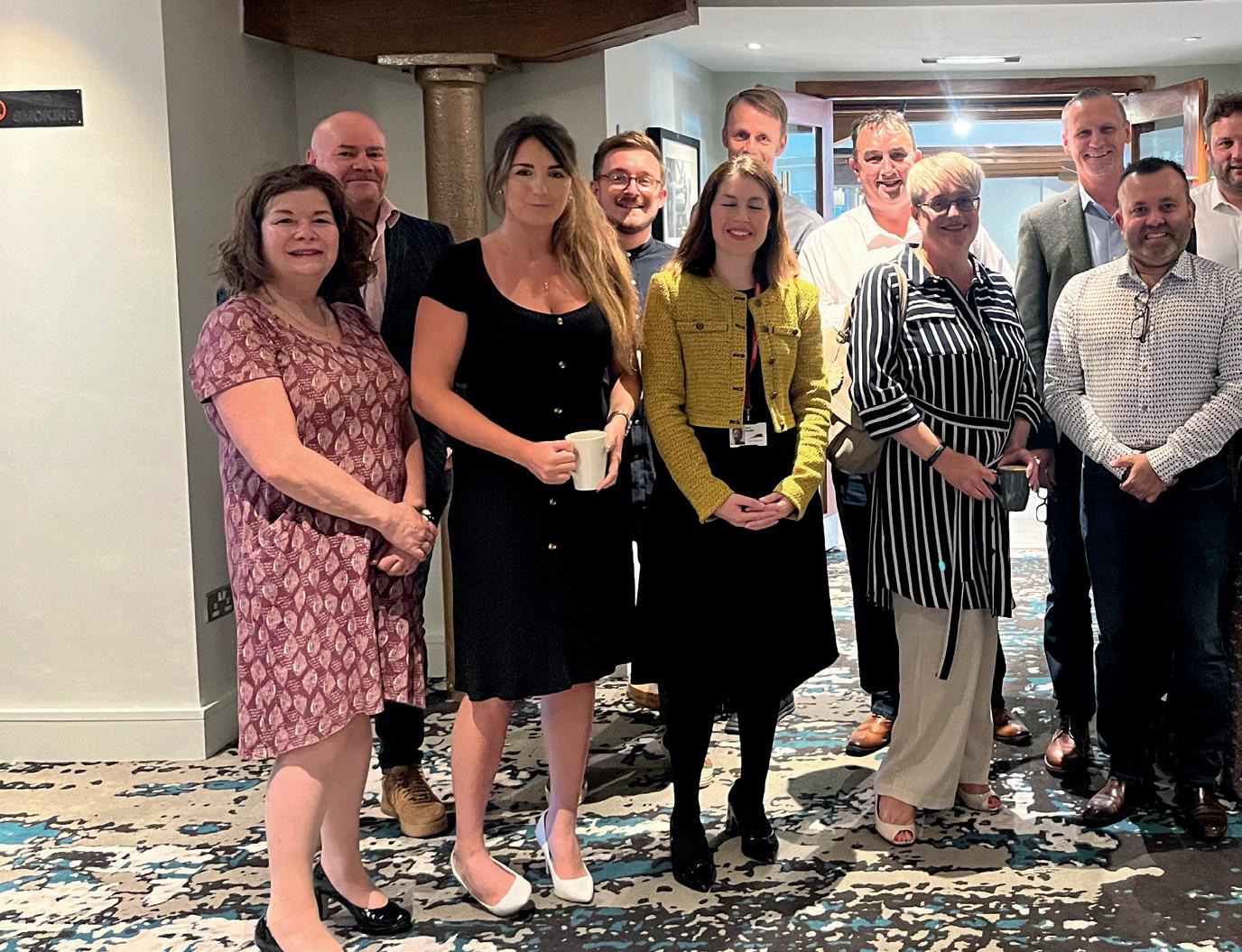
She explains: “We go out to our customers each quarter and survey them. One of the questions we asked was what support they feel they need to help their business in the current climate in order to grow.
“The three key findings were being able to attract funding, guidance and support about making their business more sustainable and opportunities to meet and network with other business leaders, founders and mentors. Worryingly though, we also found out through the research that North West productivity sits at 9.6%, which is lower than the national average.”
Regarding productivity, Kate Palmer, who is a HR & consultancy Director at Peninsula, believes that encouraging more office working can play a part in solving this puzzle.
One organisation that has been instrumental in Manchester’s development over the last several years has been the We Love MCR Charity. Ged Carter from the organisation, says believes that going forward, hybrid working will be good for the city.
He explains: “Firstly, the social deal that this generation has is broken. When you were younger you would work in a job, and you could easily afford to buy a property. Secondly, I feel that changes to working patterns will be a stimulus to solving productivity problems and we’ll look back in ten years and realise this.”
WHAT ARE INWARD INVESTMENT LEVELS LOOKING LIKE IN THE CITY?
The marker of a city’s success is also how much inward investment it is attracting. Deborah Walker, Head of Inward Investment at Manchester’s Inward Investment Agency (MIDAS), says they are seeing more UK investors looking to invest in the city.
She explains: “In the last couple of years, it hasn’t just been foreign direct investment coming into the city but also UK investors looking to spread their geographical
Ben Davies
Ben also says there needs to be a shift in mindset when it comes to funding growth in Manchester: “We’re the only Northern focused VC fund. This is insane when you think that we produce 16% of the UK GDP from a technology point of view, but we only see 13% of the investment. You’re 75% more likely to raise money if you’re in the South East compared to here. This needs to change. Manchester
She says: “I am an advocate for office working. I think from a collaborative point of view, certainly in the role I do, it’s difficult to do that at home. There is a place for hybrid working but I think it’s difficult to have permanent home working and progress your career. I know that is hard for some people to hear but I believe it to be the case.”
August/September 202234 DEBATE
“FROM A GLOBAL TECH STANDPOINT, MANCHESTER HAS ONLY JUST STARTED BECAUSE IT WASN’T ON THE RADAR TEN YEARS AGO. THE NUMBER OF EQUITY DEALS BEING CLOSED IS DOUBLING EACH YEAR.”
footprint and spread their risk. These companies were looking at what their office use is going to be like and where they are going to attract talent from. As a result, we have seen lots of firms with London headquarters wanting a second office and choosing Manchester.
“Manchester also ended last year performing higher than any other year since 2018 and we have seen a boom in investment with 56 live projects and 5,091 jobs created against a target of 2,000 jobs.”
HOW DOES MANCHESTER COMPARE WITH OTHER REGIONAL CITIES?
When it comes to how Manchester compares to other UK cities, Deborah says: “Manchester has moved up the value chain and changed from being a backoffice destination and become a place that is home to significant research and design and innovation-led companies.
“The type of jobs and companies we are working with has also changed. It’s become more about businesses with strong green credentials and ones we consider good employers. Our metrics have changed from just creating jobs and
projects to creating higher value roles and not just building factories and call centres.
“Last year 68% of all the roles that we advertised were salaried over £35,000, which is above the national average.”
Deborah says that Manchester will continue to remain a key business destination in the UK and people are choosing the city due to its talent and mature public and private relationship.
She explains: “Businesses are coming to the city because of the talent that is available here, both coming out of our great universities but also talent that is coming here. Collaboration and our ecosystem are also a big attraction and there are very few markets like ours.
“We also have a very invested combined authority and strong political leadership that not only has the autonomy to deliver big projects but is actually doing it.”
Ben Davies agrees that the city’s stability has been key.
He says: “I’m not joking when I say that Manchester is the capital of England because London is another country. Stability has been key to its growth and Manchester had the same chief executive
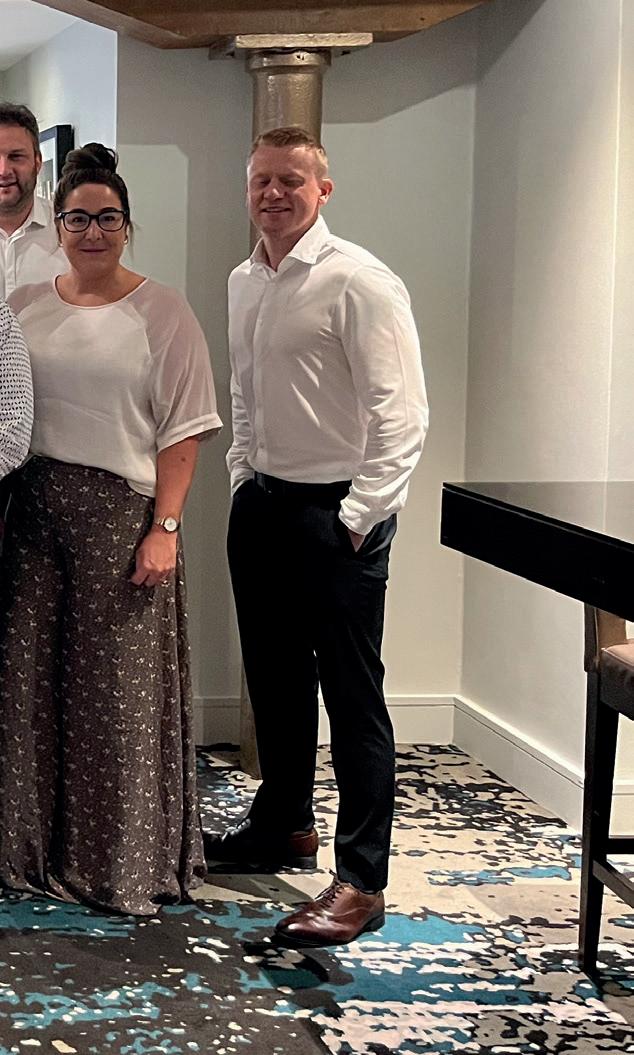
manchester property by numbers
• Q1 2022 supply currently sites at 3,591,069 sq/ft, of which, 827k is grade A supply.
Based on the previous 5 year uptake, there is currently 2.8 years of supply available. This does not include new stock coming to market.
• Q1 2022 is down 12% against 2021 in terms of uptake. What is interesting here though is that we have had 70 individual transactions, which is the highest since 2018. Clearly demonstrates smaller uptakes are ongoing.
• Prime rent currently sits at £38.20per sq/ft. This remains unchanged since Q4 of 2021. £40 per sq/ft is expected to be hit in 2022.
and leader of the Council for 20 years. This is unheard of and unprecedented.
“We’re seeing a masterplan being delivered that was on somebody’s desk twenty years ago and I have not seen this anywhere else in the UK. Leadership is absolutely committed to making the city an attractive place to invest in arts, sport, leisure and business.”
Jason McKnight – a Director at RECOM Solutions Ltd – agrees that from a commercial property perspective, city planning has been executed well.
He says: “We’ve had 20 years of strategic growth within the city, and it has been carried out in such an impressive manner and it has really helped the city grow. As a city, we currently have just under 3.6 million square foot of commercial office space available that will last us around three years. 30% of this is already pre-let and the type of businesses coming in are technology and innovation-led companies.
“There is also a good mix of grade A, B and C available. We’re seeing start-ups, scaleups and corporates all taking space. The market is buoyant, which also suggests that not all companies are looking to employ remote working.”
• Q1 uptake was 207,000 sq/ft with an average uptake of 2954 sq/ft.
• ROKU were the biggest standalone uptake in 2021 – taking 115,000 sq/ft in circle square. This shows how TMT (Tech, media and telecoms) are presently dominating the Manchester market.
• TMT had 29% of 2021’s uptake.
• We have 1,340,000 sq/ft of commercial space under construction, with a projection of 743,665 sq/ft due to complete in 2022, of this, 402,900 sq/ft is pre-let to TMT businesses.
Business Leader - Inspire • Inform • Connect 35 FUTURE OF MANCHESTER
leader in focus

June/July 202236 LEADER IN FOCUS
August/September 2022
SELLICK PARTNERSHIP jo sellick
Jo Sellick is the Founder and Managing Director of Sellick Partnership, a UK-based specialist recruitment agency. Founded in 2002, the firm operates in seven locations, and in 2022, was recognised as one of the 100 Best Workplaces™ in the UK to Work® by Great Place UK for the sixth time running. We spoke with Jo about his background in the recruitment industry, what makes Sellick Partnership such a great place to work and what Jo believes makes a good leader.
CAN YOU TELL US A BIT ABOUT YOUR BACKGROUND AND WHAT YOU WERE DOING BEFORE SETTING UP SELLICK PARTNERSHIP?
We set up in 2002, so we are currently celebrating our 20th year in business. Prior to setting up, I worked for a national recruiter, Badenoch + Clark, and then a regional recruiter based in Leeds, called Hitchenor & Maher. So, that gave me about seven or eight years’ experience in the recruitment industry.

I've kind of always felt that at some stage in my life, and I felt this from when I was a kid, that I would probably be my own boss in some way. My dad was his own boss and so the seven/eight years of experience I had acquired gave me the confidence to set up my own firm and thankfully, we’ve been on a big journey since then.
WHEN DID YOU START TO REALISE THAT YOU WOULD TAKE ON THE ROLE YOU ARE DOING NOW?
Having been successful in two previous businesses, that gave me the confidence to set up my own firm. I felt that I didn’t really have too much to lose because if the business did fail – although I was sure it wouldn’t – I knew I’d be able to get a job
back in recruitment. So, at 32 when I set it up, I was a young man with no kids and a supportive partner, which meant I could really throw myself into it. I backed myself very quickly and we turned over a million in our first year, so have never really looked back.
HOW HAVE YOU SUCCESSFULLY MANAGED TO GROW THE COMPANY?

Running a business these days is challenging. There are lots of hurdles, legislation and people, so you've got to have your eye on the ball if you want to have a successful business that makes money, establishes a culture and grows a brand. You can't play it. You've got to really immerse yourself and let it kind of take over your life in a positive way. You might have your family, your business and all these other priorities, but you’ve got to really commit to running a business.
Growing Sellick Partnership from scratch to £75m in turnover is something I’m really proud of, and I think it’s been successful because I’ve managed to surround myself with good people. It’s all well and good me being the figurehead but I’ve got many weaknesses and one or two strengths.
37 JO SELLICK
Cont.
Business Leader - Inspire • Infor
I think one of those strengths is empowering good people and letting them be really creative, letting them express themselves and play to their own strengths.
SO, WOULD YOU DESCRIBE YOURSELF AS A LEADER WHO FACILITATES OTHERS TO DO THEIR BEST WORK?
Absolutely. As a leader, you give that organisation direction. You empower people. You take them on a journey.
One of the big things, I think, as a leader is that people are following you, so they need to understand and be aware of where they're going. So, you don't want to keep people in the dark, be Machiavellian or be all smoke and mirrors. You need to be open, communicative, transparent, and honest.
The other big thing is to treat people as you'd want to be treated. If at the end of the day, you can go home, look yourself in the mirror and what comes back at you is good and positive, then generally, most nights you'll sleep well. So as directors, the first priority for myself and fellow directors is to run the business in an ethical and business-like way.
Another part of my job is public speaking, doing PR stuff, chatting to journalists, and attending events all over the country; you must talk to people and present. So, I suppose how you project your voice, how you carry yourself and whether people buy you as a leader also comes into it.
When running a business, you must sometimes go to a dark place in your soul to have conversations with people that you don't really want to have - and that's usually around performance. So, you've also got to have the confidence to have those conversations, and from day one, you've got to be confident that you don't mind making tough decisions.
ARE THERE ANY AREAS WHERE YOU THINK YOU CAN IMPROVE ON?
Maybe I can delegate a bit more because I'm still very hands-on. Over the years, I’ve learned to be more on the balcony than the dance floor, as the saying goes. So, looking over the business and seeing that it’s being well-run rather than being too much in the thick of it.
Having said that, I still recruit and so do the other Board directors. I think that’s really important because it signals to other employees that the directors experience the same challenges of the day that they do and that’s really powerful. We also have an open sales floor with no individual offices and that’s worked well for us. But as the business has grown, probably 80/90% of my time now is spent running the business.
YOU MENTIONED EARLIER THAT SURROUNDING YOURSELF WITH GOOD PEOPLE HAS BEEN INTEGRAL TO SELLICK PARTNERSHIP’S SUCCESS. CAN YOU ELABORATE ON THIS?

As the business has expanded, so has our corporate development. As a result, we've managed to focus on putting a good
infrastructure in place and have invested in a talented senior management team. I also think we’ve got a very good Board who are all fully invested, and the culture cascades downwards. That's why the business is successful because we've got the right people in the right positions.
We’ve also got three core values, which are ‘passionate, engaging and respected’, and we recruit on those. So, we're looking for people that are passionate, they can sell well and have got good personality. We want people to respect each other, the business, their colleagues and themselves. They also need to respect the job that they're getting. Then they need to be engaging with people, engaging with the job they’re in, with Sellick Partnership as an organisation, and engaging with themselves. We've had these values for more than 15 years and they’re very important to us.
HOW WOULD YOU ASSESS THE RECRUITMENT MARKET RIGHT NOW?
At the moment, the market is still very buoyant. There are more vacancies than candidates, but I’m not sure how long that will last. We're definitely in for a recession. I don't think it'll be a banking recession like it was last time. I think it'll be a cost-of-living recession, which will revolve around money in people's pockets and be retail-led.
August/September 202238
LEADER IN FOCUS
“I’VE LEARNED TO BE MORE ON THE BALCONY THAN THE DANCE FLOOR, AS THE SAYING GOES. SO, LOOKING OVER THE BUSINESS AND SEEING THAT IT’S BEING WELL-RUN RATHER THAN BEING TOO MUCH IN THE THICK OF IT.”
Jo Sellick
In Q3/Q4 of this year, we should prepare for a dynamic economic jolt. Whether that's a correction or redundancies, something is going to happen. What impact will that have on us? Well-run recruitment businesses will always be successful, but something's definitely in the post.
ARE THERE ANY PEOPLE, OR TYPES OF PEOPLE, THAT INSPIRE YOU?
This is a tough one. In the sporting world, maybe Jürgen Klopp or Sir Alex Ferguson. I think Klopp has done an excellent job of endearing himself to the fans, he’s a sensible bloke, he’s bright and when the pandemic started, he seemed to be a reasonable voice over how he would deal with it and other clubs didn’t. But as a United fan, I’m not sure I should say Klopp!
New Zealand’s Prime Minister, Jacinda Ardern, was someone else who came out of the pandemic very well. I also think Frances O’Grady, the General Secretary of the Trades Union Congress, has done some good stuff.
WHAT HAVE BEEN THE BIGGEST CHALLENGES YOU’VE FACED IN YOUR CAREER?
The number one challenge for us is - and always has beenfinding the right people. Because as you grow, you can't do everything and, for the business to be successful, you need to find the right bums on the right seats.
When successful candidates have accepted a job at Sellick Partnership, we set up new starter days and I will always tell them how well they have done to get a job here because we're really choosy. We interview well and are always looking for the best in what is a very competitive market and that is our biggest challenge.
But there have been other challenges. After the credit crunch, we had to close three or four offices. There are also challenges around building your candidate database and winning clients. You even face challenges around technology too. Whatever business it is, there are a million challenges you have to overcome if you want it to be successful.
WHAT WOULD YOU LIKE YOUR LEGACY TO BE?
For 20 years or so, the company has been my life’s work. So, I think the legacy would be that people who are employed or have been employed by Sellick , Partnership would say that I was a good man and a good employer that was fair and honest, that the business was well-run and had a Board that cared for its employees and the reputation of the company. We’ve done a load of work around financial planning over the past three months to help members of staff who want help with the cost-of-living crisis. The business is only 20 years old, but we’ve got people that have been here 18 or 19 years and loads who’ve been here for more than 10 and 15. We look after people and that’d be a nice legacy to
LONDON’S LEADING BUSINESS CLUB






Maximise your potential
Home Grown is the private members’ club that provides entrepreneurial pioneers with unique resources to unlock the true value of their business potential.
We are a global community of experienced entrepreneurs,sophisticated investors and trusted advisors.
A London base to network, entertain and stay.

Access to industry experts, thought leaders and exclusive market insights.
Member events that expand your network and accelerate your success.
Flexible meeting and workspaces.

Destination bar and restaurant.
35 bedrooms, rates starting from £140.
44 Great Cumberland Place, Marylebone, London W1H 7BS homegrownclub.co.uk
Contact
928 8088 membership@homegrownclub.co.uk
Business Leader - Inspire • Inform • Connect 39
leave. JO SELLICK
us 0203
Home Grown Business Leader Half Page Vertical Advert .indd 1 22/06/2022 10:56
“AS YOU GROW, YOU CAN’T DO EVERYTHING AND, FOR THE BUSINESS TO BE SUCCESSFUL, YOU NEED TO FIND THE RIGHT BUMS ON THE RIGHT SEATS.”
Why workplace health, safety and wellbeing form a virtuous circle
By Marcus Herbert, Head of Wellbeing at British Safety Council

Most people understand why it is important to maintain good ‘health’ and ‘safety’ in the workplace. But how comfortable do they feel talking about ‘wellbeing’ and what’s the best way to go about managing or affecting it at work?
Many organisations deal with wellbeing from a ‘Human Resources’ (HR) perspective given HR already handles sickness, absence, stress and other matters involving people’s health or performance at work. But this overlooks that wellbeing in its truest sense is broader than even our mental, physical or emotional health. It also encompasses our social, financial and even spiritual wellbeing and should be approached in a holistic and preventative way and not as if ‘something needs to be fixed’.
A guide produced by Mind and the CIPD on managing mental health at work refers
to evidence of the link between rates of industrial accidents and mental ill health. Poor mental health may in itself become a distraction or lead to people taking less precautions. Even low levels of stress can lead to lower levels of control over our thoughts and actions.
Turning to the impact of our physical health, a systematic literature review by Professor Keith Palmer, MRC Epidemiology Resource Centre, Southampton General Hospital, on health conditions and the risk of accidental injury, showed that poor physical health increases the risk of accidents at work. This might be having impaired hearing or eyesight, or a health condition like diabetes.
However, while someone’s impaired hearing or eyesight is likely to be picked up and supported through a risk assessment, diabetes does not typically form part of
health and safety conversations. Given that poorly controlled diabetes could result in fainting and that over 4.9 million people in the UK have diabetes, shouldn’t we be considering these sorts of risks as part of health and safety, let alone wellbeing?
So, if mental and physical health are so closely linked, why are they so often dealt with separately and how does knowing this change the way we manage them at work?
As we have seen, occupational health and safety professionals have traditionally focused on protecting workers from ‘harm’. Safety was their main focus, with health an added bonus. In most workplaces, ‘safety’ programmes and ‘wellbeing’ programmes were kept apart from each other and managed by different departments.
But the evidence shows that addressing health, safety and wellbeing in an integrated, joined up way can lead not just to a safer, happier and healthier workforce but also improved operating and financial outcomes for businesses.
Conversely, the dangers of an unhealthy or unsafe workplace are shown dramatically by the WHO in the flow diagram left. This shows clearly why tackling health, safety and wellbeing as part of one conversation is so important.
The WHO states: “There is a wealth of data demonstrating that in the long term, the most successful and competitive companies are those that have the best health and safety records, and the most physically and mentally healthy and satisfied workers.”
August/September 202240 ADVERTORIAL
WHO HEALTHY WORKPLACE AND FRAMEWORK MODEL Beingwelltogether.org
top 32 metaverse companies
For our latest Top 32 list, we profiled the top companies that create technologies for use in the metaverse, the universal and immersive virtual world that is facilitated by using virtual reality and augmented reality technologies.

HOW HAVE THE TOP 32 BEEN CHOSEN?
We asked our readership to suggest companies that deserve to have the spotlight shined on them for their impressive exploits in the metaverse.
However, if you feel there are others that deserve to be included on this list, then please email editor@businessleader.co.uk and they will be included in the digital version on www.businessleader.co.uk
This list is in no particular order.
METAVERSE COMPANIES
voxels
BEN NOLAN
Voxels is a user-owned virtual world built on the Ethereum blockchain that supports VR experiences and PC use. Players can build real estate and put it up for sale, including empty land parcels, prefabricated buildings, and art galleries, whilst there is a large marketplace for buying and selling digital collectibles, such as NFTs, which range from wearables and gaming props to artwork and apparel.
accenture
JULIE SWEET
Global professional services firm Accenture serves clients in more than 40 industries and 120 countries. It also operates its own metaverse, known as the Nth floor, where the company’s 699,000 employees can take part in new hire orientation and immersive learning, or meet and socialize with one another. They are expecting 150,000 or more new hires will work in the metaverse on their first day. Through its investment platform, Accenture Ventures, the company has also recently invested in enterprise VR training platform Strivr.
condense reality
NICK FELLINGHAM
Bristol-based Condense are bringing real-world live events to the metaverse, providing the tools to allow artists to stream live performances into virtual events. Founded in 2019 and backed by one of Europe’s top Seed Funds, Condense has raised £870k over two funding rounds.
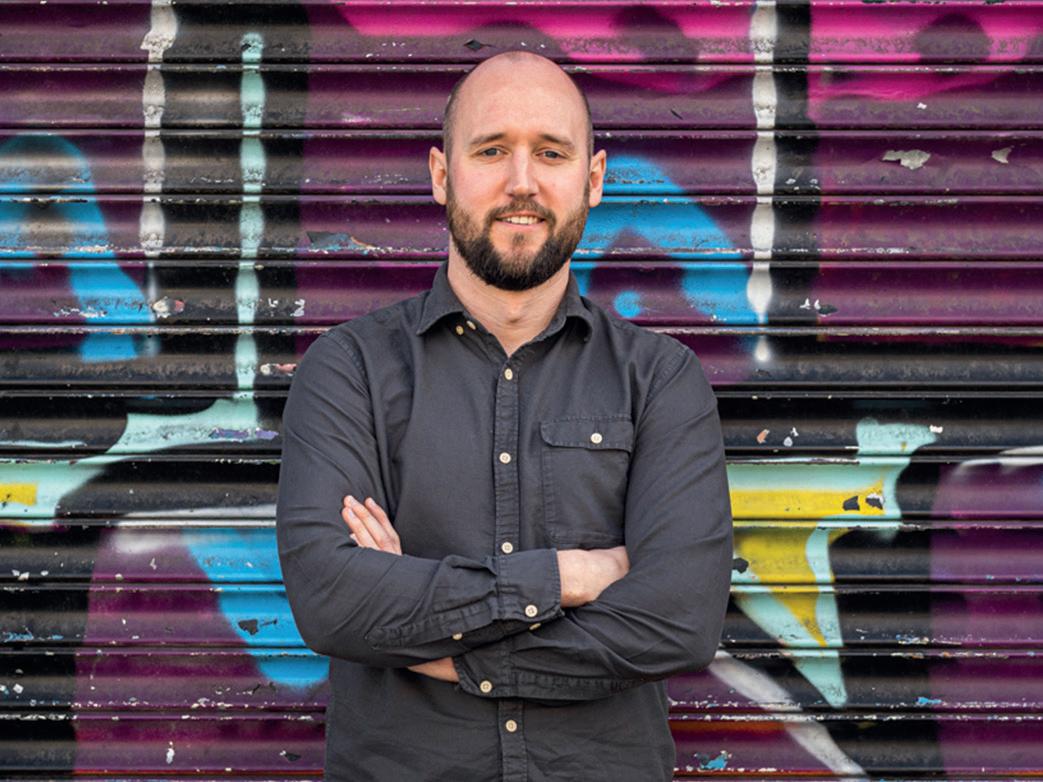

Their deep-tech solution captures live performances as 3D models and then streams into game engines in real-time. Their cloud platform then ensures the performances can seamlessly reach a global audience.
emperia
OLGA DOGADKINA
Emperia develops immersive virtual stores and galleries for the fashion, retail and art sectors, boosting sales, customer engagement and brand perception. Consisting of a team of 3D environment engineers and technical artists along with fashion and art industry veterans and branding experts, the Emperia platform enables luxury brands like Burberry, Dior and Lacoste to express and display their collections in more bespoke, engaging and unique ways in the digital realm.
August/September 202242 TOP 32
exarta
QASIM TABREZ, BILAL KHAN AND RASHID ALI
Exarta is a place where the real and virtual worlds meet. Its users can experience social interaction with gamification, retail commerce, the ability to create unique buildings as NFTs, education facilities and medical applications, all of which are powered by their own proprietary AI/machine-learning engine and blockchain.

Exarta intends to build a truly unique experience that will take their Web3 metaverse to the next level, with their Unreal Engine with high-definition graphics and huge incentives for users and merchants.
decentraland
ARI MEILICH

One of the first companies to come out with a viable proof-ofconcept for the metaverse, Decentraland is a 3D virtual world browser-based platform that houses an official Barbadian embassy and new Samsung mini-city. Developed by Ari Meilich and Esteban Ordano, users can buy virtual plots of land in the decentralised platform as NFTs via the platform’s own cryptocurrency, MANA.
Its metaverse platform went public in 2020 and allows users to create content, interact with one another, and earn money, primarily through NFTs, VR real estate, and other digital assets.
cudos
MATT HAWKINS
Cudos is powering the metaverse, bringing together De-Fi, nonfungible tokens and gaming experiences to help realise the vision of a decentralised Web3. Some of the major criticisms of Web3 include its reliance on centralised entities for compute capability and storage, and the insecurity and unreliability of centralised hubs, but Cudos aims to solve these issues by distributing computing resources that blockchains can reliably leverage to supplement on-chain transactions.
meta MARK ZUCKERBERG
Formerly known as Facebook Inc, the company announced its intentions to develop a metaverse platform based on its existing Oculus products when they rebranded to Meta Platforms in October 2021.
Although they are yet to launch a fully viable, consumer-facing version of the metaverse, CEO Mark Zuckerberg announced that Meta had spent an estimated $10bn on the metaverse in 2021. They also launched the first official app for the metaverse, Horizon Worlds, last year and have also released their Presence Platform, which allows for the designing of naturalised immersive experiences.

Business Leader - Inspire • Inform • Connect 43 METAVERSE COMPANIES
the sandbox
SÉBASTIEN BORGET & ARTHUR MADRID
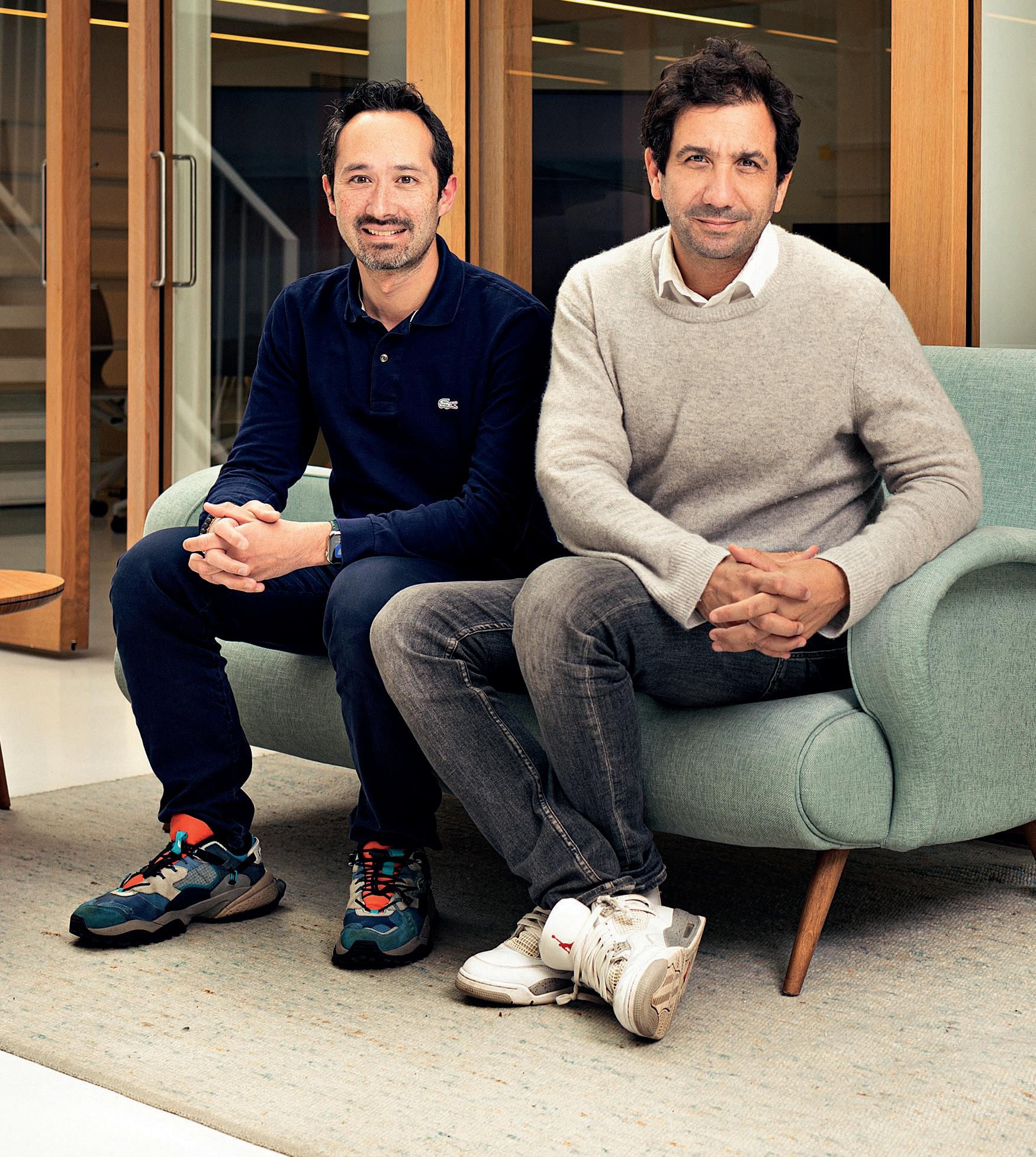
The Sandbox is a decentralised, community-driven gaming ecosystem where creators can share and monetise voxel assets and gaming experiences on the Ethereum blockchain. It’s one of largest independent user-generated content and gaming platforms, with 40 million downloads and over one million monthly active users. The platform also has an impressive list of clients, including Gucci, who have opened a VR store on their metaverse platform, and Ubisoft, who have added elements from gaming franchises like Assassin’s Creed and Prince of Persia into The Sandbox.

eyeora
DANIEL CORAZZI
eyeora is a technology company that is redefining how Virtual Reality content is created, shared, experienced and monetised. Its turnkey studio provides entertainers, athletes, brands, rights holders, influencers, businesses and educators with all the tools they need to create, share and monetise content quickly, easily and cost-efficiently, with no technical skills needed. Thus, making it cheaper and easier to create and share VR content in the metaverse.
blueberry
MISHI MCDUFF
Blueberry empowers self-expression through digital fashion in the metaverse. The digital fashion label has sold more than 20 million digital wearables, amassed a library of more than 10,000 digital SKUs optimised for hundreds of design attributes, and scaled an engaged community of loyal customers. Boasting of an all-female senior leadership team, Blueberry is live on multiple metaverse platforms and is currently expanding to other Web2 and Web3 metaverses.
August/September 202244 TOP 32
afen
DEBORAH OJENGBEDE
AFEN is a cutting-edge NFT project dedicated to the development of user-friendly blockchain solutions in real estate and education, arts & entertainment, and decentralised finance. The AFEN ecosystem is multichain and powered by the $AFEN token. It allows users to mint, buy and sell NFTs, including virtual real estate, and access blockchain courses and resources. In 2022, the company raised $1m to pursue its goal of using blockchain technology to open up aspects of the African economy.
11:11 media
PARIS HILTON
11:11 Media is a global media content company and platform that elevates creators, brands, and IP through the power of storytelling and thought-provoking content.

Founded by Paris Hilton, who Forbes have dubbed ‘Queen of the metaverse’, Hilton’s media company launched Paris World; a virtual island complete with a replica of Hilton’s Beverly Hills mansion, in the online game platform Roblox at the end of 2021. Hilton has also previously designed and sold unique art NFTs, generating more than $1m in sales.

disguise
FERNANDO KÜFER
disguise is the platform to imagine, create and deliver spectacular visual experiences. Its extended reality solution has powered over 400 immersive real-time productions across live entertainment for music artists such as Katy Perry and Billie Eilish, film and episodic TV productions for Netflix and Amazon Prime, corporate presentations for Siemens and Verizon, and live broadcast programmes from Eurosport, MTV and ITV, in more than 40 countries.
With an ever-increasing global partner network and working alongside talented visual designers and technical teams in live events, TV broadcasts, films, concert touring, theatre, fixed installations and corporate and entertainment events, disguise is building the next generation of collaborative tools to help artists and technologists realise their vision.
Business Leader - Inspire • Inform • Connect 45 METAVERSE COMPANIES
© Brendan Forbes
pixelmax
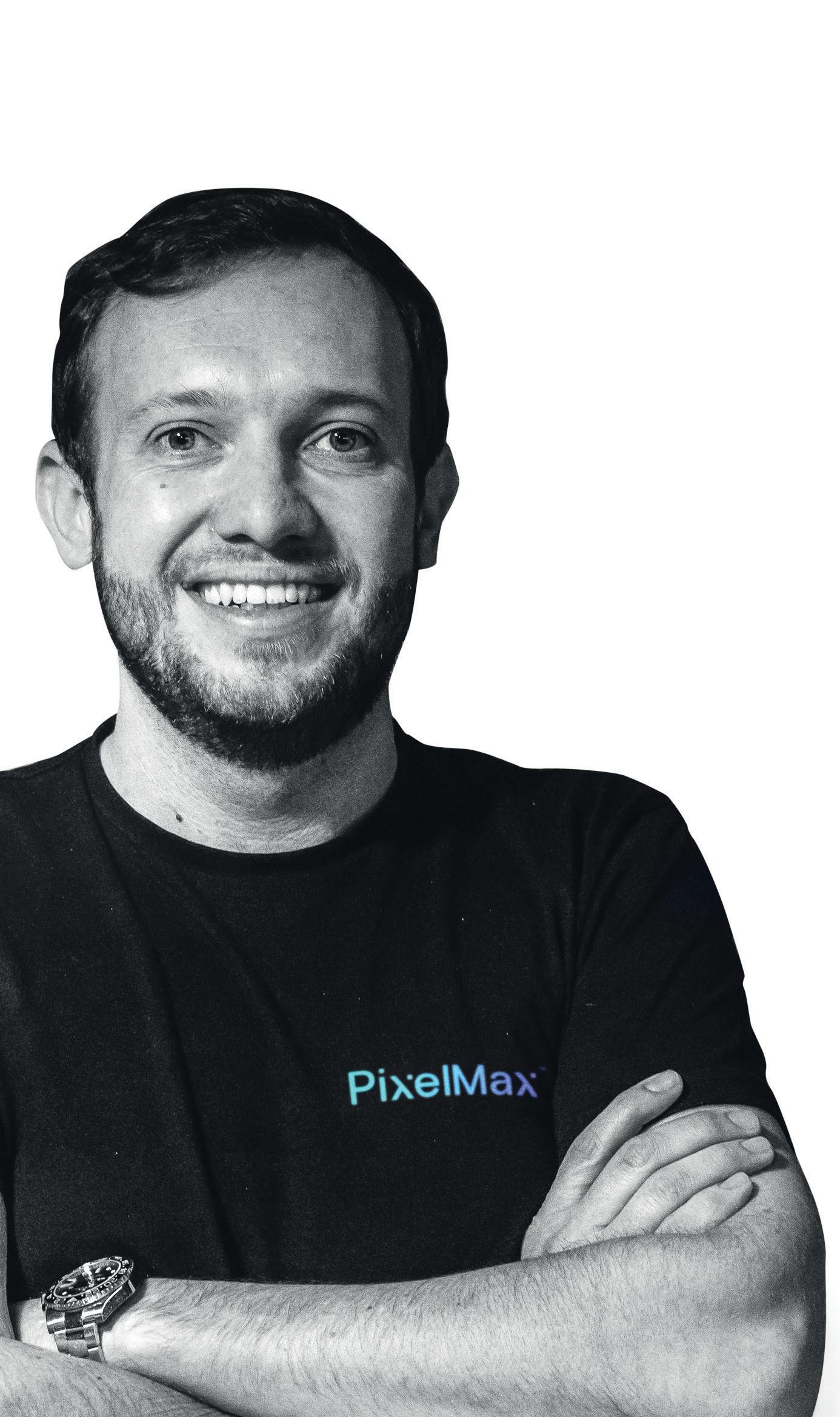
ANDY SANDS & SHAY O’CARROLL
PixelMax creates bespoke 3D virtual workplaces that combine the power of human connection and seamless integration to transform hybrid working. Their workspaces are designed to promote engagement and well-being, and features include personalised and interactive avatars, V-commerce, wellness areas and third-party integrations. PixelMax also provides virtual events, digital twinning and product or process simulation.
hyperlink infosystem
HARNIL OZA
Since being founded in 2011, top mobile app development company Hyperlink Infosystem has developed more than 4,000 apps, designed more than 2,000 websites, and worked on more than 400 projects featuring the latest technologies. In addition to the metaverse, the company works on AI, IoT, Blockchain, AR and VR. Headquartered in Ahmedabad, India, Hyperlink Infosystem has more than 700 highly skilled developers working on its projects, and has offices in the USA, UK, Canada, France, UAE, and Australia.
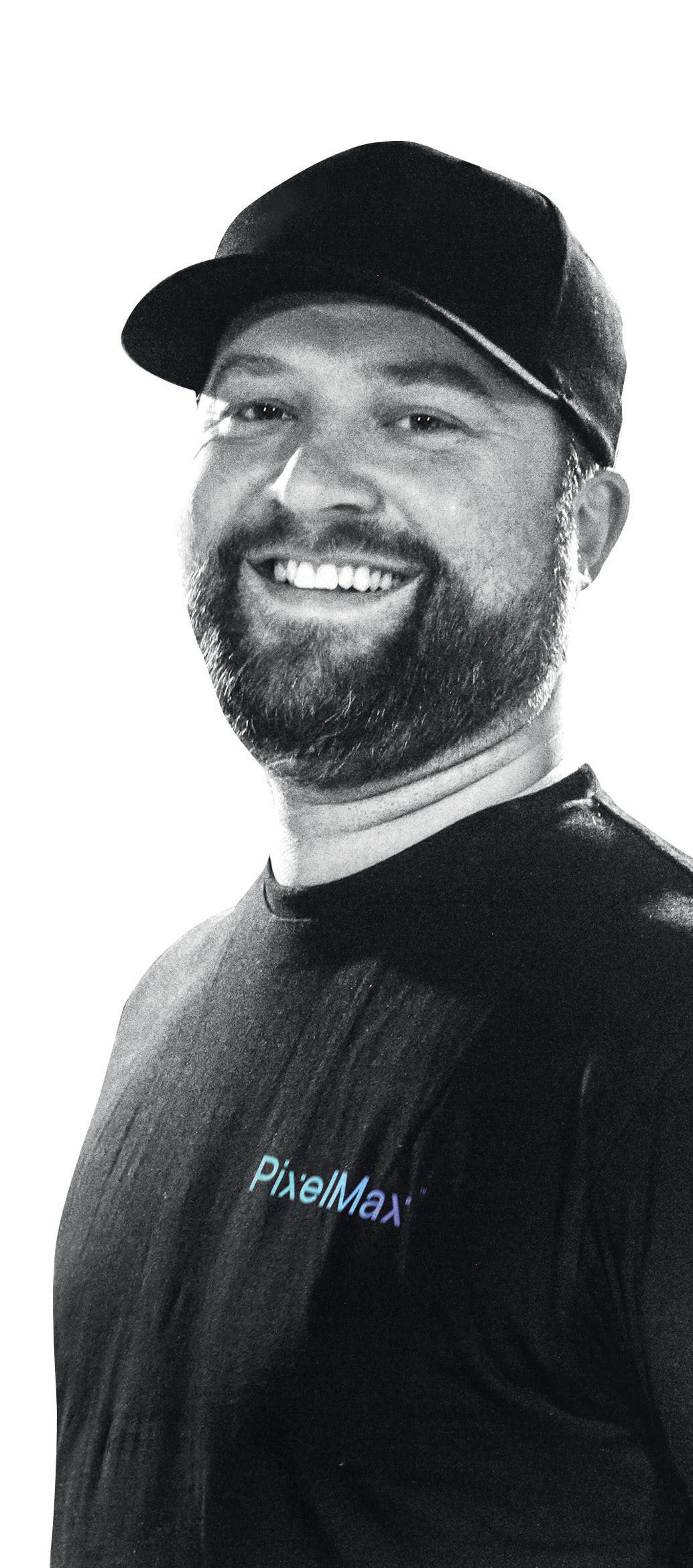
August/September 202246 TOP 32
roblox
DAVID BASZUCKI
Roblox is an online game platform and game creation system that allows users to program games and play games created by other users. The platform has evolved to offer its users virtual experiences, which even include a metaverse game that was launched in partnership with the NFL ahead of the 2022 Super Bowl. Free-to-use and with millions of users located around the world, Roblox experienced exponential growth during the pandemic. Its wide range of VR experiences cover a range of genres, including anime, horror, roleplay, action, and real-life simulations.
ceek
MARY SPIO

CEEK is an award-winning developer of premium social virtual and augmented reality experiences. The platform directly connects music artists and other premium content creators to their fans through VR concerts, NFTs and unique experiences in virtual worlds. Users of CEEK’s immersive virtual platform can join friends, watch 3D movies, get close to their favourite bands, and enjoy live concerts, festivals, and more.
somnium space
ARTUR SYCHOV
Somnium Space is an open, social and persistent virtual reality platform powered by blockchain. Featuring its own economy and currency, Somnium Space offers a marketplace, games and social experiences, and allows for virtual ownership of land, goods, avatars and items. Fully accessible from any device, this unlimited scalable world boasts of partnerships with Admix, Sony, Polygon, OpenSea, and the Blockchain Gaming Alliance to help create a truly decentralised metaverse platform.
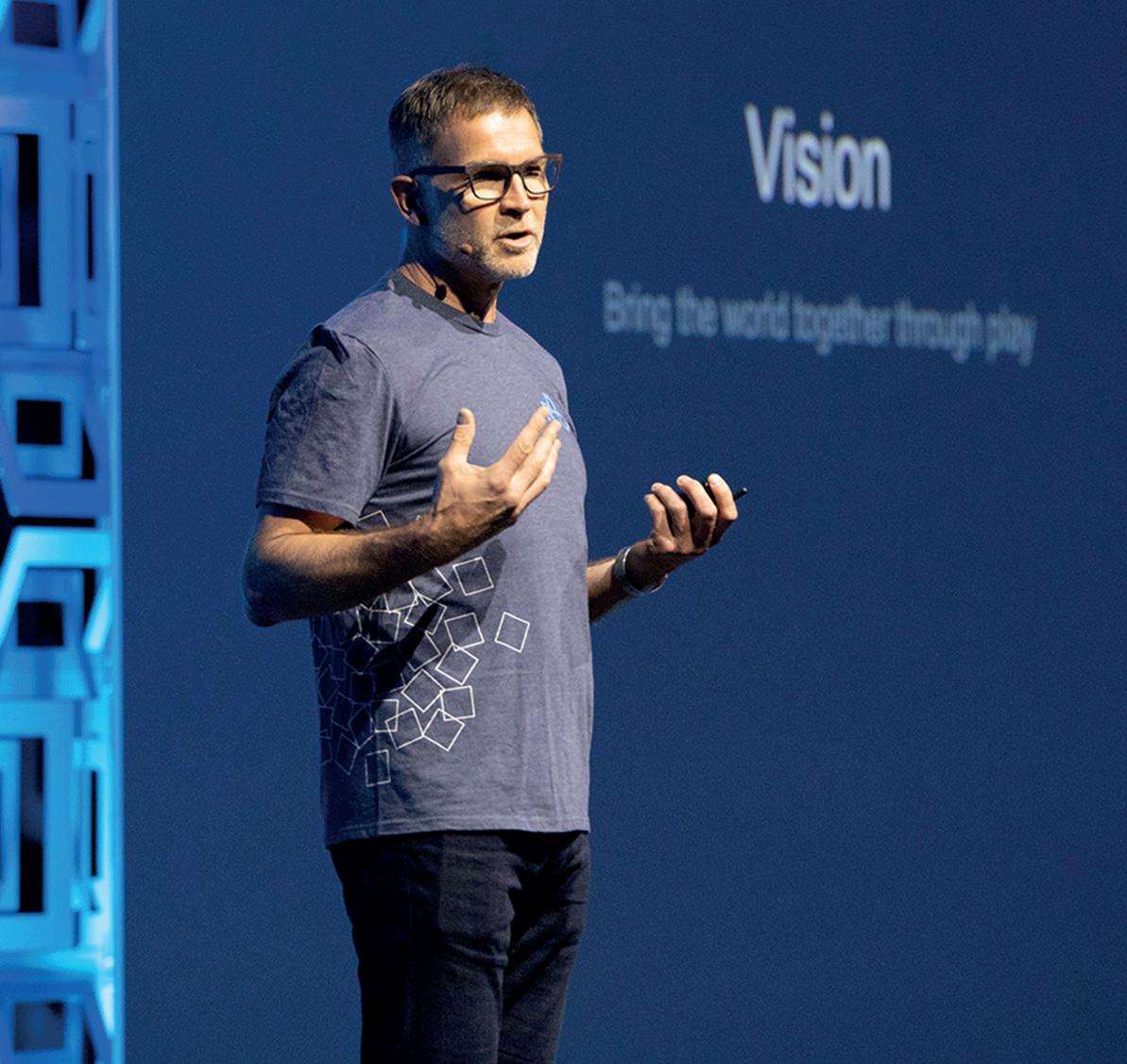
Business Leader - Inspire • Inform • Connect 47 METAVERSE COMPANIES
autodesk
ANDREW ANAGNOST

US software giant Autodesk has technology spanning architecture, engineering, construction, product design, manufacturing, media, and entertainment, empowering innovators everywhere to solve challenges big and small. The company has over 100 million people using its extensive range of software, which includes visual effects, virtual reality and generative design software that developers and creatives can use to create virtual worlds and assets, including NFTs.
match group BERNARD KIM

The parent company of Tinder and Match.com, the Match Group announced at the beginning of 2022 that they were planning to take dating into the virtual space. The company sees the metaverse as an opportunity to fulfil its mission of helping people make “meaningful connections”, and they plan to create virtual rooms where people with shared interests can strike up a conversation with other avatars, check out the full profiles of other daters and send messages to them.
com laude
GLENN HAYWARD
Although Com Laude is primarily famous for corporate domain name management, they are also a key advisor in acquiring blockchain domains. Blockchain domains are essentially the way that metaverse and Web3 content is located on the internet, and they operate separately to how regular web domains do.
Securing blockchain domains is important for brands looking to get involved in the metaverse and Web3, and Com Laude is trusted by many legal and business professionals to keep their brands and intellectual property safe in the blockchain domain name system.

August/September 202248 TOP 32
moonpay
IVAN SOTO-WRIGHT & VICTOR FARAMOND
MoonPay is a financial technology company that builds payments infrastructure for crypto. The platform is active in more than 160 countries and trusted by more than 300 leading wallets, websites, and applications to accept payments and defeat fraud.

Recently, MoonPay introduced HyperMint, a robust and flexible interface that allows users to mint, manage, and distribute NFTs at scale. The unified Web3 infrastructure effectively removes the barriers to entry for anyone who wants to tokenise their IP.
daaci
RACHEL LYSKE
Informed by the core principles of musical composition, DAACI is a fully formed AI system that composes, arranges, orchestrates and produces the highest-quality original music. DAACI is set to power music creativity for the next generation of composers and content creators, forming a central part of game production, the metaverse and playto-earn business models by providing the next step in the evolution of music creation.
sportsicon
CHRIS WORSEY
SportsIcon is the company behind The Sports Metaverse, the world’s first virtual world specifically focused on sports. Built on the Flow and Ethereum blockchains, the platform aims to bring together the biggest sports stars, brands and clubs in one space, and enables users to watch live sports, acquire NFTs, play mini-games and take part in various fan experiences.
UFC icon Amanda Nunes has already signed a partnership with the platform to offer personal training in her metaverse gym, and former Premier League footballer Shaun Wright-Phillips has purchased land.
spinview
LINDA WADE

Enterprise metaverse platform Spinview creates accurate volumetric digital twins of buildings and infrastructure to deliver insights on the health and structure of any building or space. Combining IoT, Building Information Modelling, scanning and advance visualisation, they process this data into one simple to use visual model of the asset, whilst their AI translates and automates it into useable information for all the employees in a business.
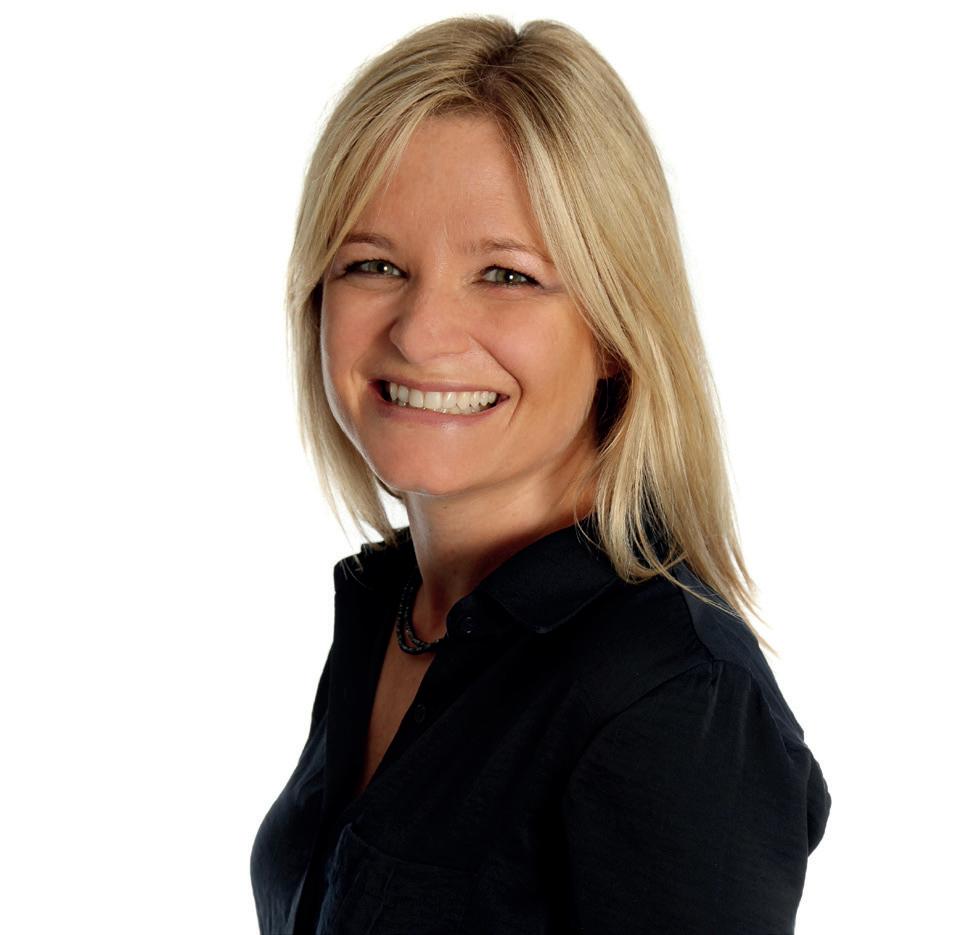
Business Leader - Inspire • Inform • Connect 49 METAVERSE COMPANIES
oneplan
PAUL FOSTER
OnePlan is the event site and venue planning platform responsible for the creation of Venue Twin, the platform that creates hyper-realistic digital twins of major venues that can be used for operational planning of those actual stadiums and to unlock new commercial opportunities. The Venue Twin becomes the officially owned metaverse asset and can be licensed for use in any metaverse environment. Venue Twin has already announced partnerships with the Paris 2024 Olympic and Paralympic Games and professional basketball team the LA Clippers.
sociallybuzz
ANDRE KAY
Founded in 2009, Sociallybuzz is the company behind MetAiBlock, the first marketing agency to use the metaverse, AI, NFTs and blockchain for the franchise industry. Launched in 2022, MetAiBlock helps franchises build, market, monetise and connect their brand to audiences across the metaverse, enabling them to have a stronger presence in the global market, and give their customers a more immersive experience with the brands they love.
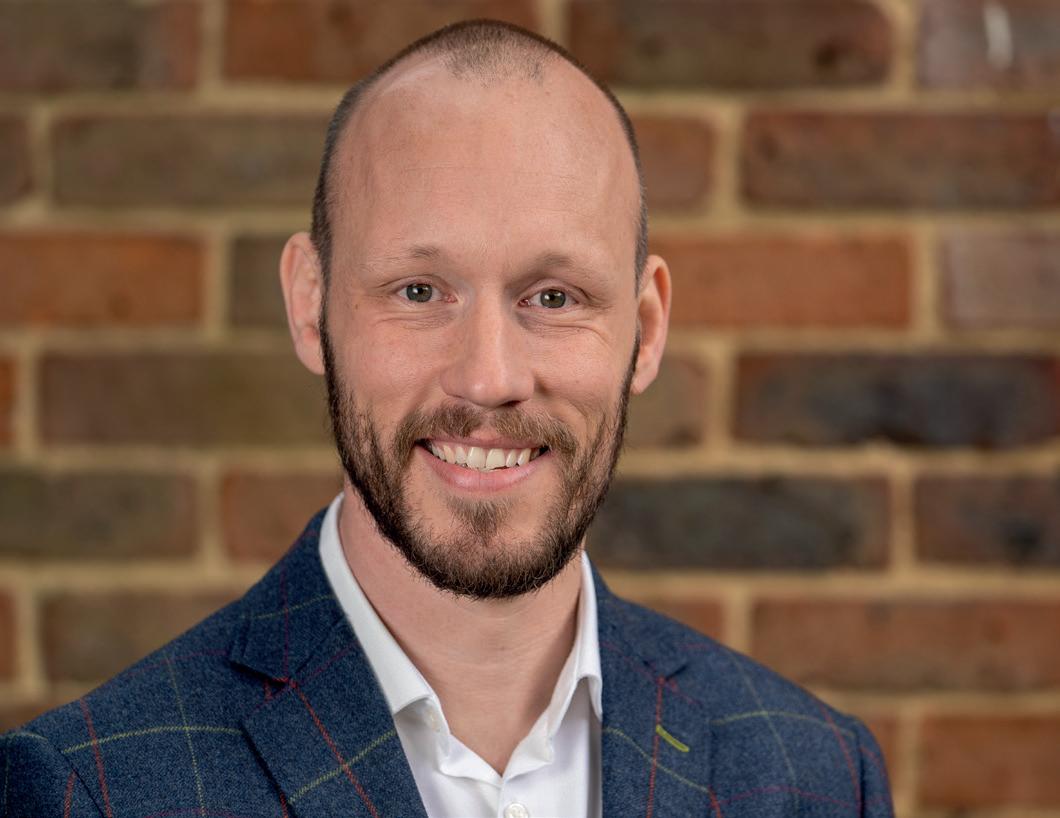
amazon
ANDY JASSY
Another massive company moving into the virtual world, Amazon began incorporating metaverse technology into its digital marketplace after the creation of its Amazon AR View tool. Essentially, it facilitates the process of viewing products in your home before buying them to get a better idea of how something will match in your pre-existing space. Every product supported by Amazon AR View is sized and rendered to scale, allowing shoppers to know exactly how large an item is.
bloktopia
ROSS TAVAKOLI
Bloktopia is a virtual skyscraper that consists of 21 levels to pay recognition to the 21 million Bitcoin. Users of its metaverse platform can not only own cryptocurrency but can also access crypto information and content, whilst Bloktopians can earn money through VR advertising, gaming, and real estate ownership. In addition to having its own cryptocurrency, Blok, there is also a networking space called Blokpad, which is a launchpad for new metaverse users and investors.
stemuli
TAYLOR SHEAD
Founded in June 2016, STEMuli is an educational metaverse that connects companies to their future workforce and students from diverse and economically challenged households to a digital world of opportunities. STEMuli has created a 3D game-based platform that connects high school students and corporations via virtual mentorships, internships, scholarships and job opportunities. They originally launched the platform in schools around Dallas, Texas, but after a recent $3.25m funding round, they plan to expand to other major US cities.
microsoft
SATYA NADELLA
Microsoft, arguably the world’s most iconic tech giant, has made sizable moves into the metaverse with the launch of Microsoft Mesh, the mixed-reality space that allows people to engage with one another and collaborate on persistent 3D content. The US tech giant has also introduced an augmented reality headset and platform, known as the HoloLens, which has helped companies operating in a wide range of sectors, from manufacturing, engineering and construction to healthcare and education, to boost their productivity with the power of mixed-reality technology.

August/September 202250 TOP 32 METAVERSE COMPANIES
MORE THAN ‘ ‘ POSITIVE, I THINK WE WOULD CLASS THE SERVICE FROM AG TO BE ‘COMPLETELY’ POSITIVE.
We could use this advertising space to tell you what amazing accountants we think we are.
That we are friendly, fair, forward-thinking, transparent…trustworthy… (you get the idea).
But with client reviews like these, we’re ‘completely positive’ that we don’t need to.
albertgoodman.co.uk
WE ARE WITH YOU WHEREVER YOU’RE GOING.
what is driving fastgrowth businesses?
It’s no secret that UK business has been negatively impacted in recent years, with Brexit, the pandemic and the war in Ukraine all causing disruptions to the economy. Firms are now preparing to face an imminent recession, whilst tackling a skills shortage and changes in consumer behaviour. So, how are businesses continuing to grow in this climate?
To find out more about the obstacles businesses face and how they are overcoming them, we partnered with Albert Goodman to host a debate at Ascot Group HQ, near Bristol.
IF ANY, WHAT HAS BEEN THE MAIN LIMITATION OF BUSINESS GROWTH?
Chris Walford is a Partner at Albert Goodman and starts the debate with an overview of the challenges currently faced by UK businesses.
He said: “It’s been a strange couple of years. Cashflow hasn’t necessarily been the challenge. The challenge has been staff establishing skills and good teams. When factories went into lockdown over the pandemic, disruptions to supply chains were also a major challenge, and I think this will continue to be a significant struggle going forward as costs go up, because supplies continue to be in short demand.
I think businesses are growing really well, but the war in Ukraine, the cost-of-living crisis, and staffing and supply shortages are all making businesses consider how to navigate through this uncertain time.”
Nathan Guest, who is a Partner at VWV, agrees that socio-economic factors will impact business growth, but an inability to retain talent could be a bigger issue.
He said: “I think that access to funding is an issue and will always be an issue. Certain areas of the market have been absolutely fine. For example, with earlystage tech and life science ventures, the venture capital funds investing in that market have been eye-watering. Investment directors are incentivised to deploy money – so you’ve got really good businesses in fast-growing markets and there is money to invest in them. In that part of the market, there isn’t too much of a problem but companies need to have access to people and be able to retain staff.
“An issue is that all of these great businesses are going out to recruit lots of people and salaries are going up. That’s a problem for companies that have raised £2m, not £20m.”
Andrew Scott, the Founder of the Ascot Group, said: “We are definitely seeing
“EMPLOYEE RETENTION IS A MASSIVE ONE. WE RECENTLY LOST WEB DEVELOPERS THAT JOINED US IN THE LAST YEAR BECAUSE THERE ARE BIGGER COMPANIES THAT CAN GIVE THEM A 50% INCREASE IN THEIR SALARY – AND WE PAY JUST ABOVE MARKET RATE.”
Andrew Scott
resolutions to issues that came up over the pandemic happening now. Employee retention is a massive one. We recently lost web developers that joined us in the last year because there are bigger companies that can give them a 50% increase in their salary – and we pay just above market rate.
“At the Ascot Group, we have multiple companies. So, a major challenge has been trying to scale the business when you’ve got multiple cultures and multiple operations within one group. Over the pandemic this was evident because as we were working from home, we ended up developing three or four different cultures. So, one of our challenges has been scaling three or four different companies.”
Chris Ormrod, Managing Director at CakeSmiths highlighted the importance of thinking about an exit when approaching growth.
He said: “I believe you need to ‘begin with an end in mind’. You don’t go out for a walk with friends and family without knowing where you’re going. I think ‘purpose’ is the most important thing. Whether you’re fast growth, medium growth or sluggish, you need to be very clear about the purpose of your organisation. It’s important to create a culture where people don’t want to leave and then be transparent with them. I was always very clear to my staff that we will sell the business at some point, but I’ll sell it to the best people I can find.”
HOW HAS THE PANDEMIC CHANGED YOUR PERSPECTIVE ON GROWTH?
Next on the agenda was the subject of the pandemic and how it has impacted the way businesses look at growth.
August/September 202252 DEBATE
WHEREVER YOU’RE GROWING.
Co-founder and Director at CareScribe, Richard Purcell, said his business was one of the few that benefitted from the pandemic.
He explained: “In short, it’s been quite stressful. But we have grown from three to 30 over the last year. Why have we been able to do that? I think the pandemic really helped us because there was some legislation around assistive tech that came in at the time and supported us. I think everyone became much more aware of SciTech because there was a need for it, everyone was working from home, and everyone was more used to adapting. It’s generally just a question of, can you scale quickly enough, and can you get there before your competitors?”
Alan Furley, the Co-founder and CEO at ISL Talent added to the conversation about his experience of navigating the pandemic.
He said: “We’re 50 years old as a business this year, so we have been through a lot of ups and downs. When you are operating in a really challenging environment, you reflect on what’s important to you. But we focus much more on the consequences of growth rather than the objectives themselves.
We used to measure the number of heads we had as our measure of success. We still focus on growth now but we focus much more on customer retention, employee retention and employee engagement. Even though these were things we were measuring before, we weren’t really putting them front and centre”.
Jack Boyd, New Partnership Manager at Cardstream also attended the event and shared his perspective on how the pandemic impacted payments.
He explained: “The pandemic did help in terms of a shift to e-commerce and digital payments, so that certainly helped. We are based in the South West of England and there are a lot of talented candidates here, but there are definitely less of them. So, we’re trying to establish a hub in Manchester where there are less tech companies and customers. For us to grow further, we need to bring in tier-one customers and compete with companies that have a turnover of hundreds of millions
of pounds every year and can spend £1020m on marketing campaigns, which we can’t. Our main challenge is figuring out how to meet people in those areas at this point.”
Ben Hoskin, COO at Regency Purchasing Group, explained how the business has suffered over recent years.
He said: “Two-to-three thirds of our turnover comes from the leisure sector, and after the pandemic, we saw this drop by 95%.
Our supply chain and operations stopped because of the pandemic. We were selling
PPE but didn’t want to be a pandemicspecific business, so we stuck to our guns. We beat our growth from 2019 in 2021, which was great considering we were closed for half the year. One of the challenges I see all the time is trying to keep up with yourself – there’s no point bringing in new customers if you don’t have the resources to look after them.”
WILL THE SKILLS GAP ISSUE BE RESOLVED IN THE NEXT SIX MONTHS?
A national skills gap has caused an employee-driven working economy, so will this change in the year to come?
Andrew Scott said: “Recruitment is a major issue for us. Instead of just advertising for roles, we run regular recruitment events to sell the dream. We want to expand to Manchester and London, but there are a few red flags. Florida recently announced 700 job losses in tech.
Business Leader - Inspire • Inform • Connect 53 ACHIEVING HIGH-GROWTH
Cont.
“ I’m not necessarily saying the bubble has burst, but there is quite significant caution with inflation, the cost-of-living and a potential recession. That being said, we have doubled in size every two years and even through the pandemic. We didn’t put our heads in the sand and scale back.”
Clodagh Murphy, Director at Cathedral Appointments, pointed out that there could be a long-term impact of redundancies.
She said: “I recently heard about mass tech redundancies in San Francisco, which is an indication of what the sector might look like in the future. I don’t think we will see a resolution in the next six months, I think there are long-term factors to this. With remote working, people have access to far greater opportunities than they ever had pre-pandemic – I think there will be a ripple effect from this with complications around embedding cultures, productivity and employees not understanding the vision and direction of the company.”
Glyn Blaize, COO at Amdaris, said the war in Ukraine might encourage an unexpected shift.
He explained: “In the UK, everything has contracted. You wouldn’t expect someone
in the middle of Ukraine to be working on a contract for someone in the UK – but now that is completely normal. We’re on this really interesting trajectory. Covid has changed the picture and the labour market has become a lot freer.
“Businesses are seeing hiring people from Ukraine as a part of their CSR and ESG strategies. They are thinking about how they can support Ukraine without giving money and a part of that is hiring talent there – so out of this horrible rubble of the war is something quite beautiful and strange.”
HOW CAN YOU RETAIN TALENT?
With a skills shortage impacting many firms across the country, we asked: how can you retain talent?
Marina Traversari, COO at Spherics, highlighted the importance of culture in retaining talent.
She said: “Culture is very important and so is bringing in the right people. We haven’t found it very difficult to attract talent. I think this is because we are a B Corp and we’re a people-led organisation.
In a book called Wilful Blindness, I learnt that you increase your revenue by 80% by empowering the team that you have. They’re your company – you can’t have one person at the top making all the decisions. I think if you
can differentiate yourself in the market, you will be able to attract talent.”
Furley pointed out the importance of autonomy, adding, “When I think about all the candidates I have spoken to in the last year, particularly in the last 18 months, they have really spoken about things like autonomy, mastery and purpose. It’s very important to give employees a sense of autonomy as they will feel like they’re making a tangible impact in the company.”
HOW IMPORTANT IS CULTIVATING A ‘LONG-TERM VISION’?
Lee Hambleton, Finance Manager at Griffith Foods spoke of the importance of sharing a good business story.
He commented: “We have a really great story. We are a family-owned business and we have been quite risk-averse, but that has meant we have been able to grow sustainably, meaning we have over 1,000 employees with a £1bn turnover. That’s the sort of thing we need to start selling to people because it connects people to an organisation. If I was offered more money elsewhere, I wouldn’t go because I’m attached to this story, and I really feel like I can make a difference here.”
Furley said: “If I sit down with a founder or CEO and they tell me an amazing story, sometimes that’s not obvious on their website, for example. Often, especially with start-ups, they want to get their name out there and they might be doing something really meaningful and impactful. But if we went to look at their website, they probably don’t even have their roles on there, let alone photos of their clients.”
Hoskin explained the importance of having a well-received focus amongst a team: “The point about culture is absolutely key. I think a really good way to create culture is making sure everyone knows what the focus is. For example, ‘always put the customer first’. So, if everyone has a decision to make that day, if it aligns with the focus, then you know you are doing the right thing. It’s about having a long-term vision because you might not always make the quickest buck, but you’ll have business for a long time.”
August/September 202254
WE
ARE WITH YOU WHEREVER YOU’RE GOING.
DEBATE ACHIEVING HIGH-GROWTH
Why some CEOs go further and higher
As a business leader, you know that the hardest climb isn’t Kilimanjaro, Denali or Everest. It ’s the CEO ’s leadership journey, and it ’s fraught with all kinds of challenges and opportunities, setbacks and advances. The good news is you don’t have to go it alone. You can travel with an experienced guide who knows the lay of the land and an elite team of peers who’ve got your back.
You can equip yourself with world-class resources to navigate changing environments and uncertain conditions. You can take an approach forged over 60 years and travelled by 100,000+ CEOs of small and medium sized businesses around the world.
With that kind of support, how high could you ascend?
If you’re ready for the climb of a lifetime, the path starts here. Learn more at vistage.co.uk

CEO Climbers Wanted


Join a team of peak performers and take your business and your leadership to a whole new level. Start with your FREE guide: Journey to the Summit The CEO’s 7 Laws of Leadership Visit vistage.co.uk/what-is-the-climb/
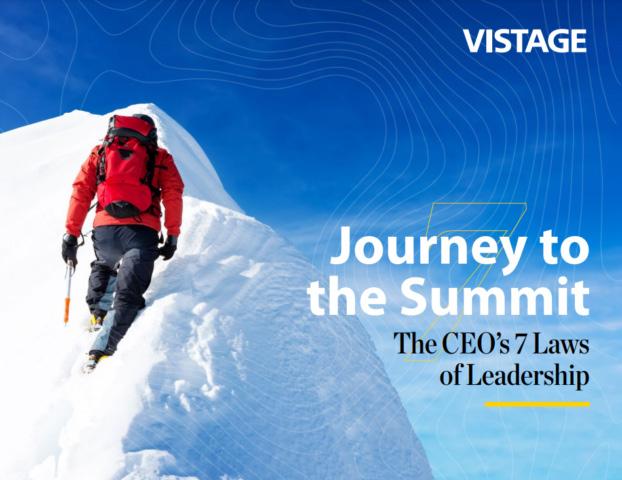
ABOUT THE TOBACCO DOCK



Since its relaunch in 2012, the Tobacco Dock has developed a reputation as one of London’s leading events venues. A combination of adaptable and stylish spaces, award-winning catering and top end audio visual services, means they are able to fulfil the most exacting of briefs and demanding levels of production.
Situated at the heart of London’s thriving enterprise zone, just one stop from Bank and a stone’s throw from both London’s Tech City around Shoreditch and Canary Wharf. Benefitting from two tube stations nearby, it couldn’t be easier to get to.
56 Tobacco Quay, Wapping Ln, London E1W 2SF


TOBACCO DOCK, LONDON NOVEMBER 3, 2022 You can now book your tickets to attend the Scale-Up Awards by Business Leader. The Awards will attract over 600 companies and the UK’s leading entrepreneurs and business leaders, providing you with an opportunity to win new business. You will also be treated to entertainment, a world-class host, and a four-course meal. 2022 Sponsors BOOK YOUR TICKETS TODAY! VISIT WWW.SCALEUP-AWARDS.CO.UK/TICKETS THE SCALE-UP AWARDS ARE BROUGHT TO YOU BY BUSINESS LEADER Official Partners
attracting and retaining talent is not a one-way transaction


We are currently living in the era of the Great Resignation with record vacancies and skills shortages. An era where many UK businesses are engaging in what has been dubbed the ‘war for talent’. Not only are businesses struggling to keep hold of their employees but they’re also facing challenges attracting people with the right skills.
So, following the pandemic and the resulting shift to established working practices, we partnered with chartered accountants Thomas Westcott to host a roundtable event to find out how businesses are retaining and attracting the talent and skills they require.
Peter Lomax, Partner and Head of Audit at Thomas Westcott, began the conversation by outlining the main
challenges that their clients are currently facing.
He said: “We are seeing businesses of all sizes struggle to get the right people through the door and to keep their existing staff. Not only are they losing good people, but when they have a new role, and an opportunity to expand, they are really struggling to fill those vacancies.
“There are areas where there are particular shortages, and, quite often, these are core to the business. A client of ours provides in-home care to people who cannot manage alone – they cannot get the staff that they need, which, as much as any other sector,
directly filters through to their ability to grow the business.
“If you can’t get staff to visit people at home, you don’t get the cash in the door. But across almost all sectors, our clients are struggling to find people to fill really good vacancies at what they believe are attractive rates of pay and good packages.”
Clodagh Murphy, Director at Cathedral Appointments, also highlighted the current recruitment challenges but said there is hope for companies who act quickly.
She said: “The recruitment market is incredibly tight; it’s a candidate market. Whatever kind of role it is, we will often send only one CV across to a client because we’ve only got one to send. There might have been three or four applications, but they’re not the quality that you want them to be.
“We’re seeing that when clients give a good brief, engage with us, and respond swiftly to CVs, we will make placements reasonably fast, and there are candidates there. But when you’ve got all these competing demands, tightness of resources and people are incredibly busy, giving the time to recruit might not happen.
FEATURE
“So, if a CV sits there for a week, candidates will have two or three other opportunities out there at any point in time. So, it’s a very tight market.”

ARE EXPECTATIONS WHEN IT COMES TO REMOTE WORK CHANGING? HOW IS THIS AFFECTING RECRUITMENT?
Since the pandemic, there has been a growing expectation for employers to offer remote work in some format. However, Murphy went on to say that expectations around this could be changing postpandemic.
She said: “Businesses from London are recruiting and paying London salaries, but there is a growing expectation that the employee needs to be in London one day a week. That possibly wasn’t there in the early stages of the pandemic, but I think employers are starting to realise that to drive culture in an organization, you need people together regularly.”
Suzie Drew, the Head of the Business Development Team at Strode College, also spoke of the changing expectations of remote work and the difficulties this is causing for educators when preparing students for the world of work.
She said: “There are lots of businesses that have gone back into remote working and those who want to go back to being front-facing. This means we’re having to change our delivery models to match what employers want. So, we need to understand how businesses want to work regarding young people. But every business is different, so it’s important for us to have more flexibility in our delivery models.”
Neville Coles, who is the former CEO of the Priory Learning Trust and currently working with the Coreus Group, was critical of schools and employers for failing to recognise what young people want from future roles.
He said: “I think schools and employers do badly and it’s a bit piecemeal from both sides. Schools will tell you it’s about resourcing, but there’s plenty of cash in schools to do this if you believe in it properly. In terms of what young people want, there’s plenty of cash in the industry to take it seriously. But post-16 and pre16, they want a little bit of difference in a role – that’s attractive. So, it’s important to ask young people what they want.”
According to David Collacott, the CTPO at Cardstream, however, the rise of remote work has also meant that his company is no longer just competing with local businesses to secure talent.

He said: “Salaries are definitely going up and businesses need to be a lot quicker when they get a candidate in to review. One thing we’re struggling with is bringing senior talent in, and I think that is partly because potential employees can now live in Somerset and effectively work for Google or Facebook, or someone like that. So, we’re not just competing against Taunton businesses; we’re competing against everybody. That does mean we can widen our net to get people from further afield, but we’re still competing on salary, time, etc.”
HOW HAVE YOU MANAGED TO SUCCESSFULLY RECRUIT NEW STAFF?
Despite the numerous recruitment difficulties and changing expectations, various methods have proved successful when attempting to acquire new members of staff.
According to Victoria Tremear, Senior HR Adviser at Cooper Associates Group, culture has proved integral to their recruitment success.
amazing culture, and this means people from the USA want to join and lots were asking to come back throughout Covid. So, that’s probably the most successful recruitment we have.”
However, Simon Irvin, the Head of Human Resources at Thomas Westcott, said they’ve been altering outdated recruitment methods.
“One of the things we’ve changed recently is the standard job advert or person specification. So, a few months ago, we used to have criteria where candidates have got to have X at GCSE, a B at A-level, etc. But we’ve said do we actually look at that anymore? We don’t. We look at what they’ve done, where they live, and who they know, so we were cutting people out.”
This change also proved successful.
“We’ve had some great successes recently with trainees from non-traditional backgrounds, such as ex-school teachers, and ex-pub landlords,” continued Simon.
“It’s completely broken the mould, they’re doing a great job, and they’ve got a lot of experience. So, probably the main thing we’ve learned is just thinking differently.”
Emma Cox, Head of Field Sales at Thatchers Cider, said they have taken a slightly different approach to recruitment. She said: “Our early careers and apprenticeships have been one of our biggest success stories, so it’s about looking at how we can fill those skill gaps for the future.
“But as an apprenticeship employer, that doesn’t just happen. You must be really engaged with your local community and local schools. And for us, it’s about looking at that candidate experience and thinking, if I am a candidate in this market, what would I be looking for, where are the places I would go, and how would I choose to work for that company and why?
Simon Irvin
She said: “We’re finding that our most effective way is our staff. So, we get a lot of referrals because we’ve got this
Business Leader - Inspire • Inform • Connect 59 TALENT & SKILLS
Cont.
“WE’VE HAD SOME GREAT SUCCESSES RECENTLY WITH TRAINEES FROM NONTRADITIONAL BACKGROUNDS, SUCH AS EX-SCHOOL TEACHERS, AND EX-PUB LANDLORDS”
“Once you understand that, you can start looking at different channels and ways to work and think about how to compete against all the other employers that are looking for talent and give yourself that edge, so people want to come work for you over someone else.”
However, Joe Nicholls, Partner in the Employment Team at Stephens Scown, said this approach will not be so successful in the hospitality industry, which he believes has been devastated by Brexit and, to a lesser extent, the pandemic.
He said: “I think it’s easy to say that you need to shift and think differently to try and attract people, but if your pool is not there, you still need a certain type of worker and you can’t rely on EU nationals, which was a huge part of that sector, particularly in the South West.
“I spoke to a client of ours who runs a hotel business in Cornwall, and they said, ‘we’ve accepted the fact we can’t recruit to fill certain roles. We normally double our staff in the summer, but we just can’t do it for several reasons, so we need to change our working business model to operate with this skeleton staff’.”

WHAT ABOUT RETAINING EXISTING STAFF?
The debate then went on to discuss how companies are retaining their existing staff, and for Andrew Clancy, Managing Director at the Coreus Group, culture and flexibility have been important when doing this.
He said: “We don’t have any rules, but predominantly, people want to be in the office. We talk a lot about culture, and I think if you’ve got people who want to come into the office to learn from others, it’s important to allow for that. I also think it’s crucial for people to have balance and then be able to choose what exactly that is.”
Beth Pope, the Founder of Firehaus, offered some insight into how to get across that culture and vision when recruiting.
She said: “The answer, at least in part, is brand. If you have a strong and distinctive brand with a good sense of its vision, mission and purpose, and you build that brand and express it externally, not just at the point of recruitment but consistently over time.
“It’s not just about the dressing on the outside - this must be reflected authentically and in your brand behaviour. So, everything that you do within the community or your relationships with employees, suppliers, and partners - the way that brand ties all those strands together - our clients are increasingly seeing the importance of that.”
“WE NORMALLY DOUBLE OUR STAFF IN THE SUMMER, BUT WE JUST CAN’T DO IT FOR SEVERAL REASONS, SO WE NEED TO CHANGE OUR WORKING BUSINESS MODEL TO OPERATE WITH THIS SKELETON STAFF’.”
Joe Nicholls
According to Peter Lomax, EMI schemes, where employees own shares and take a stake in the business, are also increasing. He said that if that business is one with a growth story and is planning an exit, they work very well.
“When the business exits, there’s an opportunity to effectively sell those shares on and get cash for them, or buy shares and get cash for them on the same day,” said Lomax. “It’s also very tax-efficient. We do see a lot of employers with that strategy
in mind, and it does work well for them. It helps retain, and those staff can see the vision of the future.”
DEALING WITH RISING LIVING COSTS

During the debate, many in attendance said that candidates wanting higher salaries was something they had experienced. With the cost of living rising so high in recent months, this should not come as too much of a surprise.
However, it does highlight that current and prospective employees’ wants and desires are likely to change in accordance with external factors, and David Price, Head of Client Services & Recruitment at Wolferstans, believes it’s important for employers to be attuned to this.
He said: “I think that at the very heart of this issue is a recognition that the employer-employee relationship is exactly that…a relationship. You wouldn’t engage in any other relationship in your life with a person that you didn’t share things with, or understand what their motives were. So, if you look at the employer-employee relationship in this way, candidates want to understand where you are going, how do I fit into that and what’s in it for me. That means employers must flex to say, ‘I can help with what’s in it for you’.”
“Due to external pressures, what might be important for some candidates now is the number on the payslip at the end of the month, so employers will need to recognise that part of that relationship is meeting that need. So, flexibility with benefits packages is important. The absolute crux of the issue is this isn’t a one-way transaction. We’re entering a relationship and all of those principles apply.”
FEATURE TALENT & SKILLS






www.thomaswestcott.co.uk For more information contact us Tel: 01392 288555 exeter@thomaswestcott.co.uk By Your Side. On Your Side. As you navigate the obstacles and opportunities that lie ahead, having a trusted business advisor on your side is more important than ever.
a conversation with professor steve peters: how to train your chimp brain for success


Professor Steve Peters is the author of the acclaimed self-help book The Chimp Paradox. With over 20 years of experience in psychiatry, he has shared his knowledge of the nature of the mind and helped elite politicians and business leaders become healthier, happier, and more successful. His most recent book, A Path through the Jungle, further explores self-development and explains complex neuroscience in a digestible way.
CAN YOU TELL US ABOUT THE FRAMEWORK USED IN THE CHIMP PARADOX?
I explain in the book that if we understand the structure and functioning of our mind and the rules by which it works, we can learn to manage it. If we understand how our minds work, then we can control our emotions and thoughts. When we look at the structure of the mind through an MRI scanner, there are two systems, and they look at the world very differently.
With one of the systems, we share almost the exact same system as a chimpanzee. 30 years ago, I created this model – I said that our primitive mind is there to protect us from danger and guide us, but the methods which it works on are ‘jungle-based’. For example, the primitive mind doesn’t consider values, it doesn’t think things through or consider consequences, and it’s based on impulsive reactions. If we look at the way a chimpanzee functions, it’s got intelligence but it’s a reactive intelligence. I call this the ‘inner-chimp system’ which we all have from when we are born.
The second system we have is the ‘human system’. This is the essence of who we are and where we decide our values and how
INTERVIEW
Listen to the interview here
we want our lives to be. The human system shares space with this primitive system in our minds. Finally, there is the ‘computer system’, which both you and your ‘Chimp mind’ can programme – this reminds us to not do things that are dangerous and tells us how we want to act due to our memories. This acts as a backup system.
WHY SHOULD BUSINESS LEADERS READ THIS BOOK?
If somebody is not in a great place and can’t manage their emotions, their thinking, or their behaviour, it’s less likely they’ll succeed in whatever they turn their hand to. If you’ve got an individual, and you put them into a good place so that they feel at peace with themselves – they’ve got confidence, and they’re good at managing their emotions – it’s much more likely that person is going to succeed both personally and professionally.
THE BOOK COVERS THE TOPIC OF RESILIENCE. WHAT DO YOU THINK RESILIENCE MEANS, AND HOW DOES SOMEBODY KNOW IF THEY ARE RESILIENT OR NOT?
The way I define resilience is that it’s based on robustness. I do robustness training with the people that I work with. When I do this, I tell my patients to practice behind a locked door before entering the world. You work out what’s going on in your head, how you’re going to manage your unique mind, and what you want from it. Then you create a plan of action that you’re going to put in place should you come across something that’s a trigger point or something that might make you lose confidence.


Everyone can become robust. However, the second you step outside your house and interact with the world, you are likely to get challenges. But if you have practised being robust in those situations, then you will have good resilience. Resilience is an acquired skill, so it can be learned in this way.
DO YOU THINK WE CAN REWIRE AND RETRAIN OUR MINDS?
The mind is a machine. If we start understanding what the machine is doing and why it’s doing it, and how we can influence the machine, then we start to understand how to work with ourselves. The Chimp system is given to us and it’s a spectrum, everyone’s systems are different.
The more neurotic, highly-strung, and unstable this system, the better to your advantage this can be if you realise how to utilise it. We can’t experience emotion without consulting the entire brain, so you have to go to the computer system part of the brain to impact anything in the Chimp brain. Any advice the computer system part of your brain gives, it appears you can’t go against that advice. If you programme the computer part of your brain properly, the Chimp brain will listen to that and act appropriately. Essentially, you can’t change the nature of your mind, but you
can change the beliefs and systems of your mind to act differently towards its nature.
CAN THE CHIMP MIND EVER BE A POSITIVE THING?
An obvious positive aspect of the Chimp mind is that it is there to try and protect us from danger and give us warning signs by using emotions as messages. The reality is that the Chimp mind is always on your side. So, it isn’t a negative influence but is a massive positive influence – the problem is when it gives us a negative emotion, we don’t always know what to do with it.
We tend to negatively interpret this emotion and feel that something is wrong, instead of realising that it is the Chimp brain giving us a call to action.
ONE THING WE HEAR TIME AND TIME AGAIN IS OF ENTREPRENEURS HAVING IMPOSTER SYNDROME. WHY DOES THE BRAIN DO THIS? DO YOU HAVE ANY INSIGHT INTO HOW LEADERS CAN DEAL WITH THIS BETTER?
Imposter syndrome is very common among people. With imposter syndrome, what the Chimp brain is trying to tell us is: “I believe there is danger around because I don’t feel I’m up to the job” – you think you’re not up to standard and people around you are going to find this out.
“THE MIND IS A MACHINE. IF WE START UNDERSTANDING WHAT THE MACHINE IS DOING AND WHY IT’S DOING IT, AND HOW WE CAN INFLUENCE THE MACHINE, THEN WE START TO UNDERSTAND HOW TO WORK WITH OURSELVES.”
Business Leader - Inspire • Inform • Connect 63
PROF. STEVE PETERS
Cont.
Chimpanzees get imposter syndrome too. They worry that the rest of the troop, particularly the Alpha chimp, won’t think they are good enough. Our primitive brain does a similar thing. When you tease out what imposter syndrome really is, it’s our Chimp brain worrying that people will find out that we aren’t good enough, and then we’ll be excluded.
IT’S A COMMON SCENARIO THAT AN ENTREPRENEUR WILL DEVELOP AND GROW A BUSINESS AND THEN SELL IT. YOU WOULD IMAGINE THIS TO BE A HAPPY TIME, BUT THEY OFTEN FIND THEMSELVES IN A STATE OF GRIEF. WHY DO YOU THINK THIS HAPPENS?
Happiness is like a bucket. If there is a hole in the bucket, it’s going to drain out. There are many different ways we can get a ‘hole in the bucket’, such as having a lack of purpose or a lack of challenge. It’s common for people to get everything they’ve ever wanted in life and still be unhappy.
When we get older and we’ve been successful, there can be this moment where you say: “Well, what’s it all about now? Because I was on this treadmill of success and now it doesn’t feel good.” Being happy is sometimes accepting that you’re going through a different stage in life, and you have to start looking for a new kind of achievement. Maybe the achievement’s got to be from within yourself rather than the external world.
WHAT ARE SOME OF THE COMMON TRAITS IN THE PEOPLE YOU’VE WORKED WITH THAT MAKE THEM STAND OUT IN TERMS OF HAVING ACHIEVED SUCCESS?
When I work with someone, I try to help them to understand themselves. One thing I’ve noticed is that people are driven by very different things. Sometimes the Chimp mind is behind their success. The Chimp mind is your best friend in that sense, you just need to know how to manage it well.
Sometimes it’s the human mind that’s driving success. If it’s the human mind, it can be because of altruistic reasons. You really want to help people and you want to make it a better world for everybody.
“BEING HAPPY IS SOMETIMES ACCEPTING THAT YOU’RE GOING THROUGH A DIFFERENT STAGE IN LIFE, AND YOU HAVE TO START LOOKING FOR A NEW KIND OF ACHIEVEMENT. MAYBE THE ACHIEVEMENT’S GOT TO BE FROM WITHIN YOURSELF RATHER THAN THE EXTERNAL WORLD.”
yourself in a good place, you can get the best out of other people.
HOW CAN PEOPLE DEAL WITH CHRONIC STRESS USING THIS FRAMEWORK TO UNDERSTAND THE MIND?
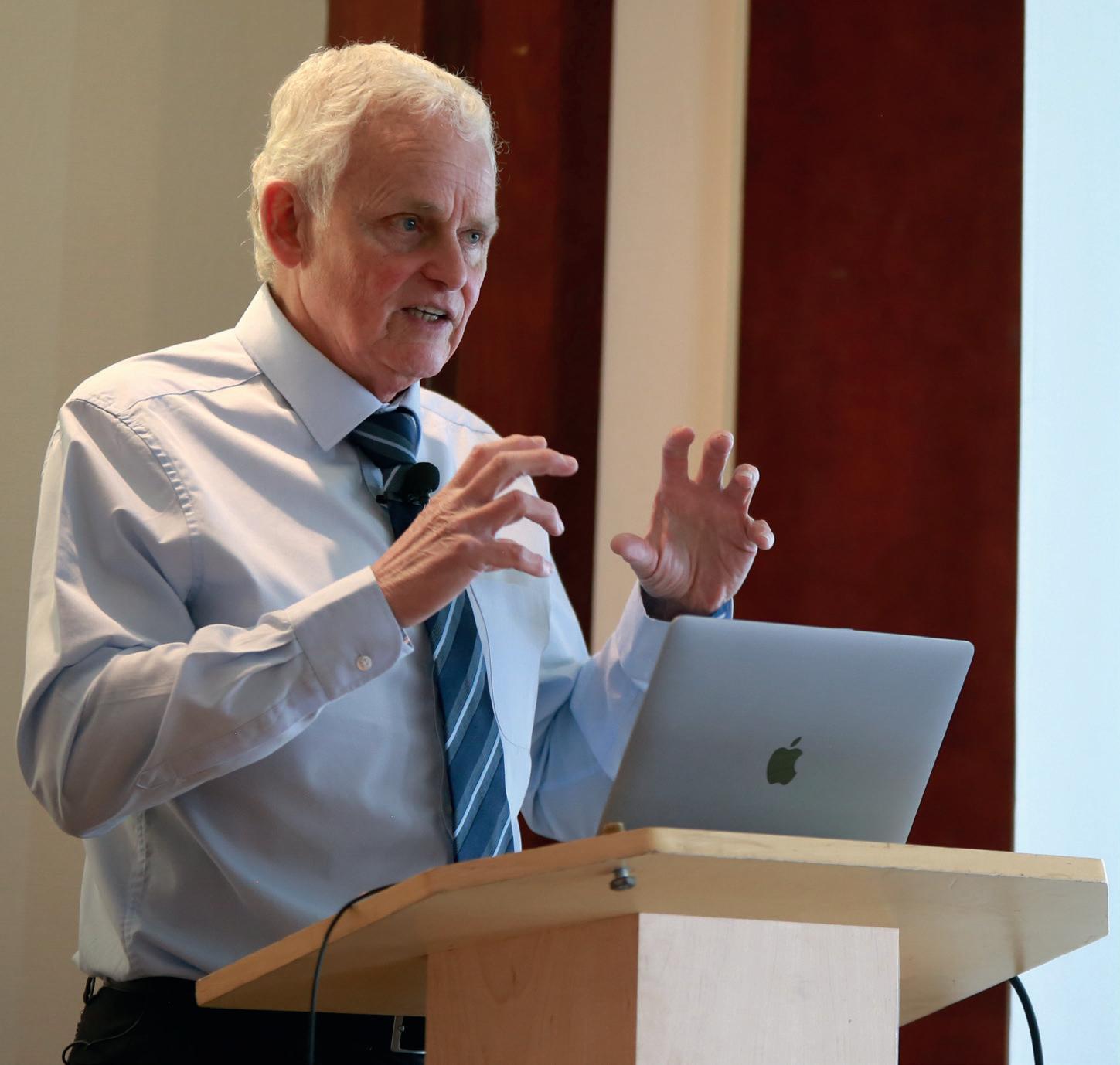
Any chronic stress is not good. But again, the devil is in the detail. It’s not always easy to recognise it because the Chimp mind has given you the obvious stress signal to start with, where there’s a terrible feeling, and then because you’ve ignored it, it turns into chronic stress.
If it’s the Chimp, it can still be altruistic, but success can often occur because you want to prove yourself. The devil is in the detail. Are you wanting to prove something to yourself? Or are you trying to prove something to your parents, your coach, or your team? I won’t know until I’ve asked this question.
There isn’t a concrete answer, but it’s all about understanding yourself. And when you’ve done that, and you’ve gotten
A common example of this is the feeling of irritability. Somebody who is under stress is likely to come to me and when I ask them “what kind of person are you?” they often say: “I’m an irritable person. I’m pretty short-fused and I’m intolerant at times”. They have come to accept that this is who they are and will always be. But actually, it isn’t who they are because they are who they want to be. So, if they say: “I don’t want to be like this, I want to be calm.” Then I can work with them on their mind to achieve that. I’m always amazed at how they change when they actually start presenting as a calm, collected individual.
August/September 202264 INTERVIEW
SOME EXPERTS SAY THAT WORKING FROM HOME ISN’T ENTIRELY BENEFICIAL FOR HUMANS. WHAT DO YOU THINK ABOUT THIS?
It’s going to be unique to the individual, but the general rule is no, it’s not good, because we are interactive creatures. We
like our family and friends around us, we like to interact with people and obviously when you’re working from home, you’re limited to your home. There are certain limitations of what you can and can’t do.
If you are in a good place psychologically, then the probability that you’ll be happier,
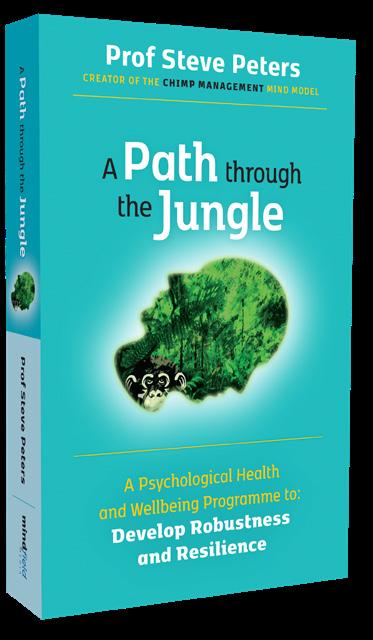
have better peace of mind and be successful working from home is likely. If you’re not in a good place, then you could still be successful and happy, but the probability is lower. So, I’m imploring people to really consider whether you believe your psychological health is important to you.
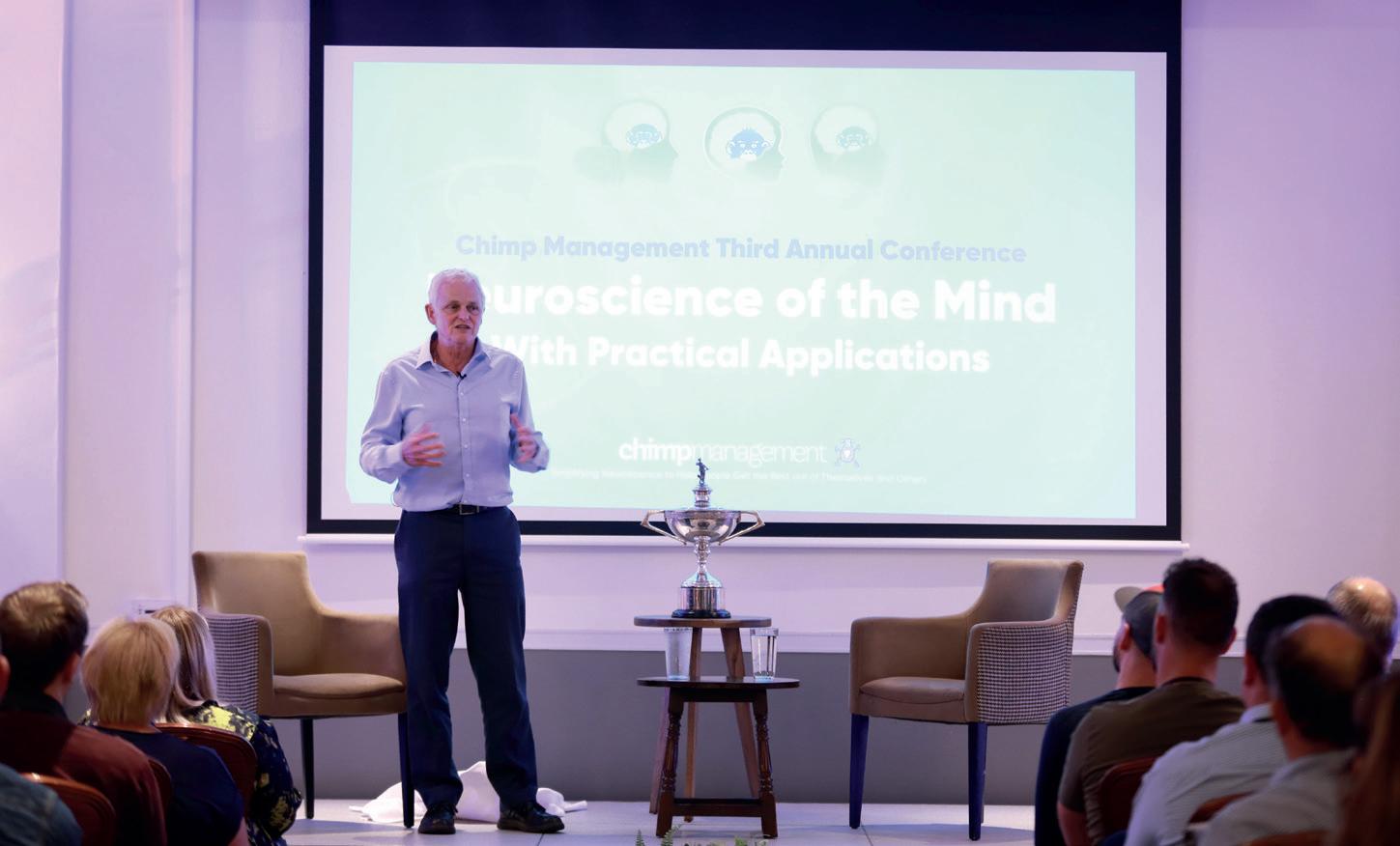
Especially with businesspeople, I want to ask:
“HOW IMPORTANT IS YOUR PSYCHOLOGICAL HEALTH IF YOU’RE THE BOSS OR YOU’RE IN A TEAM? HOW IMPORTANT IS IT THAT YOU GET YOURSELF IN A GOOD MENTAL POSITION TO GET THE BEST OUT OF YOURSELF AND HAVE AN INFLUENCE ON OTHERS?”

Business Leader - Inspire • Inform • Connect 65
PROF. STEVE PETERS
FUTURE OF WORK
Being a leader takes a great amount of skill, certain personality traits, and a lot of time, patience, and dedication. For SME leaders specifically it is incredibly important to find the right balance in running a successful business and a productive workforce.

Prior to the pandemic, at Vistage, we’ve been warning the corporate community about the accelerated trend towards digitisation, and the increasing complexity and interdependence of the global economy. As a result of the contextual shift over the last two years, business leaders now have a window of opportunity to grasp and understand the significance of this shift. For instance, younger generations in the workplace have long been pushing for a hybrid and flexible workplace confident they can work from any location and still be productive.
Data from our quarterly Confidence Index shows that only a quarter (25%) of small and medium sized businesses have returned fully on-site post-pandemic, with the majority (67%) favouring a hybrid workforce model. While more open minded, senior leaders are still concerned with how culture, communication and collaboration will be effected in a remote workforce.
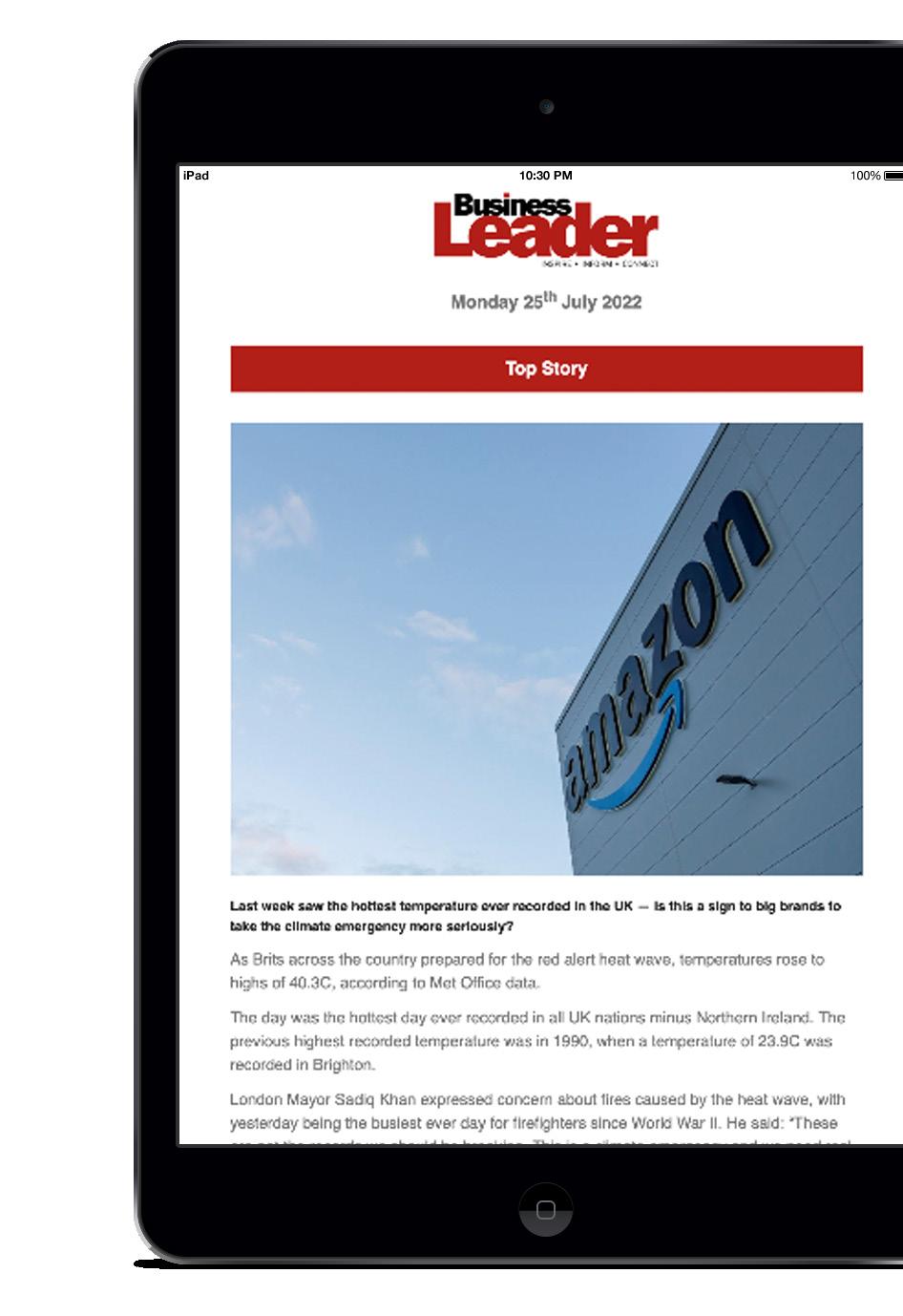

That’s why it’s never been more important to focus on developing culture where adaptability across the board can thrive –everything from your management style to how new policies are introduced throughout the business.
When it comes to meeting these newly formed expectations and industry standards for flexible work, your ability to embrace change and uncertainty is second to none. Here’s a challenge for you - consider letting your team know that there won’t be
an agenda in place for the next three company meetings, and see how things go. What’s the worst that can happen? It may be difficult at first but it’s an important muscle to flex, as the workplace continues to gravitate towards newer and more experimental ways of working like the 4-day work week.
Hybrid working is quickly emerging as the new norm especially as SMEs look to increase their growth efforts amidst the ongoing labour shortage. By revamping your leadership style, to become more adaptable, the culture of your organisation will naturally mirror this while being competitive and productive.
August/September 202266 ADVERTORIAL
BUSINESS LEADERS AND THE
KEEP UP TO DATE WITH ALL THE LATEST NEWS – SIGN UP TO BUSINESS LEADER NEWSLETTER FREE TODAY! • THE LATEST NEWS STRAIGHT TO YOUR INBOX • BE THE FIRST TO KNOW – PRIORITY ACCESS TO INTERVIEWS AND PODCASTS • PRIORITY EVENTS - YOU WILL HAVE FIRST REFUSAL TO ATTEND OUR AMAZING EVENTS WWW.VISTAGE.CO.UK Scan Me
HOW ALIBABA IS HELPING UK BUSINESSES TO EXPORT OVERSEAS
Roland Palmer from Alibaba Group recently spoke to Business Leader about why now’s the time for businesses to unlock export opportunities in new markets around the world.

CAN YOU GIVE AN OVERVIEW OF THE COMPANY?
Alibaba Group’s mission is to make it easy to do business anywhere.
We enable businesses to access new markets and benefit from significant export opportunities both through Alibaba.com, our B2B platform, and through our portfolio of B2C marketplaces such as Tmall Global (export to China via cross-border), Lazada (South East Asia) and Trendyol (Turkey).
Alibaba.com provides an opportunity for UK businesses who can easily sign up and start exporting to nearly 200 countries. It is the world’s largest B2B platform and currently has 26 million buyers from around the world.
While Alibaba Group is most well-known in China, we have been operational for over a decade in Europe, bringing our experience and expertise to businesses here and helping them achieve their growth ambitions
WHAT ARE THE BIGGEST CHALLENGES FOR BUSINESSES LOOKING TO EXPORT OVERSEAS?
We recently conducted a survey amongst 2,000 UK businesses to better understand their views on exporting. While nearly half of all businesses agreed exporting internationally is a viable opportunity, they also expressed concern about the challenges of cross border trade.
Our research suggests that businesses recognise the potential to grow their business through export but are clearly not maximising the opportunity. When we asked what was holding them back, their responses revealed several concerns - from
increased paperwork and customs rules to the perceived cultural complexity of doing business abroad.
CAN YOU SHARE ANY INSIGHT ON THE OVERSEAS DEMAND FOR UK PRODUCTS?
‘Made in Britain’ represents everything from quality and innovation to durability and luxury. We have seen this reflected in our sales to China - Alibaba helped British brands sell $494m (£401m) worth of products in 2020 during 11.11 Global Shopping Festival. The strength of ‘Brand Britain’ is reflected in near 13% year-onyear growth for products from the UK.
Many well known British brands such as Dyson, Burberry and Whittard of Chelsea have been working with us developing their business in China. We have also recently seen fast growing new sectors showing large growth and British brands have successfully tapped into that opportunity.
In the vitamins and health supplements category one example UK brand that Alibaba works with is Vitabiotics – the UK’s number one vitamins company. Having launched its flagship store on Tmall Global over five years ago, they are now on their third Tmall store and have built their own team on the ground in China. Vitabiotics is a prime example of how, with the right local team and strategy, British brands can be a success.
In the beauty tech space we have seen brands such as Smooth Skin (IPL hair removal brand from Wales) build a market presence in China and, as a result, recruit more people locally as their business has grown.
British activewear brand Sweaty Betty launched in 2021 on Tmall Global and is off to a good start. It’s also been very encouraging to see classic British perfume brands such as Penhaglion’s start to do well.
Roland Palmer General Manager for the UK, Netherlands and Nordics
HOW CAN MORE UK BUSINESSES GO GLOBAL?
Our research revealed that businesses very much see online marketplaces as key in helping to lower the potential barriers to export. 92% of businesses surveyed are currently working with online marketplaces to boost their export sales, while 68% say it’s a key part of their export strategy. Businesses that do more export online say it’s more cost effective, they reach more potential buyers and that it’s efficient, reducing the need to travel.
At Alibaba Group we are here to help more UK businesses export. If they would like to enter the China market we can discuss the potential fit of their brand on our Tmall Global platform. If they would like to enter Turkey or South East Asia we have Trendyol and Lazada to consider.
And if any British business is interested in exporting to 190 countries in one go for a relatively low cost, we can introduce them to alibaba.com, our B2B platform. As an online marketplace, Alibaba.com can provide the tools, platform and reach to help businesses strengthen their international presence and boost export sales.
If you are interested in exporting through our platforms please reach out!
Business Leader - Inspire • Inform • Connect 67 INTERVIEW
SCAN HERE
“i am in a very male-dominated industry, but if you have the skill set, it makes no difference if you’re male or female”
Natalie Bellis is the CEO of asset management company Seventy Ninth Group. Specialising in real estate and the natural resources sector, Seventy Ninth Group manages and develops assets in times of economic turmoil and uncertainty. We spoke to Natalie about what it’s like to work for a family business, why gender doesn’t always matter in male-dominated industries, and how Brexit and the war in Ukraine have impacted the company.
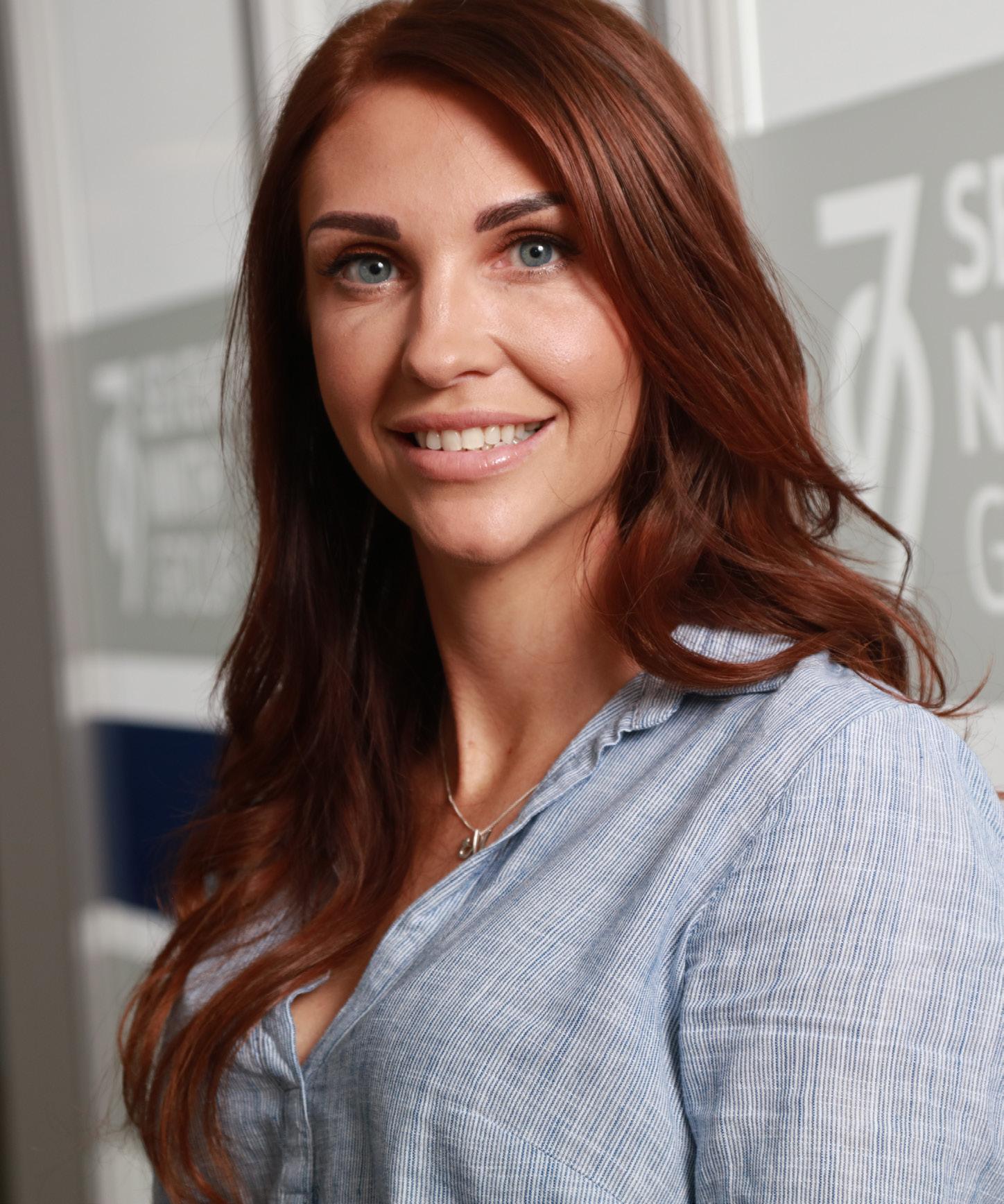
WHAT WAS YOUR JOURNEY TO BECOMING THE CEO OF SEVENTY NINTH GROUP?
I started as Head of Compliance at Seventy Ninth Group, so my background is predominantly compliance regulation. I’ve been involved in large corporate organisations with very big operational aspects to them, where I did a lot of compliance and regulatory assessments.
I love the fast pace of operations, but I also love the stability and structure of regulation. I was working in compliance in the company for about six months and throughout that time we heavily recruited, so I was effectively Head of Compliance. But it was a very operational role, and I managed a lot of the recruitment for them; historically, I have reported to Board level, delivering corporate strategy in line with business objectives. As a result, they offered me the opportunity to become COO whilst retaining the compliance
accountabilities. Following a successful period as COO, the Webster family then offered me the CEO role, which I’m very humbled by.
WHAT IS IT LIKE WORKING FOR A FAMILY BUSINESS?
It’s very exciting. The difference between family-owned businesses and other larger companies I’ve worked in, is that there is this passion and drive from the top down that you don’t necessarily get in bluechip organisations. There’s also this real sense of closeness and community from everyone within the organisation, which is what I thrive on.
There is no ‘ceiling’ in our business. If someone needs to speak to someone, they can. We engage in and endorse open communication, and that’s what makes it different to a corporate atmosphere, when the different areas of the company are segmented. Instead, it’s very fluid
– we recognise peoples’ skill sets.
If someone has a passion to learn something new, we completely endorse that, and we’re encouraging of progression and development. This is something I haven’t seen in more traditional corporate environments.
AS A WOMAN IN THE INDUSTRY, DID YOU HAVE MANY OBSTACLES TO OVERCOME?
There are usually fewer women in C-suite or Board-level roles. For me, that’s not necessarily been a challenge because I don’t like to segment it into women’s challenges and men’s challenges. I think it’s a general employment challenge. Regardless of gender, if you apply yourself to everything you do, you can achieve what you want and get recognition for it. Being assertive and learning how to handle difficult situations is a very common situation that a lot of people have struggled to overcome.
August/September 202268 INTERVIEW
I am in a very male-dominated industry, but if you have the skill set, it makes no difference if you’re male or female. I’m supported by a lot of other great female executives in the company, and that is really utilised here because the Webster family is very equality driven.
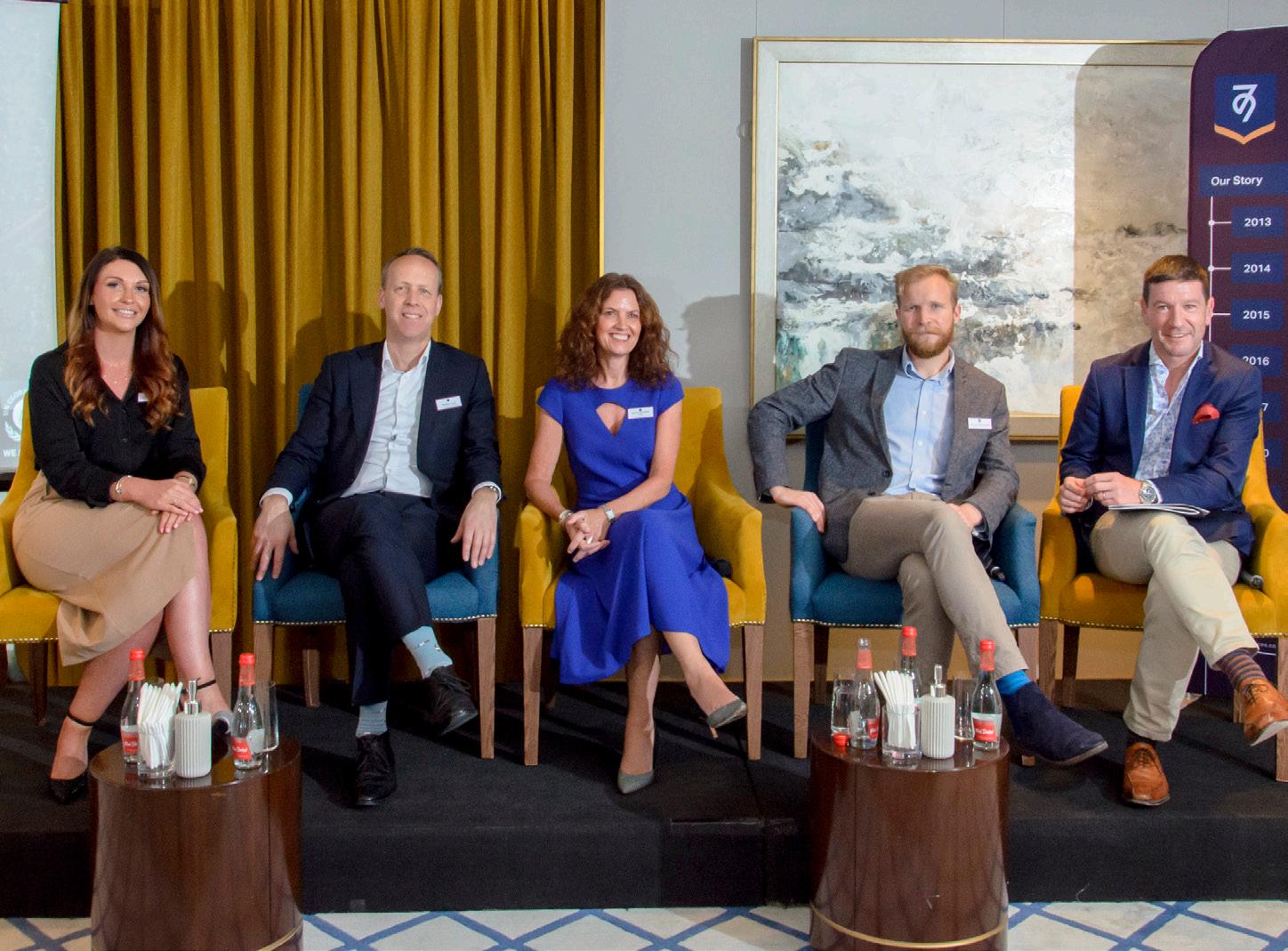
ARE WOMEN BEING EMPOWERED INTO EXECUTIVE POSITIONS – ARE THINGS CHANGING?
I do genuinely believe things are changing. If I think back over the past 10 years, there has been a significant change. There has been a definite shift towards women in leadership. The industry that I’m in, asset management and investment, can be very aggressive. But I am seeing more women in the industry, including in executive roles.
DO THOSE SKILLS OF BEING MORE ASSERTIVE AND ABLE TO COMMUNICATE IN A MALE-DOMINATED ENVIRONMENT NEED TO BE TAUGHT TO GIRLS AT A YOUNG AGE?
Absolutely, I’m a big advocate of life skills being equally as important as professional skills for progression. We have set up mentoring schemes at Seventy Ninth Group and it’s not just job-specific but also skill-specific. All of the senior team, not just myself, are accessible for all of the staff and we’ve set up clear pathways for progression to pass on all that we’ve learnt and enable them to improve professionally.
I have a daughter who is six years old. She might be young, but I always want to teach her how to communicate effectively and how to articulate what she wants to achieve from a conversation. It’s very important for young women to feel like they have a voice and understand how to use that voice – this will be an objective of mine for her whole childhood, and indeed, her life.
WHAT INSPIRES YOU AND WHY?
My daughter inspires me every day and challenges me every day, which keeps me on my toes. My inspiration comes from my family. I’m from a typical working-class family who have the right attitude – they work hard and want to have a great life but are modest, humble, and like to support and develop others around them. That’s replicated in the Webster family.
They’re very driven and hard-working and I think that is a quality that you often don’t see. To have that much passion and drive, not just to make profits but also to make positive change to the people they work with and the communities they work in, is very rare.
WHAT IS PROFESSIONAL SUCCESS TO YOU?
To me, professional success is where I add value. I’ve never taken on a role for the sake of it. I’m selective and only choose
a role when I think I can add value to that organisation or team. The development of others and growth of a team is also important to me. I also love making sure we deliver our objectives, whether they’re delayed or on time, as long as we get there the right way.
HOW DO YOU MANAGE STRESS?
I asked a previous mentor of mine about how he handled the workload and he said: “If you have your objectives, your deadlines and build in your capacity for each day, you will be fine. But take the time to switch off at certain points as well”.
I’ve seen so many people constantly on their phone or emails all night. For me, that doesn’t create a good mental capacity – you will certainly burn out within 12-18 months if you do this. I just make sure I have downtime and I’m clear with the people around me about what my capacity is. Having that communication when you are under pressure is imperative.
HOW HAVE SUPPLY CHAIN ISSUES CAUSED BY BREXIT, THE PANDEMIC AND THE WAR IN UKRAINE IMPACTED SEVENTY NINTH GROUP?
We have a very large supplier network, which we try to keep local to us in all the areas that we work in. However, when it comes to the impact of Brexit and the war in Ukraine, the opportunities that have been presented have been vast because we operate in undervalued and distressed markets. It has also highlighted how we can engage in our community relations, charity work and humanitarian efforts.
It’s been a real eye-opener for everybody on the Board – we started to ask ourselves: “When things like this crop up, what can we do to help?” The distressed market has opened up opportunities for us across real estate and natural resources, but it has also helped us hone in on how we can support wider charitable initiatives.
Business Leader - Inspire • Inform • Connect 69 SEVENTY NINTH GROUP
THE79THGROUP.CO.UK
people & appointments
We give a rundown of recent appointments and promotions across various sectors.
b&m european value retail s.a. appoint new cfo
The UK variety goods value retailer recently announced that Mike Schmidt is to be appointed as an Executive Director and Chief Financial Officer of the Group. Mike is currently Executive Director and Group CFO of DFS Furniture plc, having been in that role for the last three years.
metaverse fashion brand announces all-female senior leadership team
crowdfunding publisher unbound appoints new ceo
Unbound, the award-winning independent crowdfunding publisher, has enjoyed a year of remarkable growth and appointed a new CEO: Wil Harris.
As well as running and revamping the UK’s digital publishing division at Condé Nast, Harris has established himself as a technology entrepreneur with an impressive history in digital media, having founded and successfully exited two businesses: ChannelFlip and Entale.

3d global ceo steps down after 25 years at the helm
3D Global, the financial services and wealth management advisory firm headquartered in Cyprus, announced that David Rumsey, the Founder and CEO has stepped down following a successful management buyout. Mark Nowell, who has been with 3D Global since 2005 and a Director since 2013, has assumed the role of CEO.
Blueberry, the fashion label based in the metaverse, recently announced the appointment of two new hires, Katherine Manuel as Chief Operating Officer and Emily Eitches as Head of Business Development. The hires complete an all-female senior leadership team as the company continues to revolutionise digital fashion.
priscilla koranteng named chief people officer at indeed
Indeed, a leading global hiring platform, recently announced that Priscilla Koranteng will join the company as Chief People Officer, effective immediately.
Koranteng will be part of Indeed’s senior leadership team and will report to CEO Chris Hyams. As CPO, Koranteng will oversee the company’s people functions including HR, recruiting, and real estate teams.
norton rose fulbright appoints yianni cheilas as head of greece
Global law firm Norton Rose Fulbright has appointed Yianni Cheilas, Co-Head of Asset Finance for Europe, Middle East and Asia (EMEA), to head up its Greek offices, with effect from August 1, 2022. Yianni will replace Dimitri Sofianopoulos, who has been with the firm for nearly 30 years.
August/September 202270 APPOINTMENTS ROUND-UP
Advertising so engaging you even read the small print Call 020 3096 0020 or email sales@businessleader.co.uk Let's chat through ideas
ipos on the horizon

IPO activity so far in 2022 has not quite hit the heights of last year. Global IPO activity in the first half of this year saw a 47% decrease in deal numbers and a 59% drop in proceeds compared to H1 2021. In H1 2022, the London Stock Exchange also saw 26 issuers raise £595m, compared to 47 issuers raising £9.4b in H1 2021. However, Shanghai was the leading global exchange for IPO proceeds in H1 2022, hosting 69 IPOs and raising over $32.6b (£27b), representing a 46% increase in proceeds when compared to H1 2021. We profiled four upcoming launches that could happen in the second half of 2022.
mobileye
The purveyor of advanced driver assistance systems previously went public in 2014 before it was acquired by Intel. However, Intel is reportedly looking to capitalise on Mobileye’s recent revenue increase of 43% in 2021. Mobileye has reportedly targeted a $50b valuation and, according to Reuters, the driver assistance specialist has tapped investment banks Goldman Sachs and Morgan Stanley to lead preparations for the initial public offering.
vinfast
Vietnamese electric vehicle manufacturer VinFast is expecting to start delivering SUVs to the US, Canada and Europe by the end of the year, and is also planning to open a factory in the US by 2024, according to Bloomberg. An IPO could reportedly value the company as much as $60b. In April, VinFast reported that their Singapore-based holding company, Vingroup, had filed for an IPO with US securities regulators, but the Chairman of Vingroup later said that the IPO might be delayed until next year due to market uncertainty.
starling
Although the UK challenger bank has not set a definitive date for an IPO, it is expected to take place in 2022 or 2023. The fintech was founded in 2014 and recently raised its valuation to £2.5b following an internal fundraise of £130.5m in April. As the company is headquartered in London, it is predicted that they will float on the London Stock Exchange, which has seen IPOs from other fintechs including Wise, Darktrace and Trustpilot in recent years.
snowfox group
The Snowfox Group is a leading international, multi-channel Japanese food business. Back in February, Sky News reported that the company was working with Barclays, Jefferies and Peel Hunt on a prospective IPO, and the company’s controlling shareholder, Mayfair Equity Partners, is said to have identified March or April as possible dates to announce Snowfox’s intention to float. However, there has been no official announcement yet, despite a potential valuation of £750m from listing.
IPO ROUND-UP

PUSHING THE BOUNDARIES CREATING EVENTS EST 1986 We are delighted to sponsor and produce the Business Leader Awards www.soundscommercial.co.uk | info@soundscommercial.co.uk | 0117 9355 255
The first truly joined-up approach to
safety, and wellbeing for
employee health,
SMEs BT201 • Flexible health, safety and wellbeing solutions tailored to your needs • Unique tools to benchmark your organisation • Access to industry leading HR, health, safety and wellbeing tools • Advice and support from industry experts to help you every step of the way. Helps you build a healthy, profitable, and sustainable future for your company. Sign up now: www.beingwelltogether.org support@beingwelltogether.org T. +44 (0)20 8600 1054












































































































































